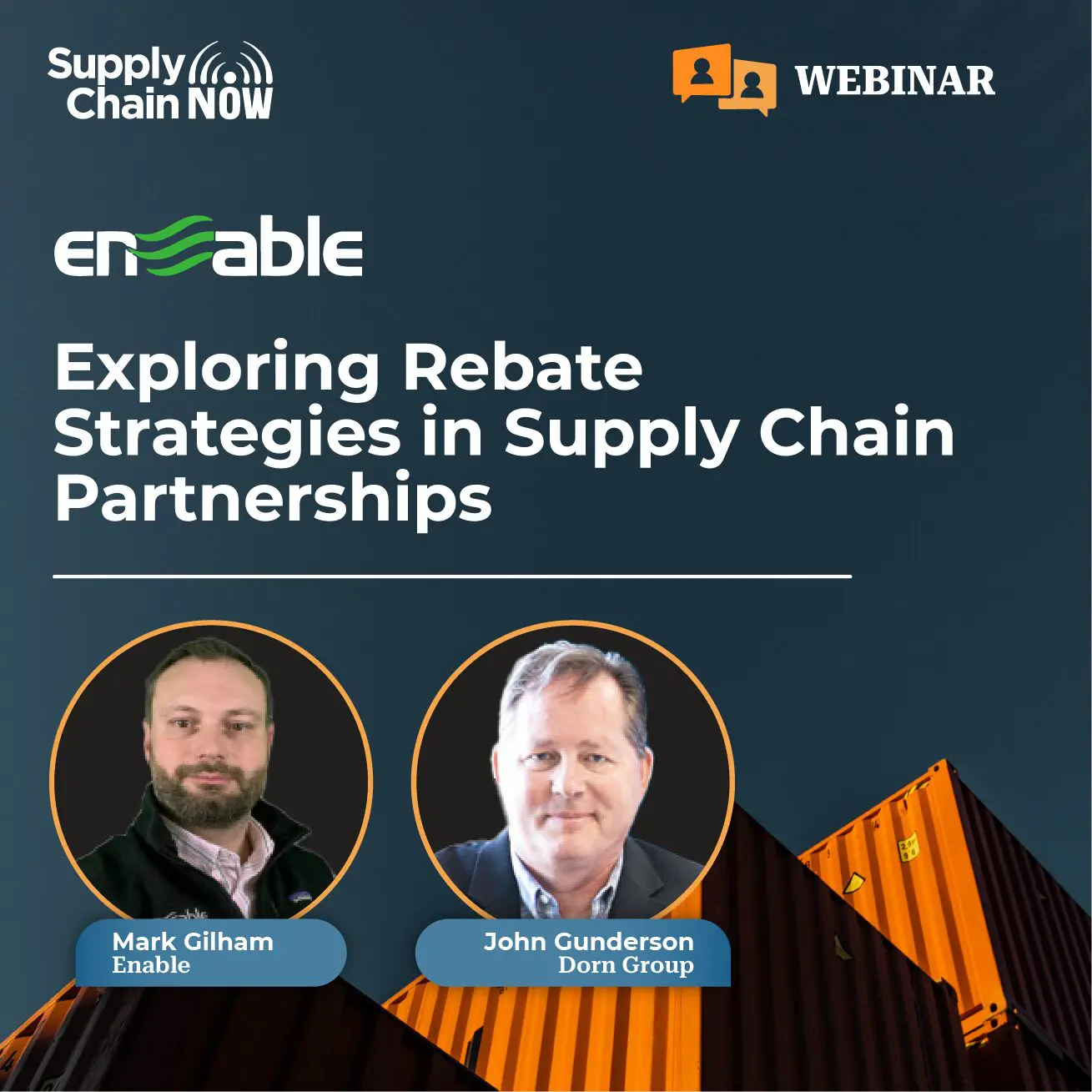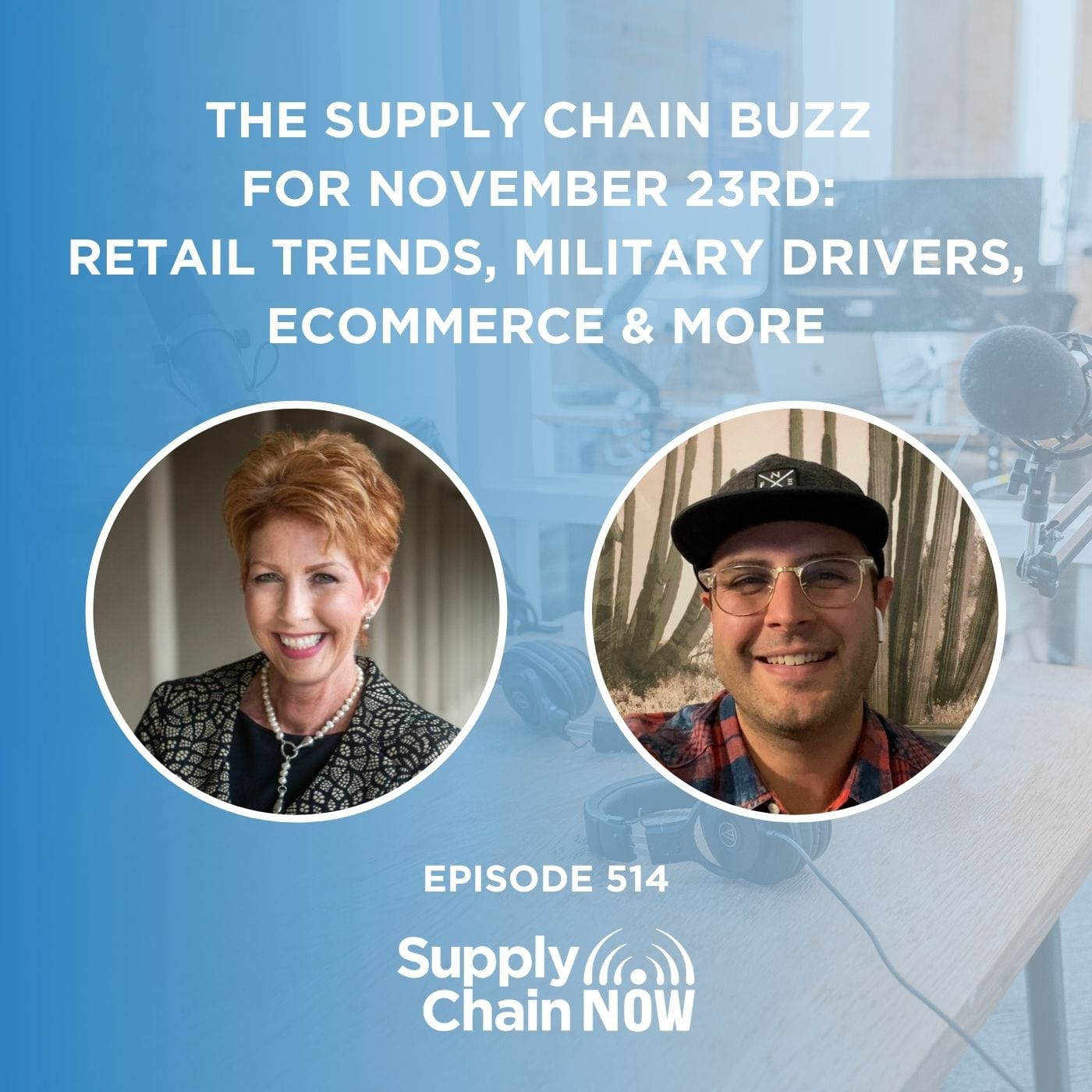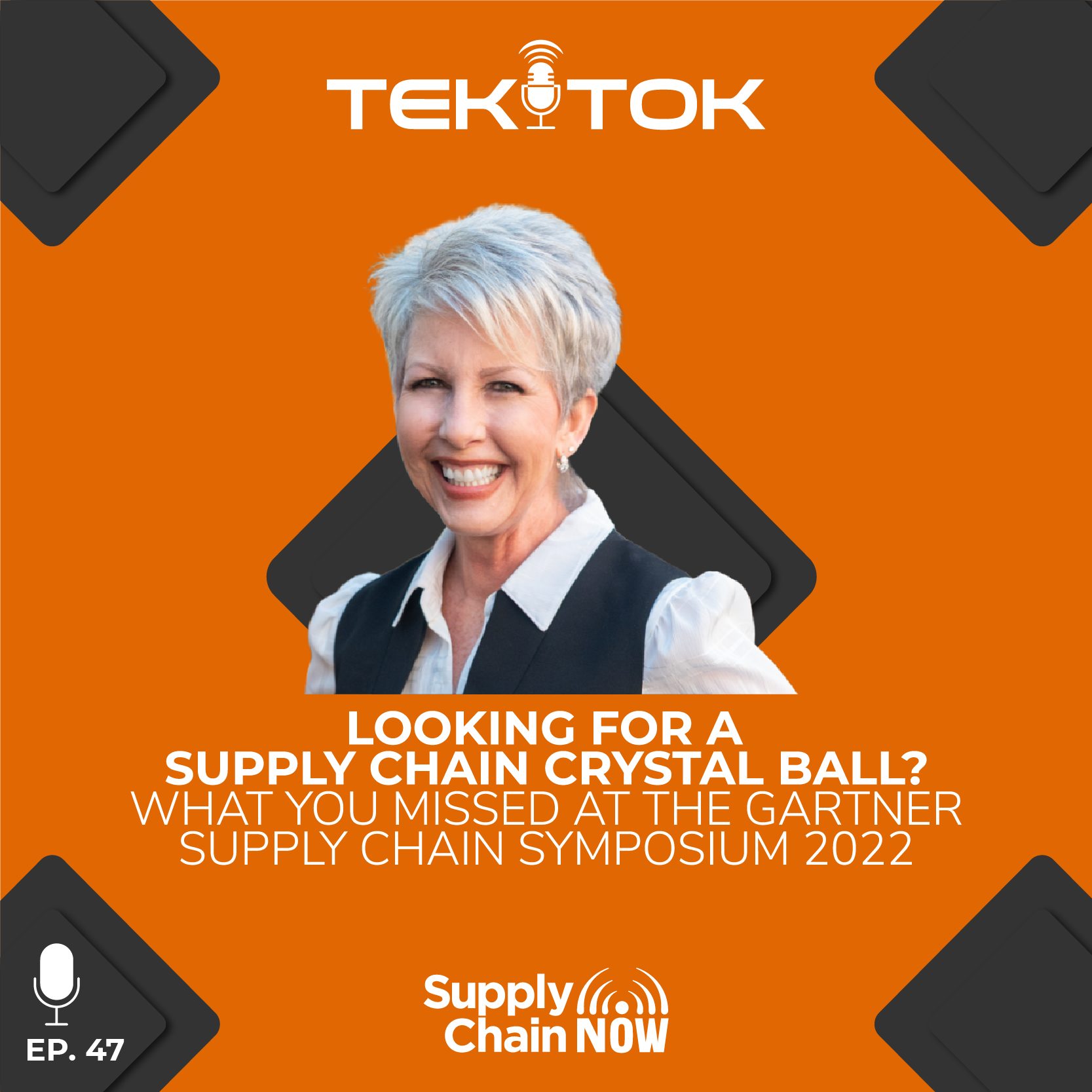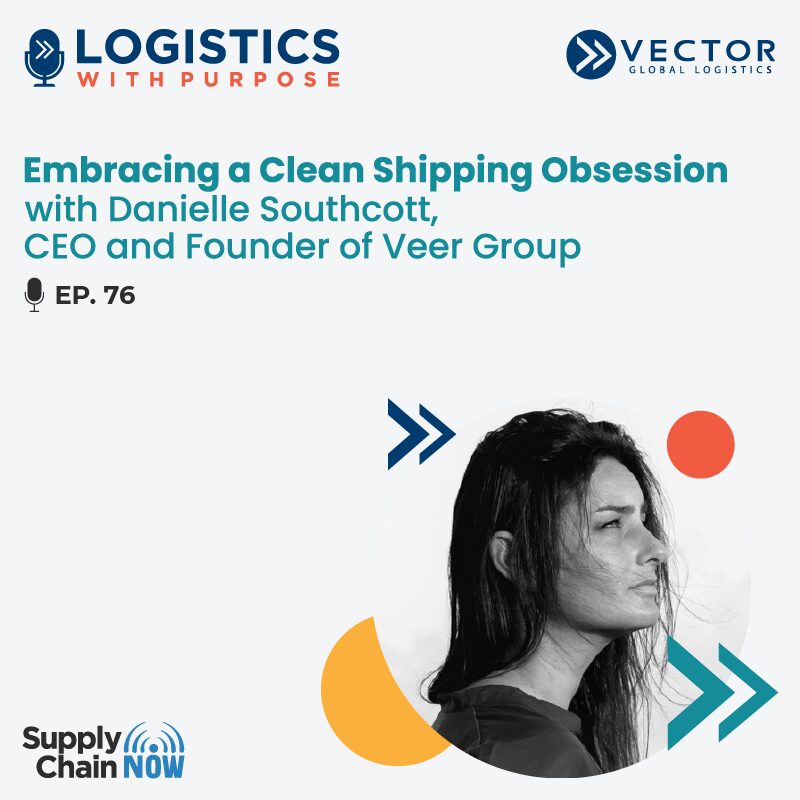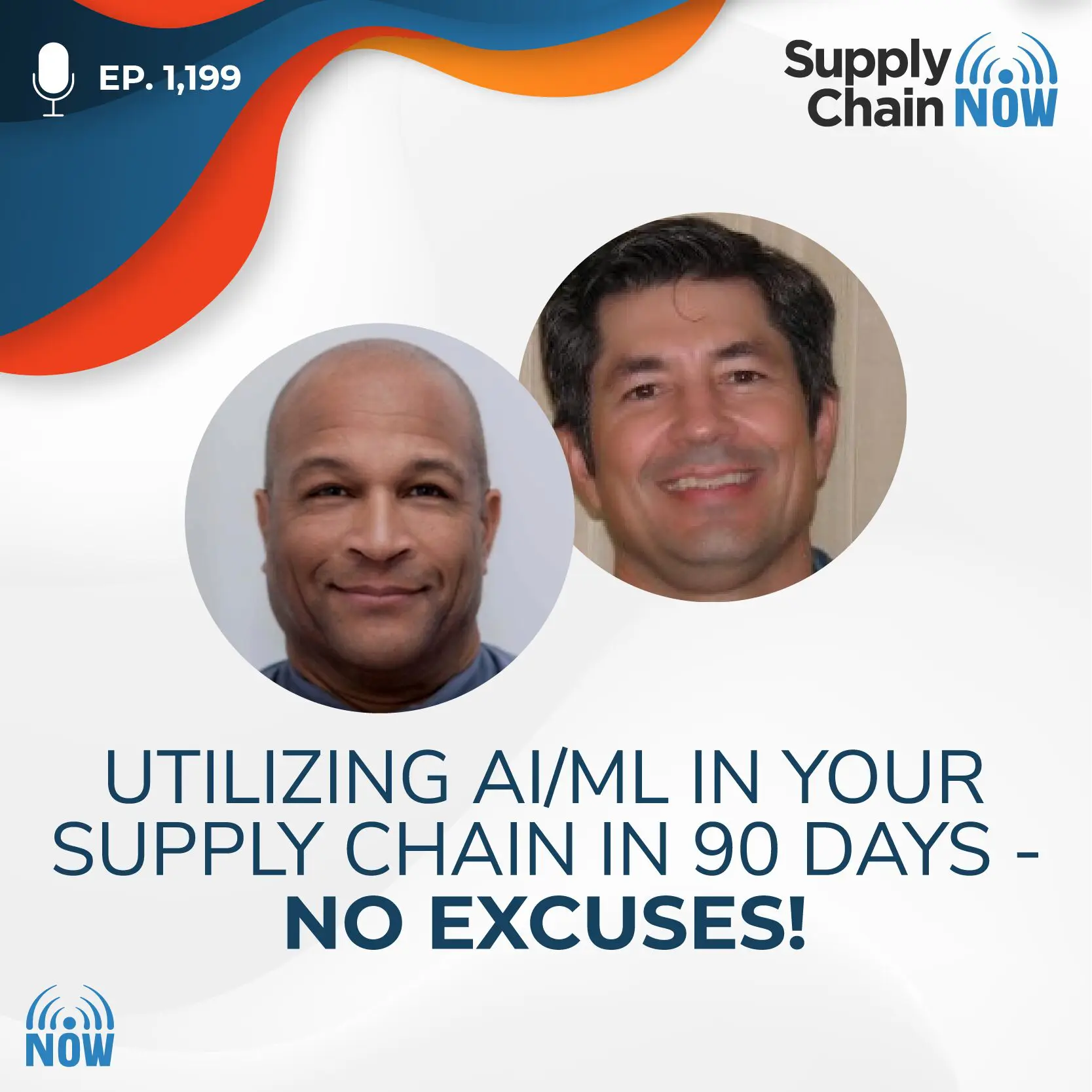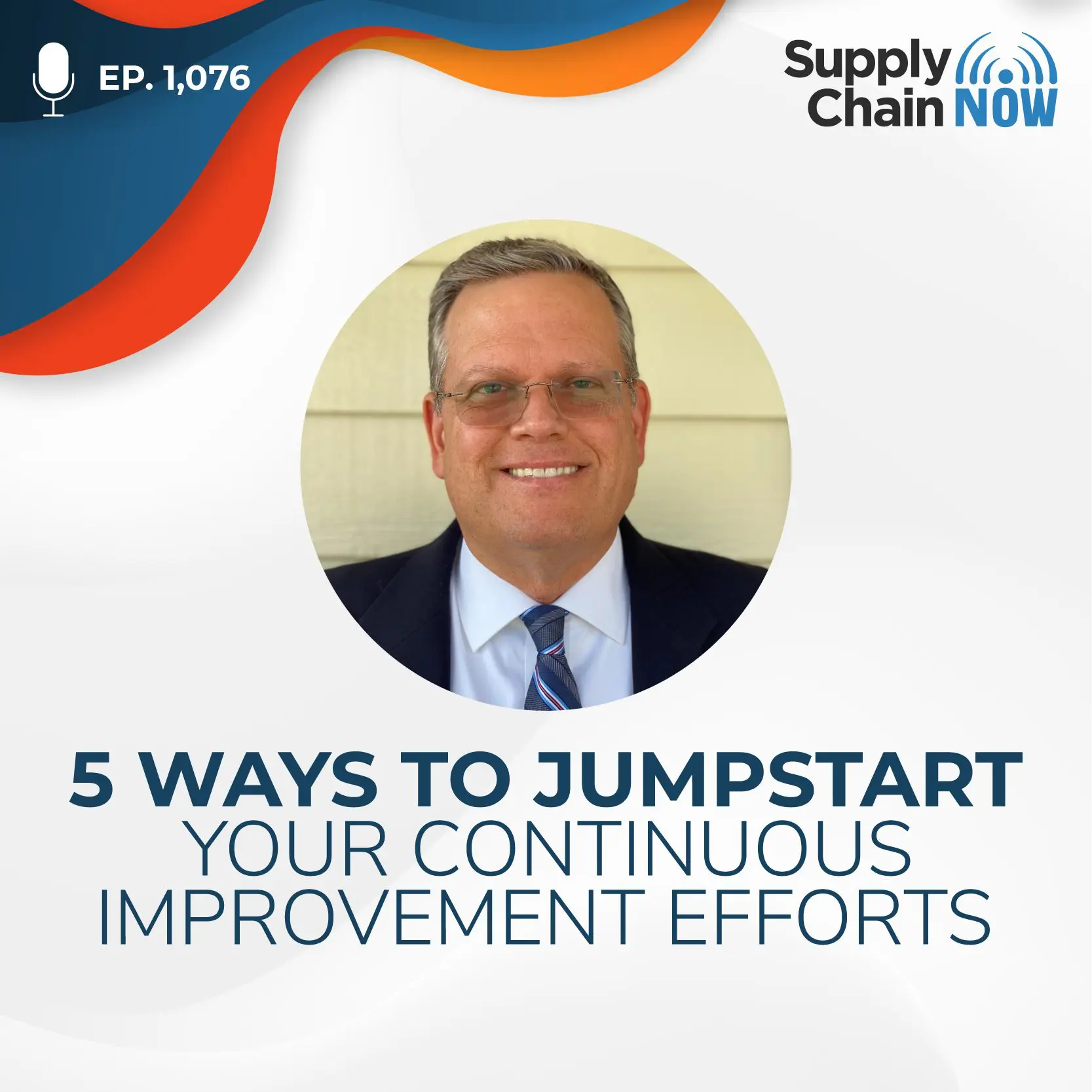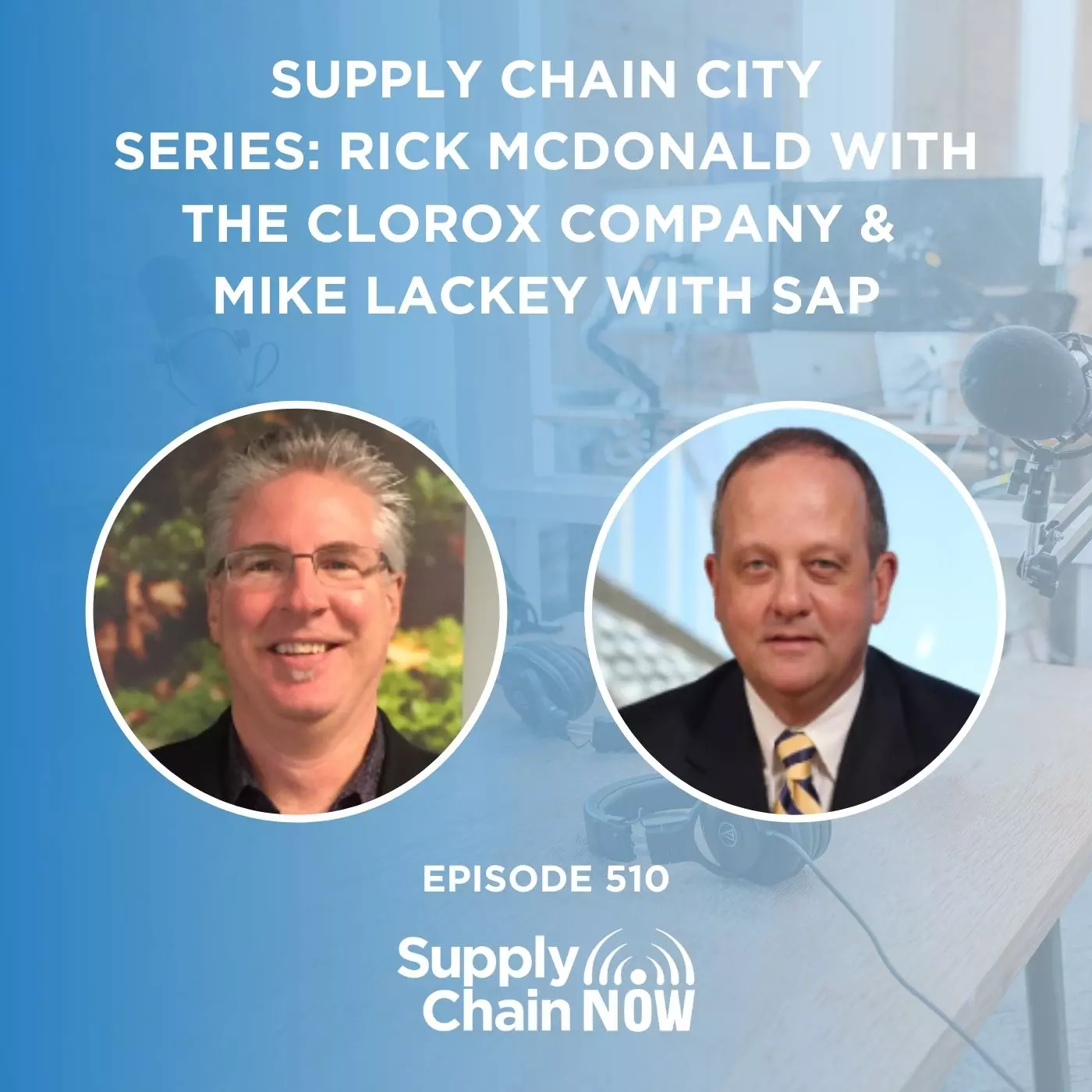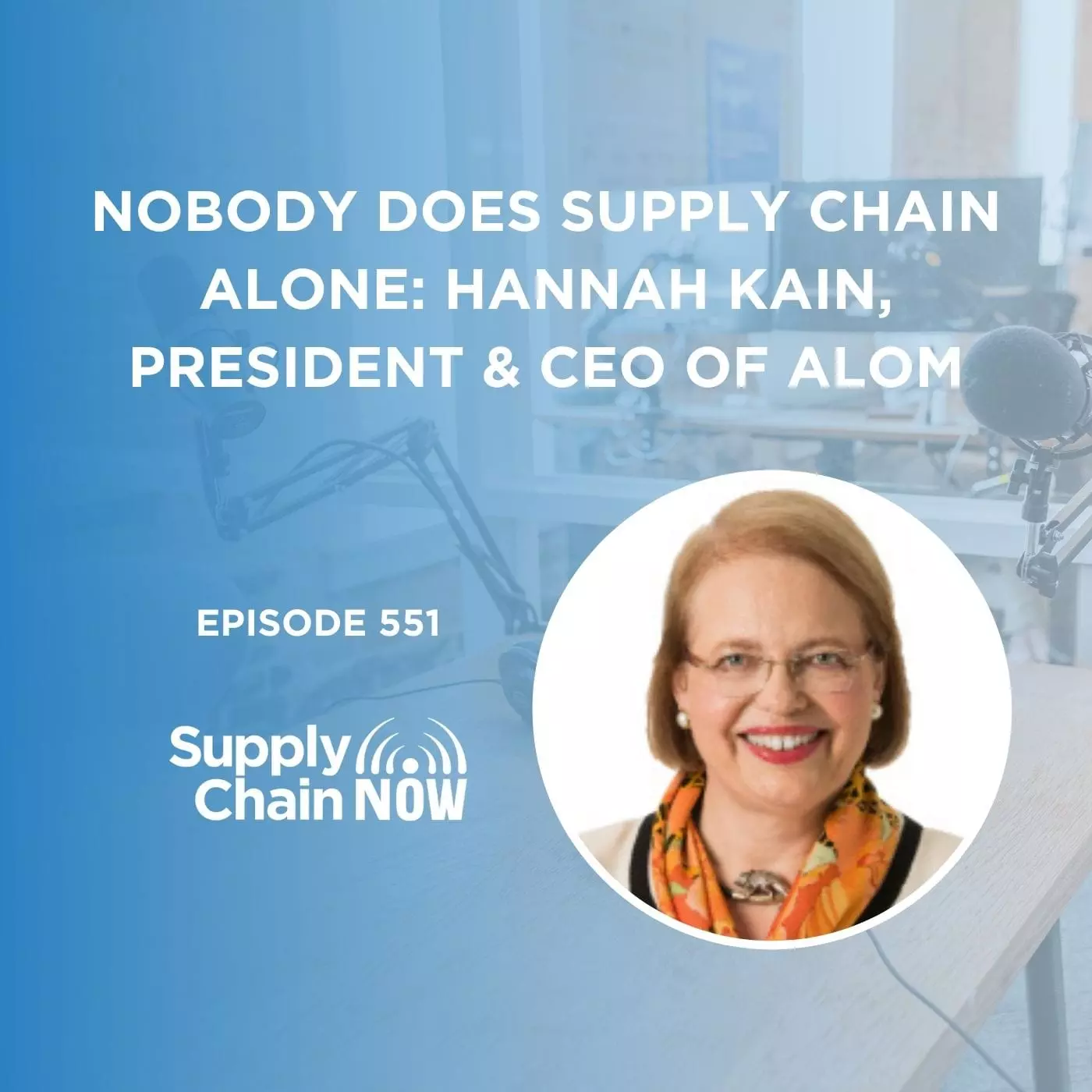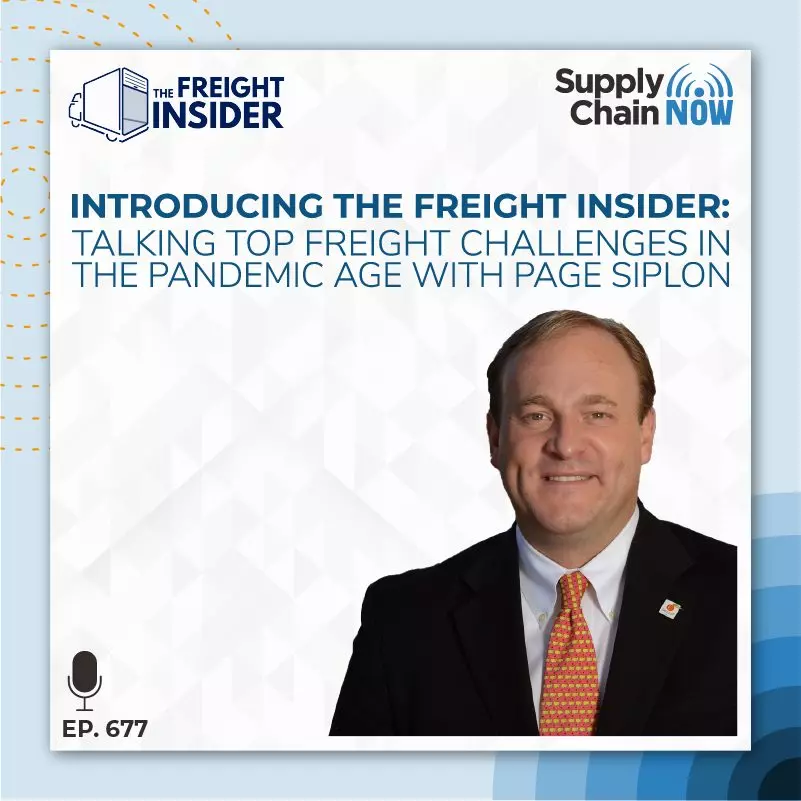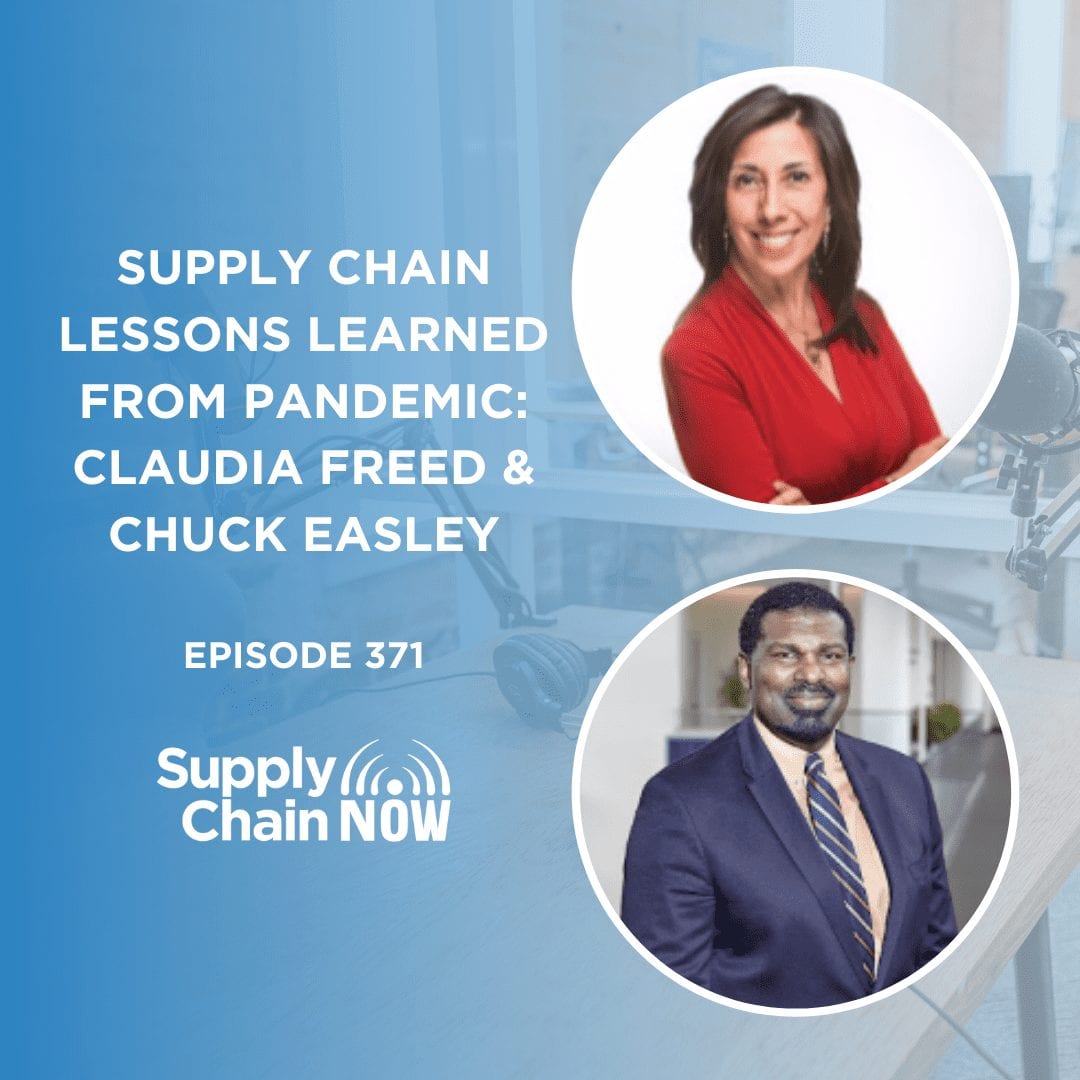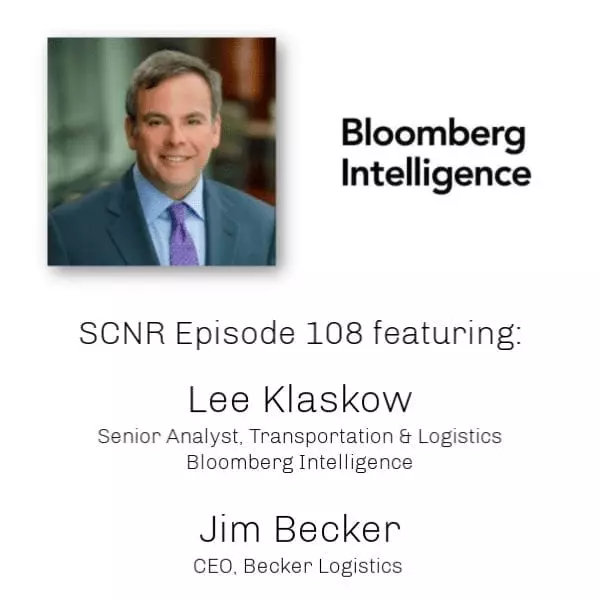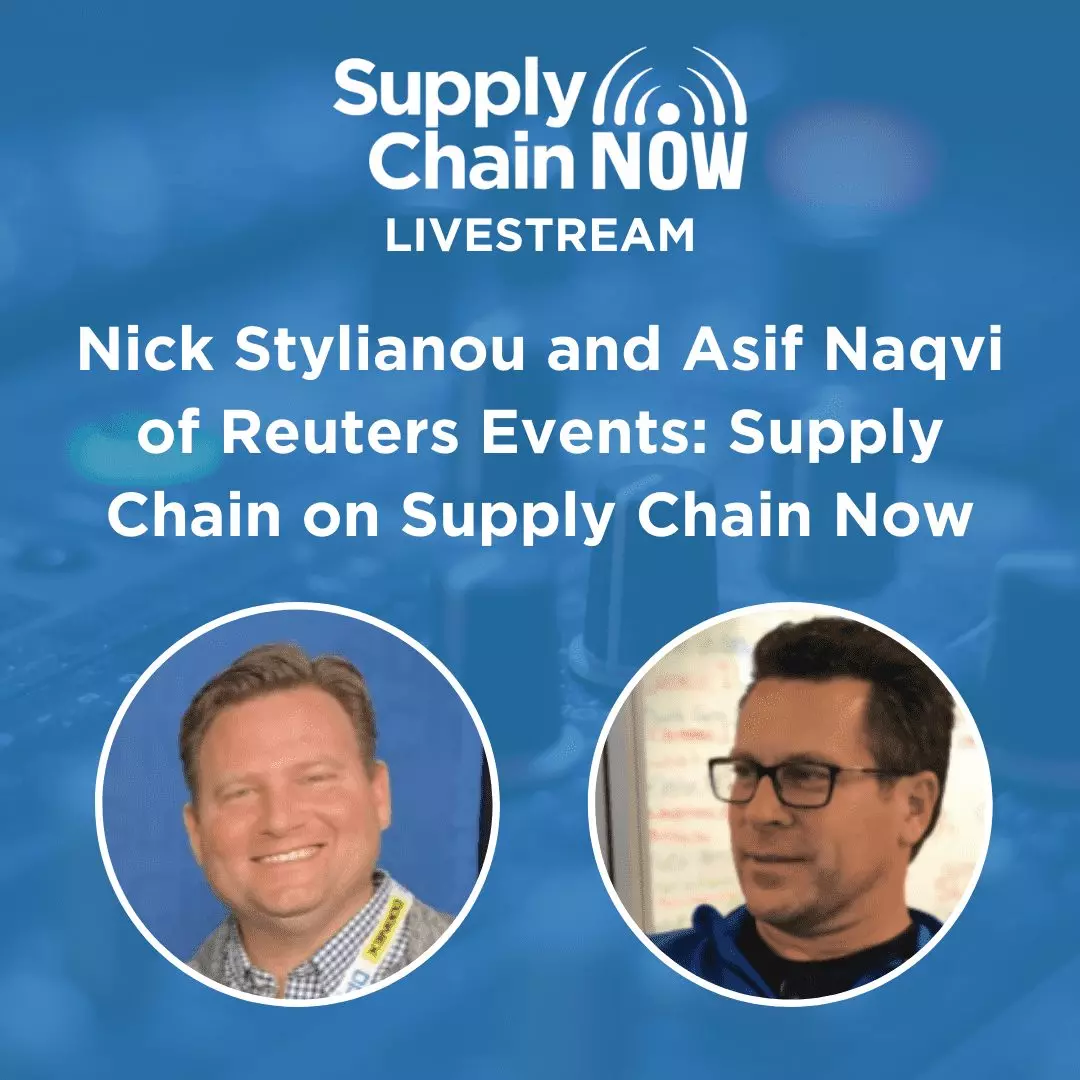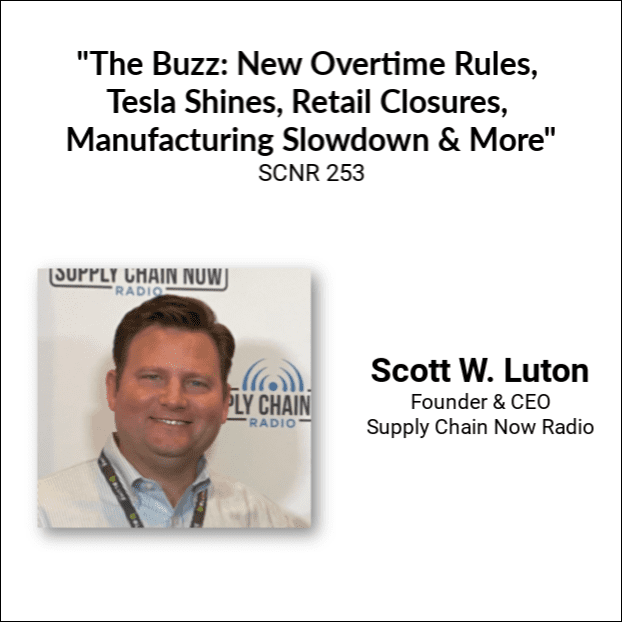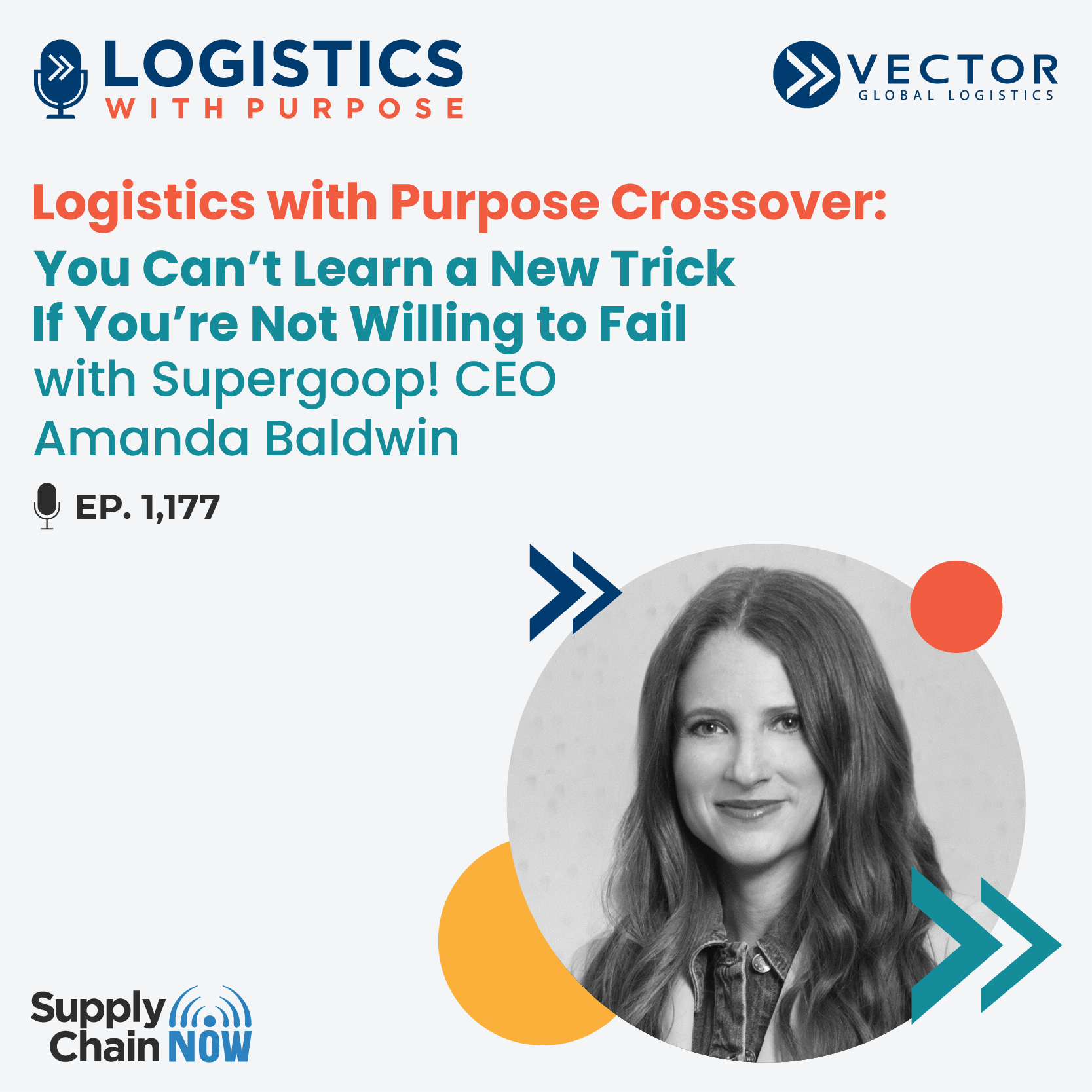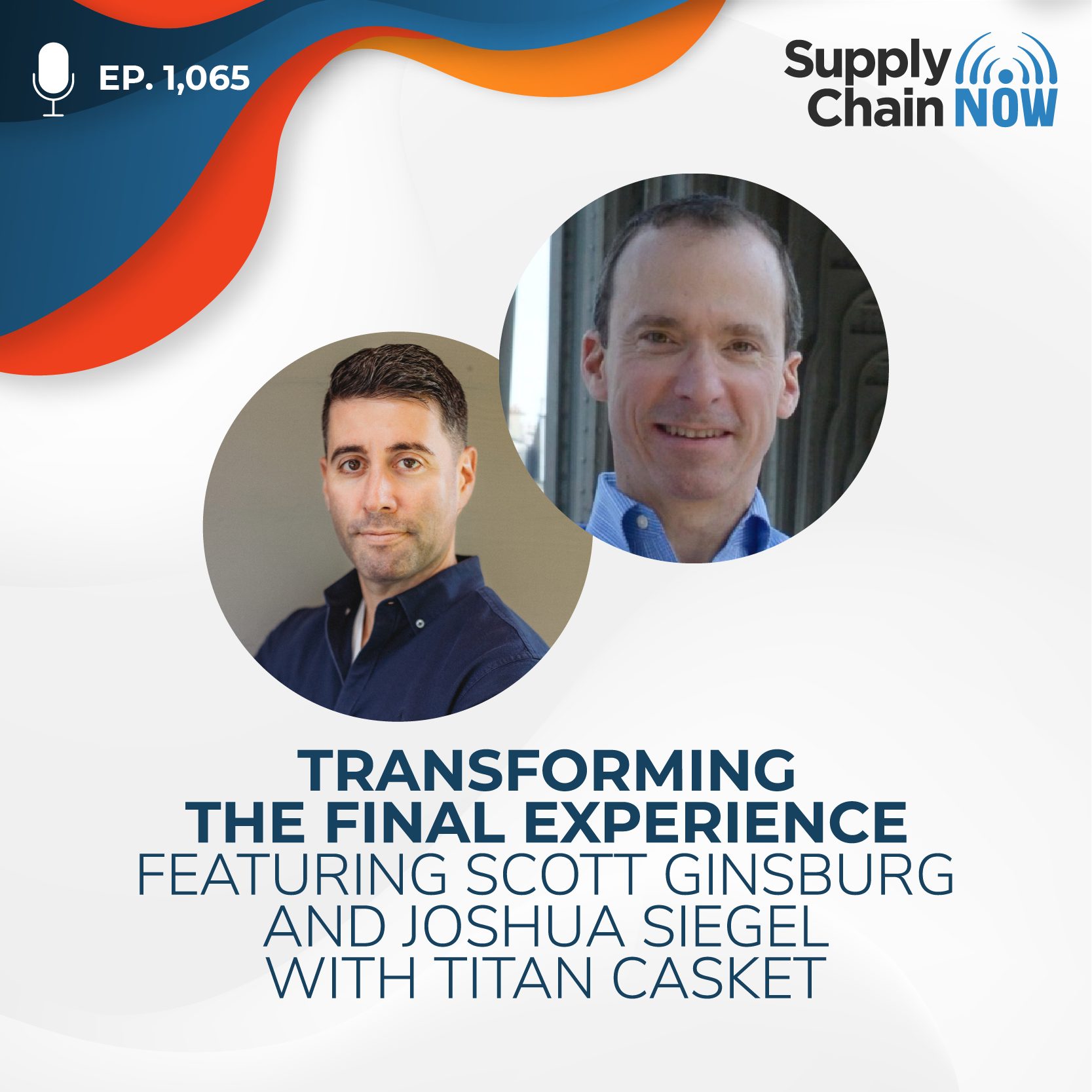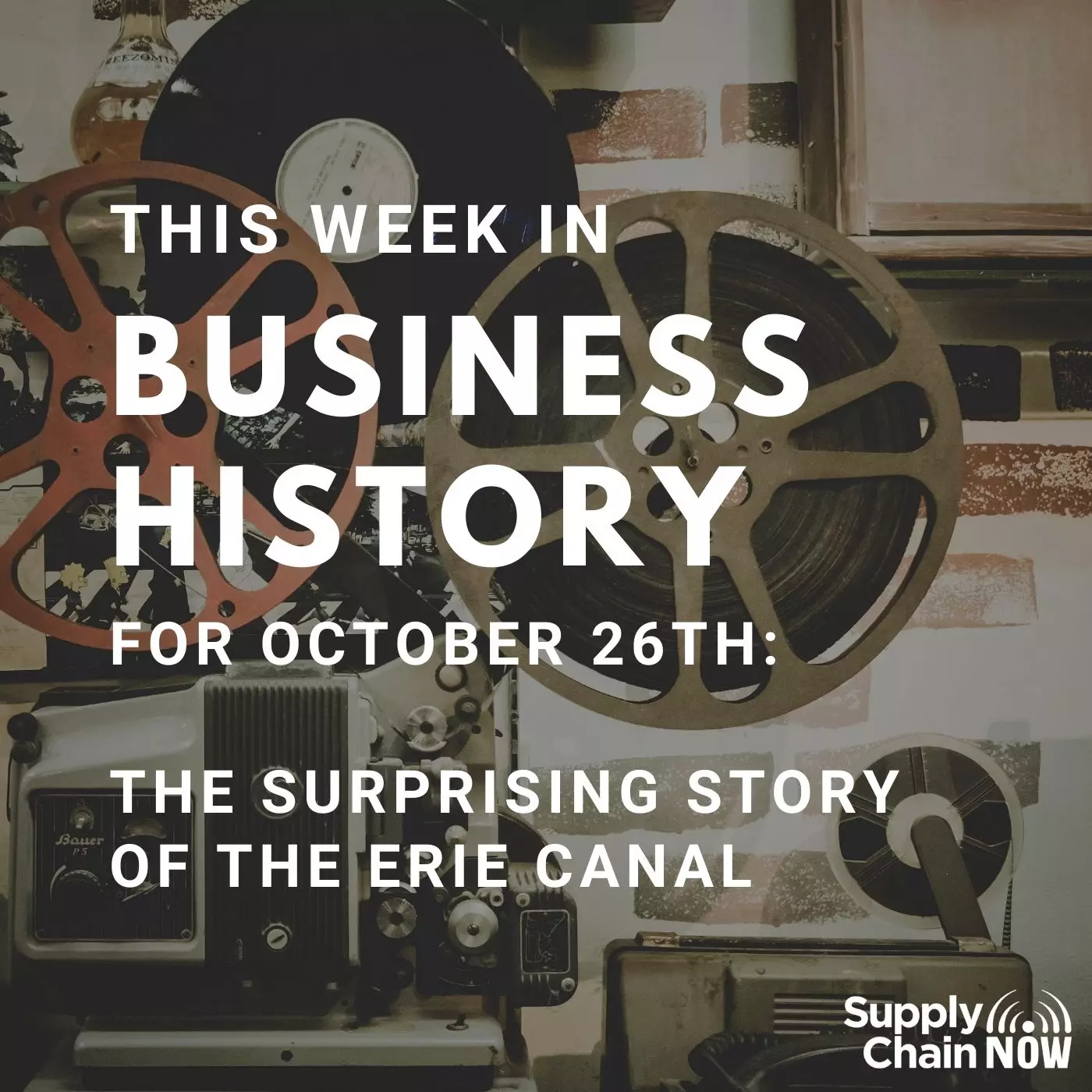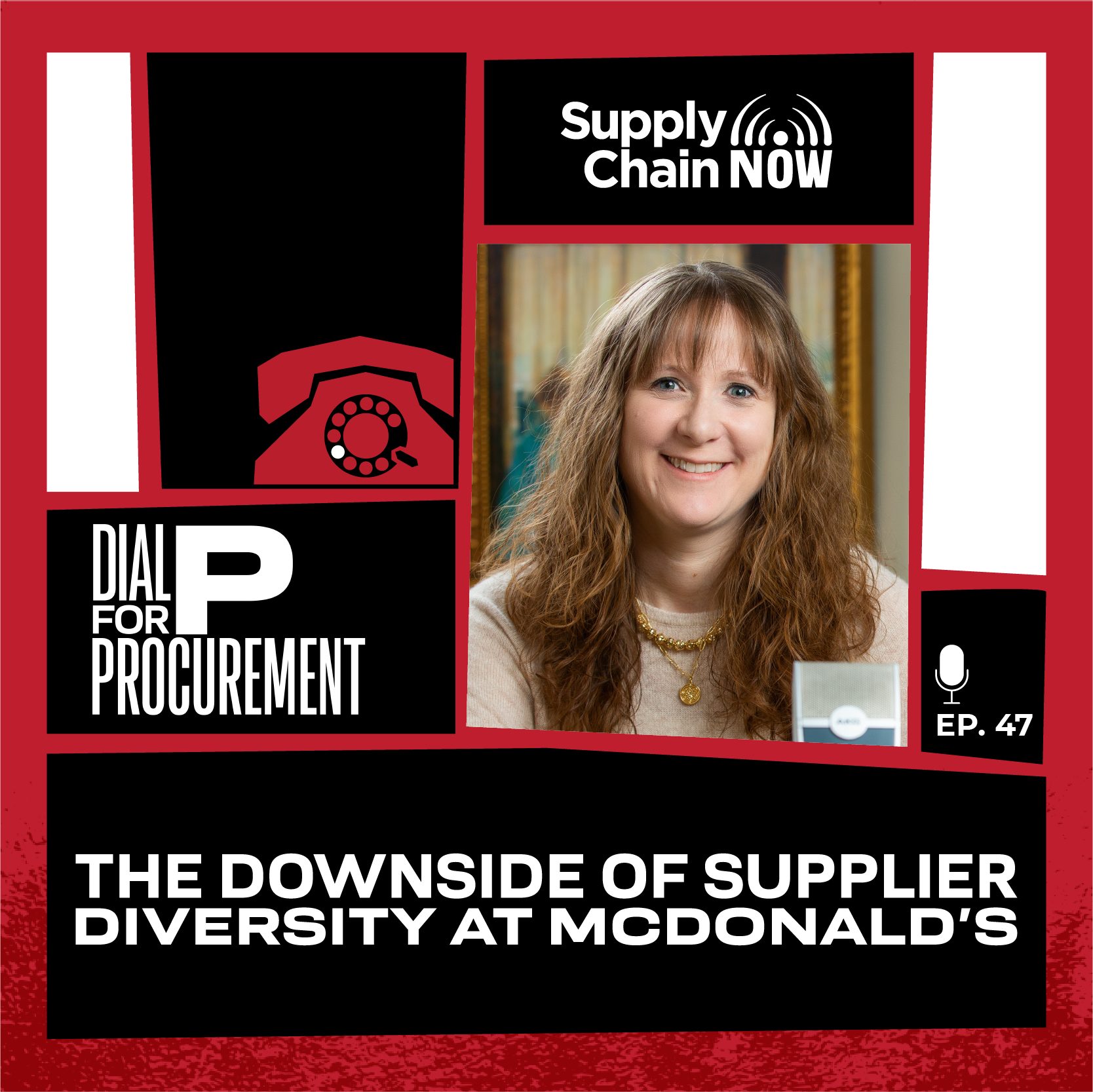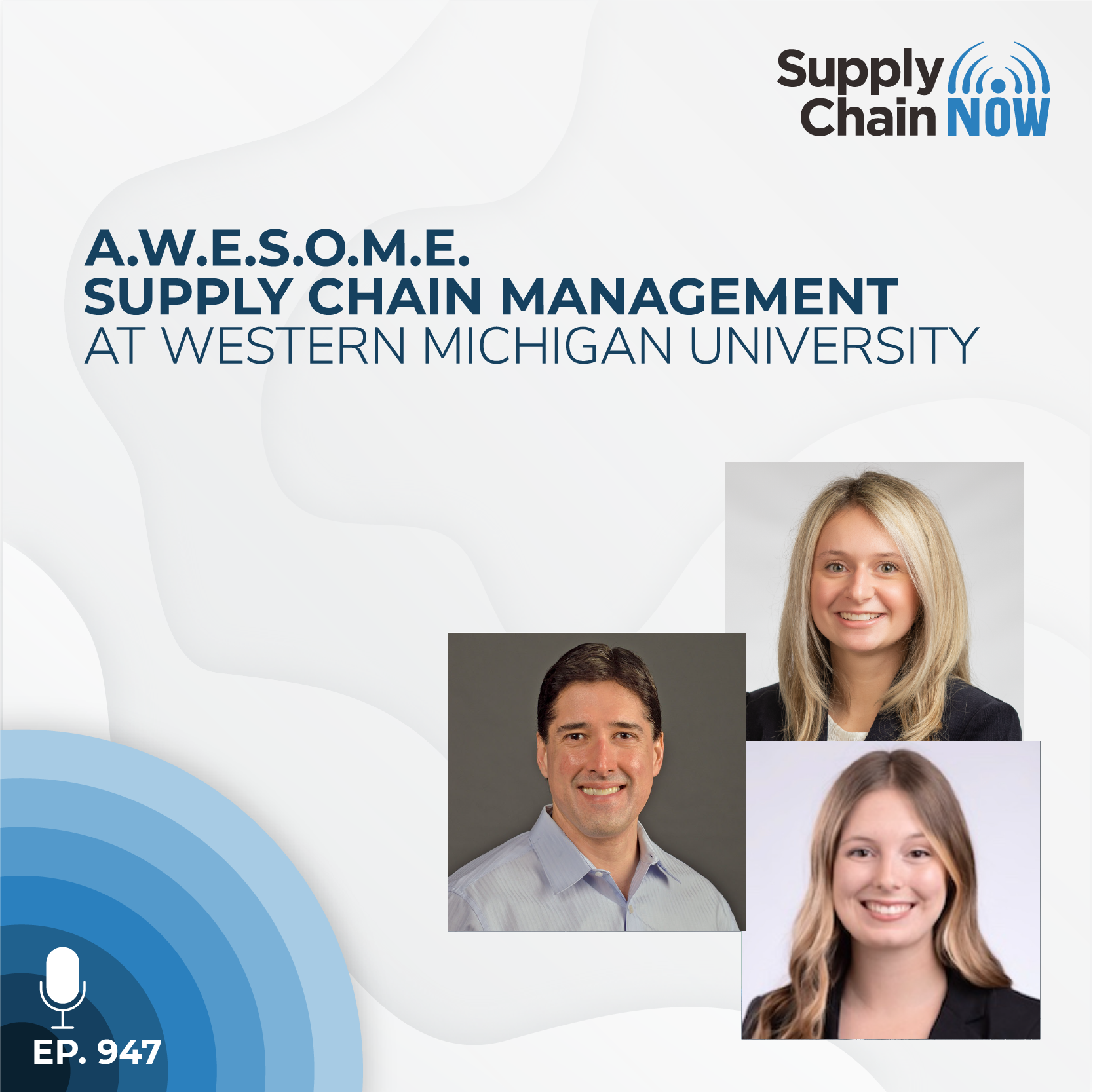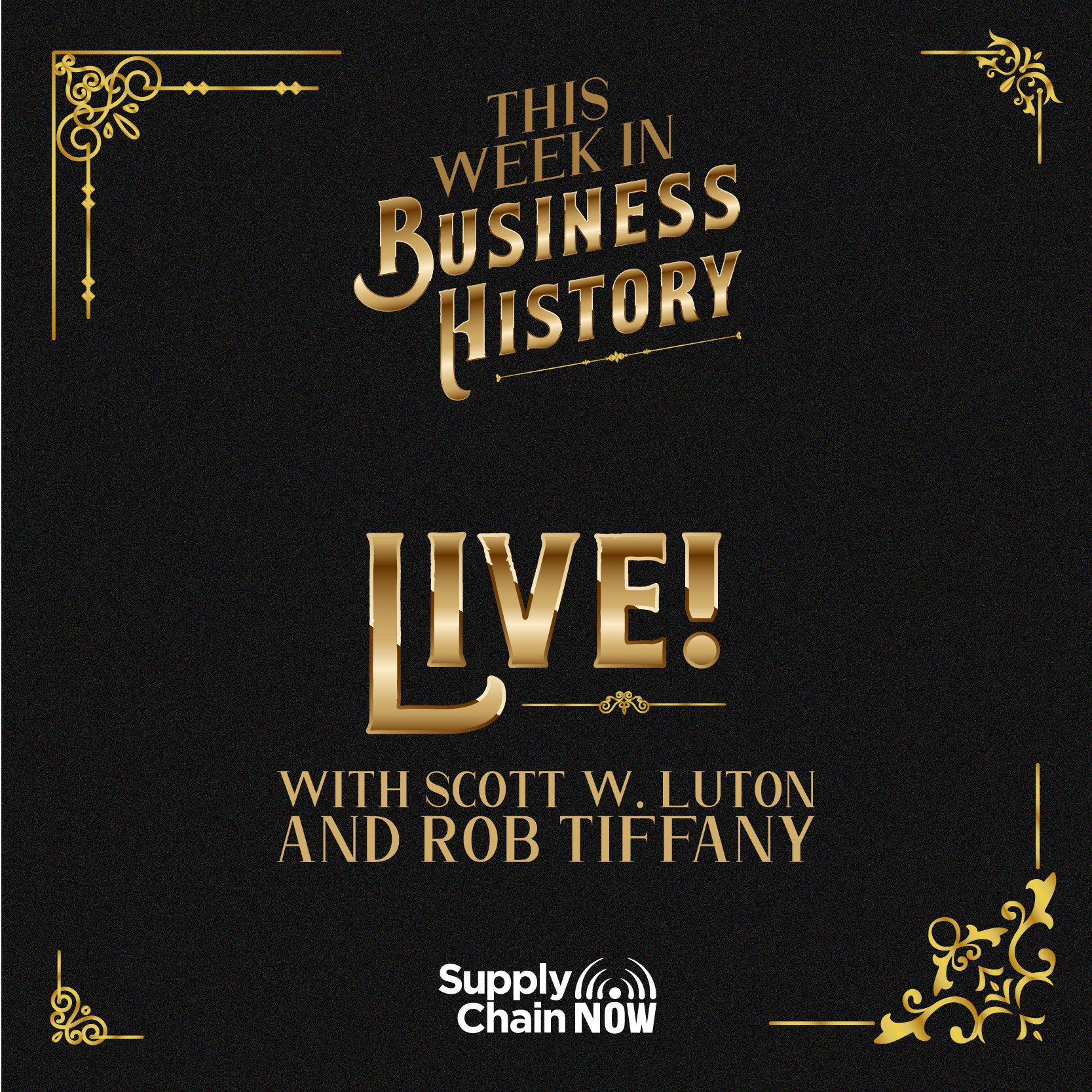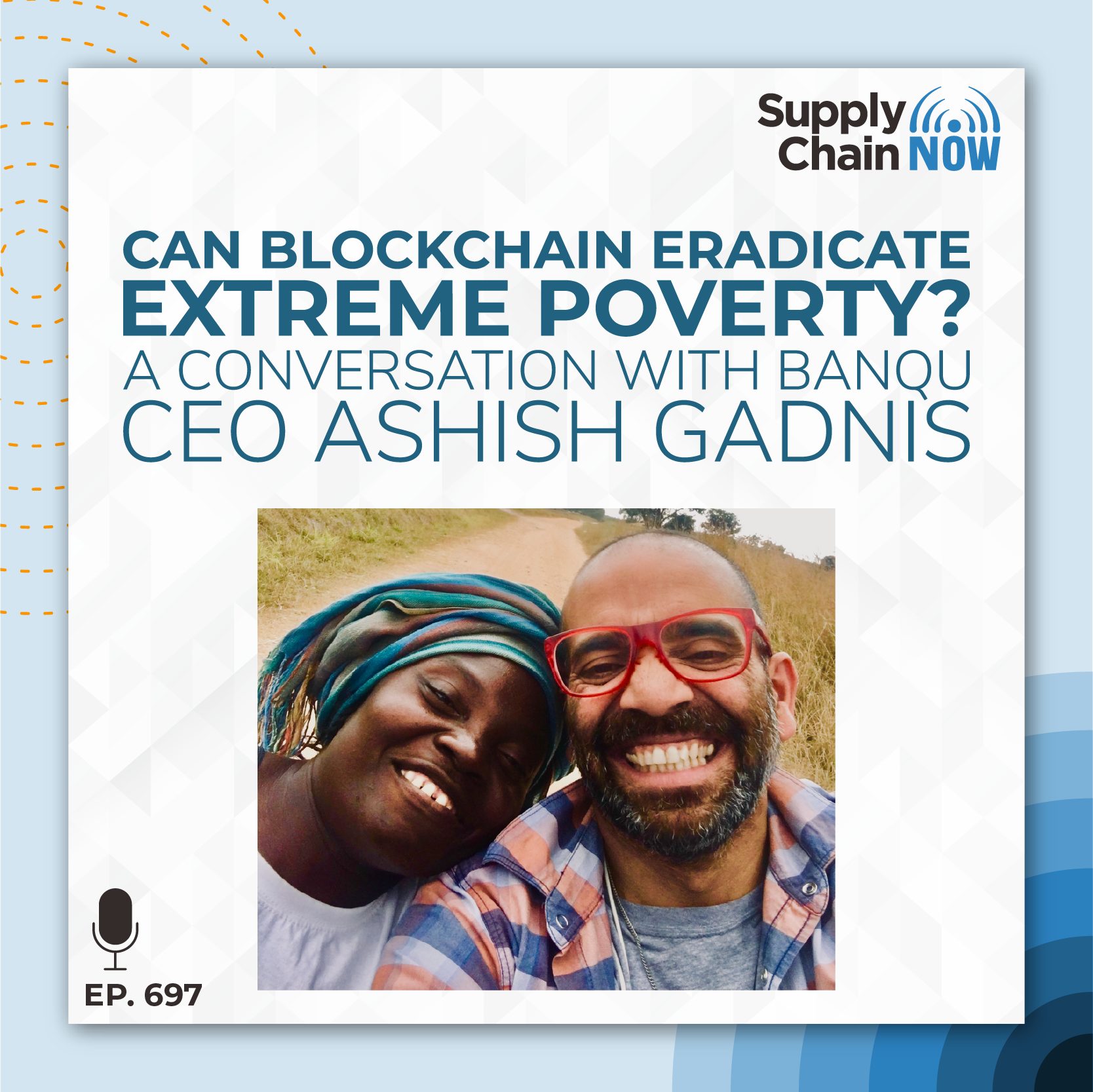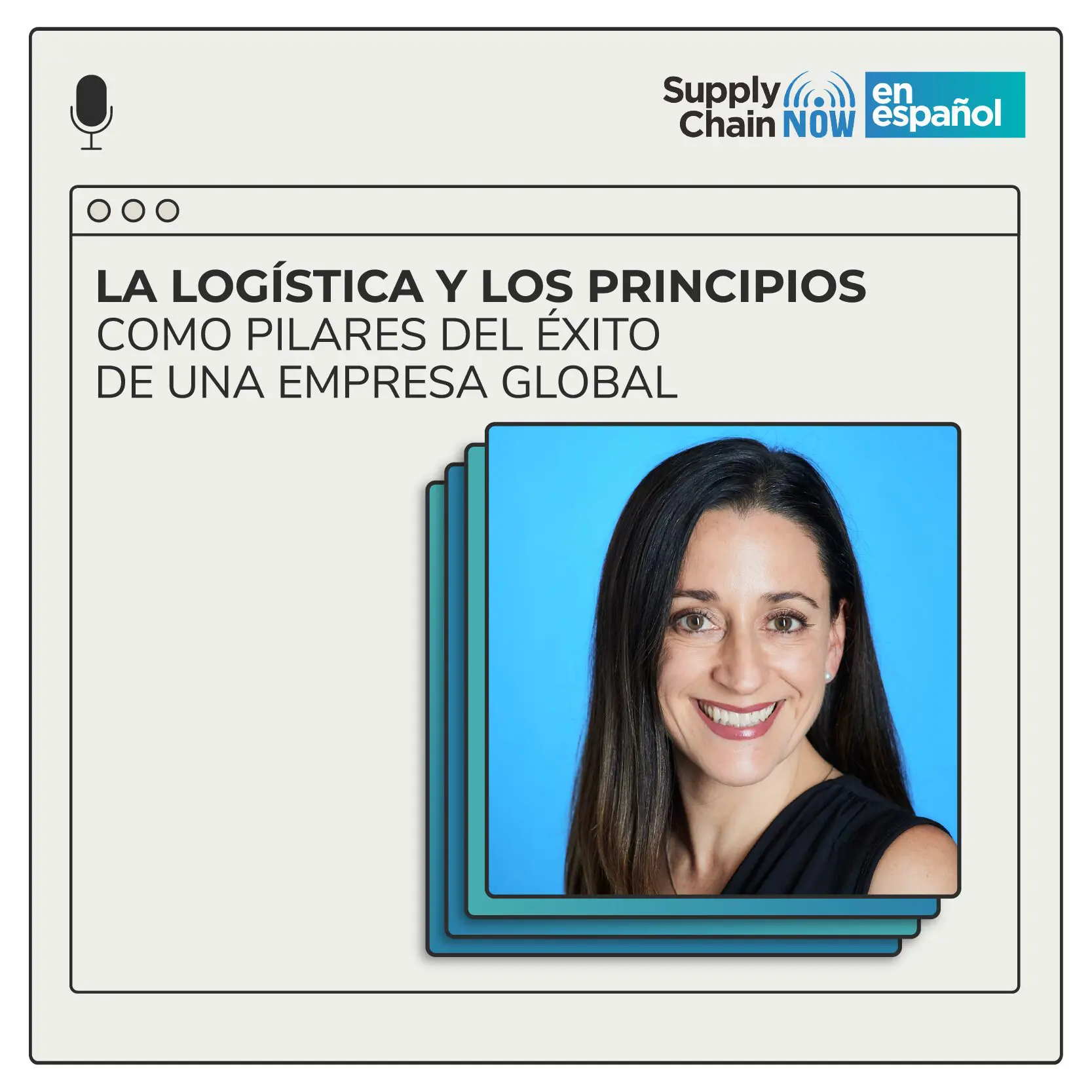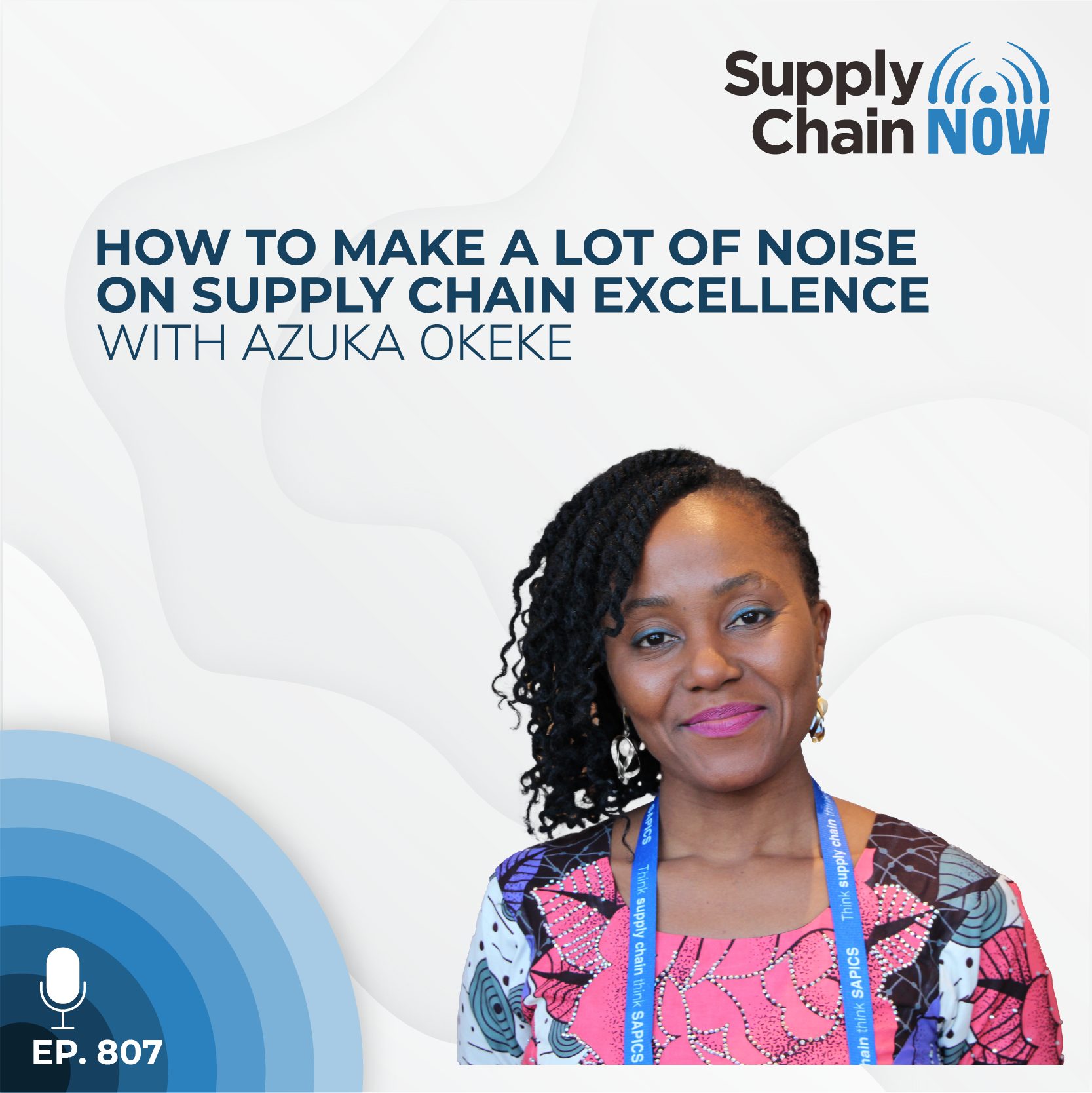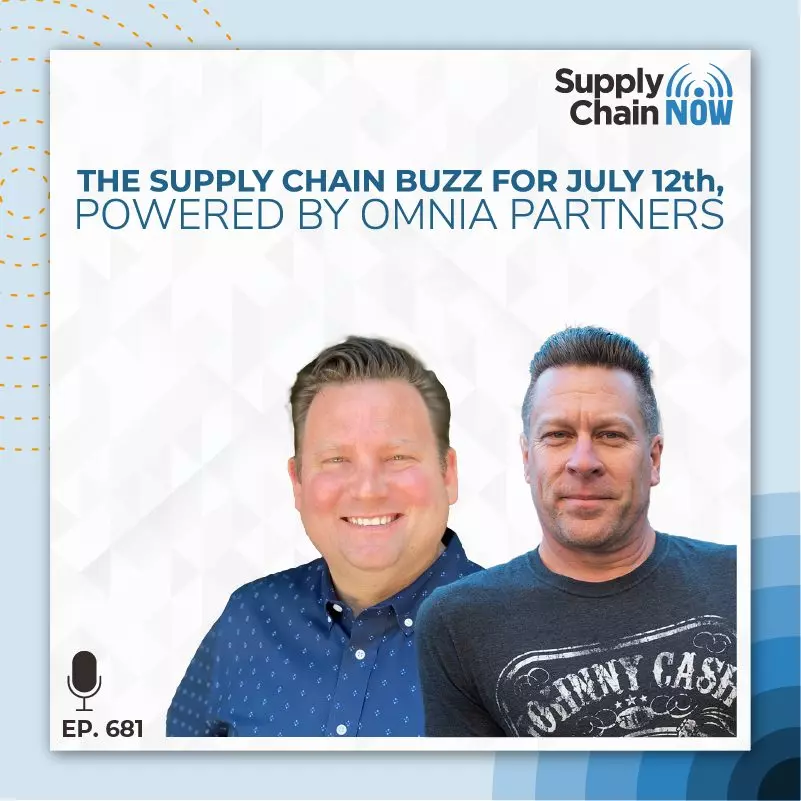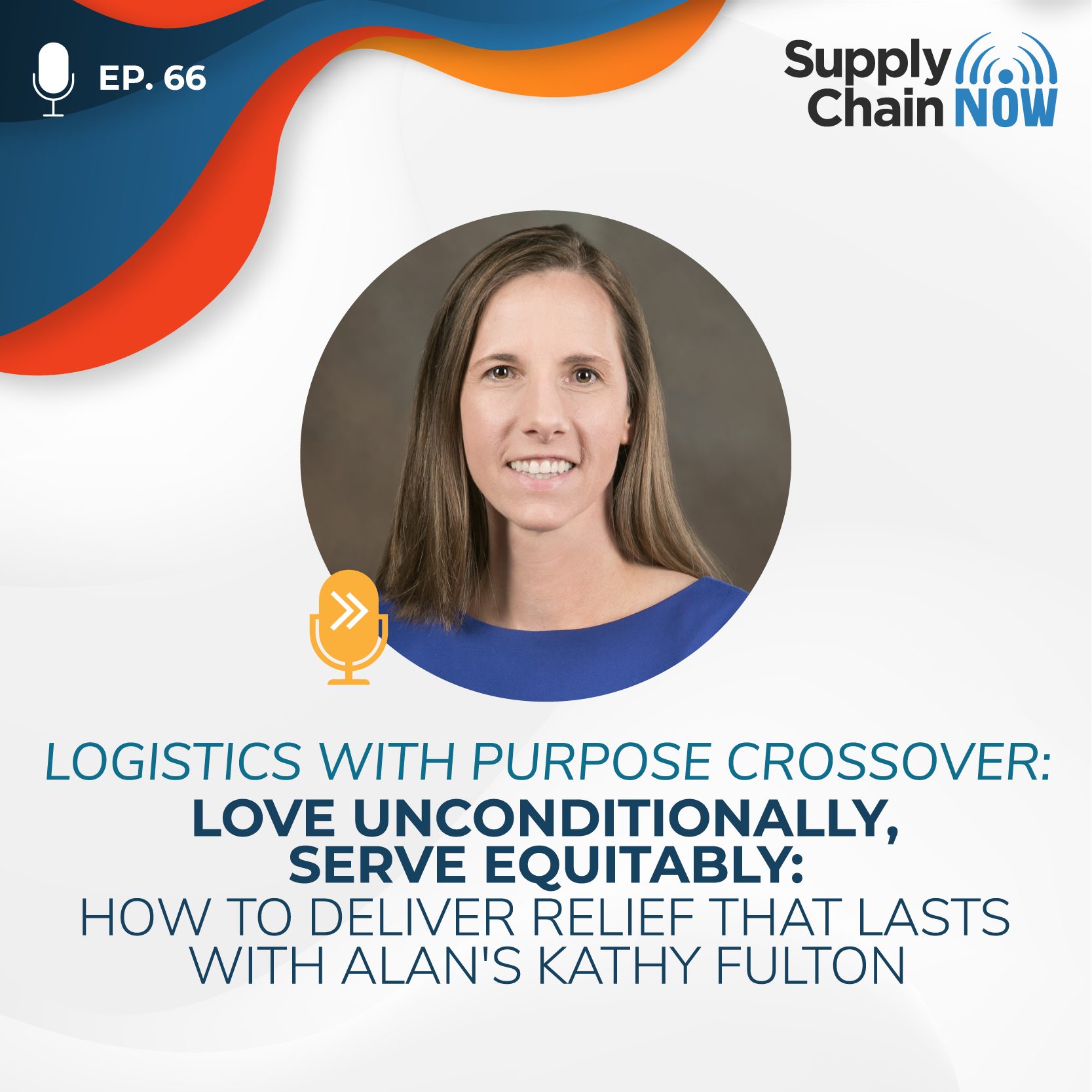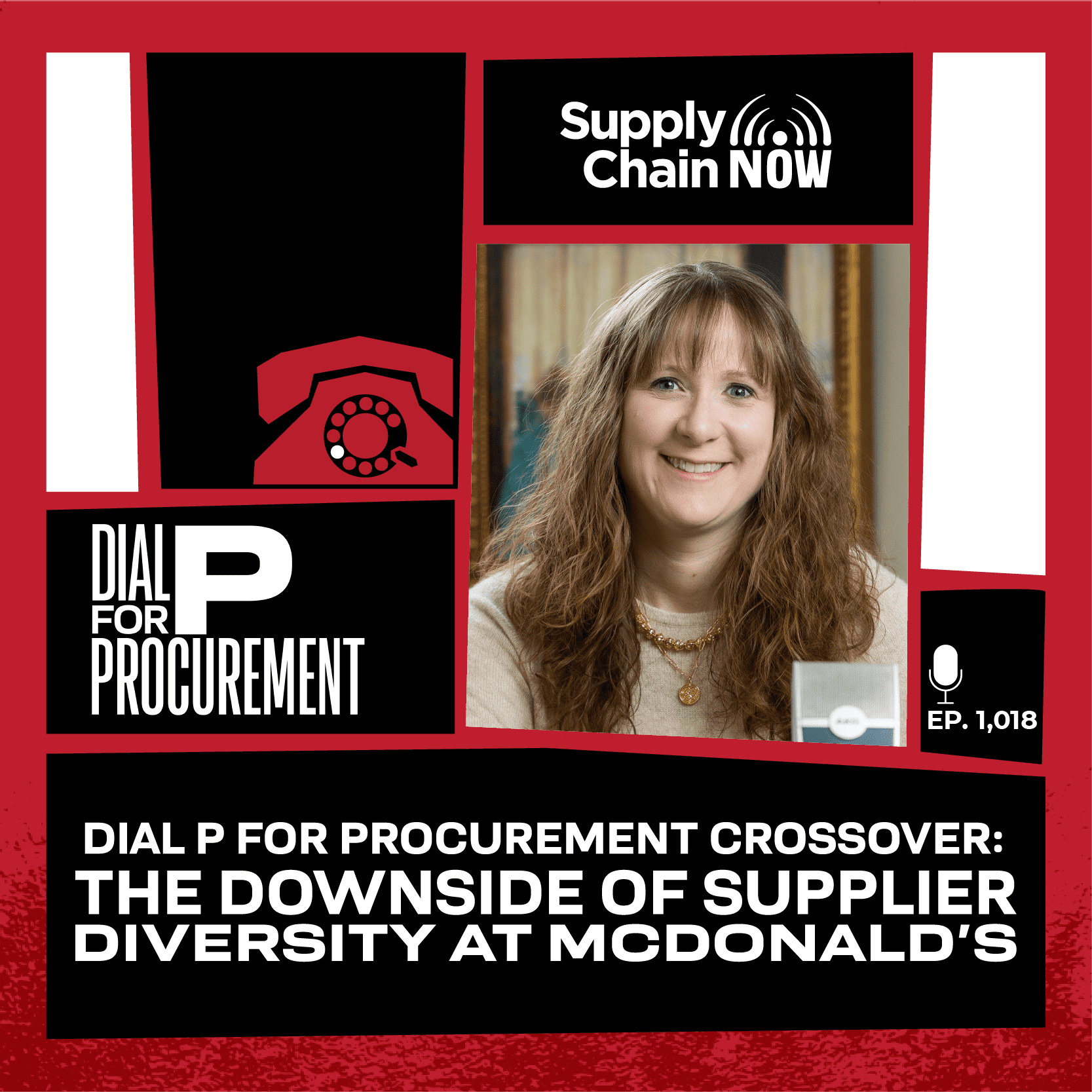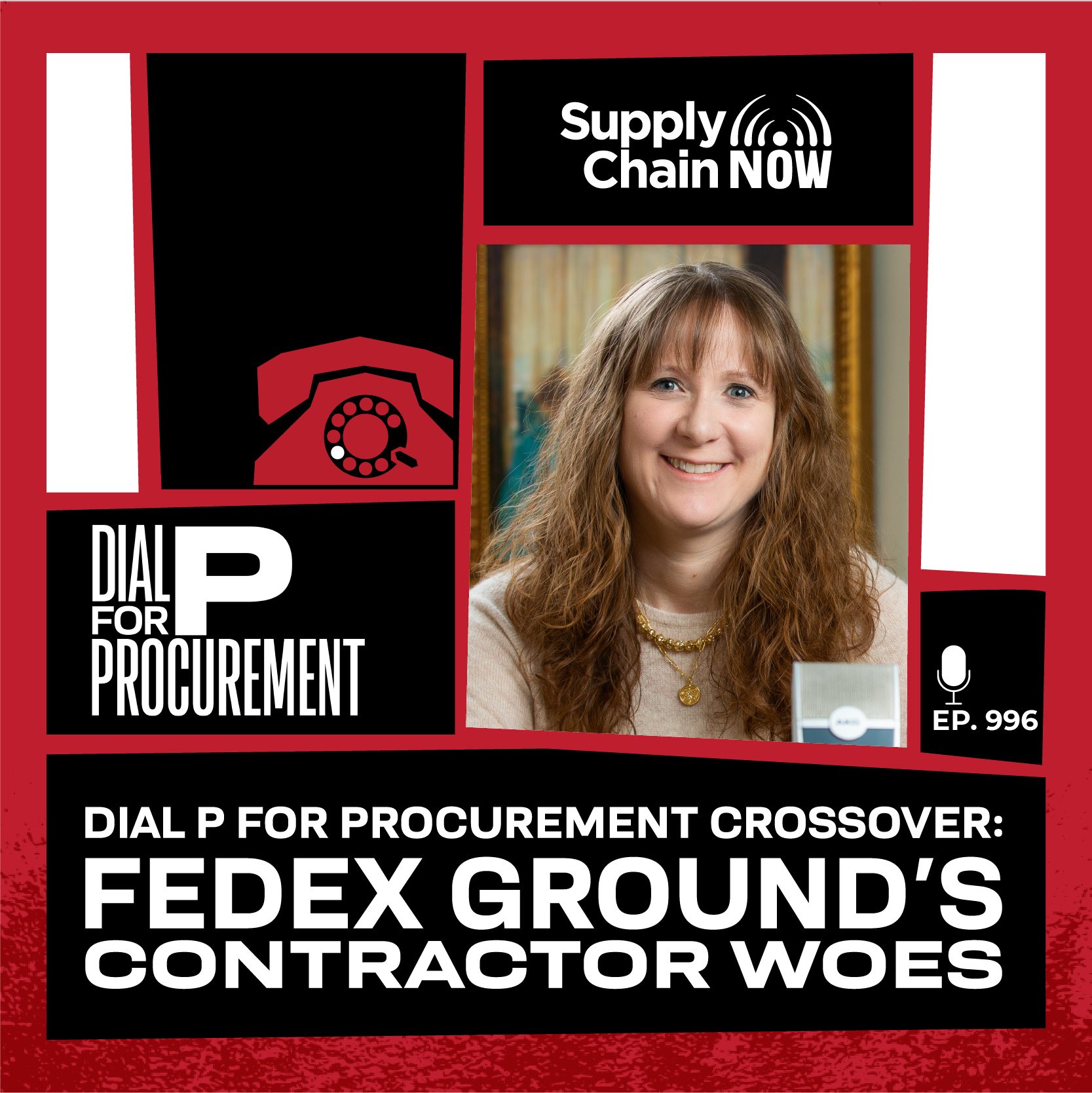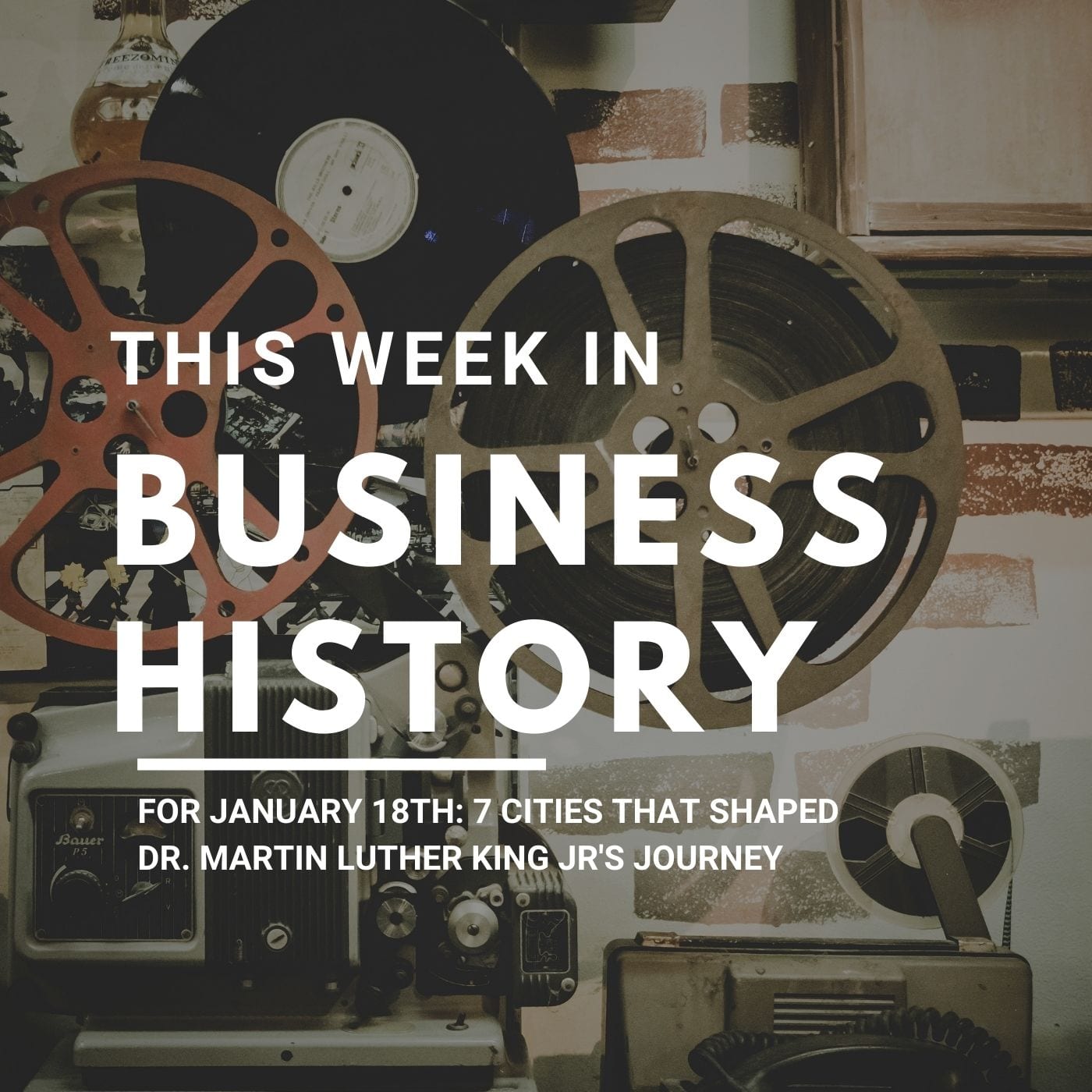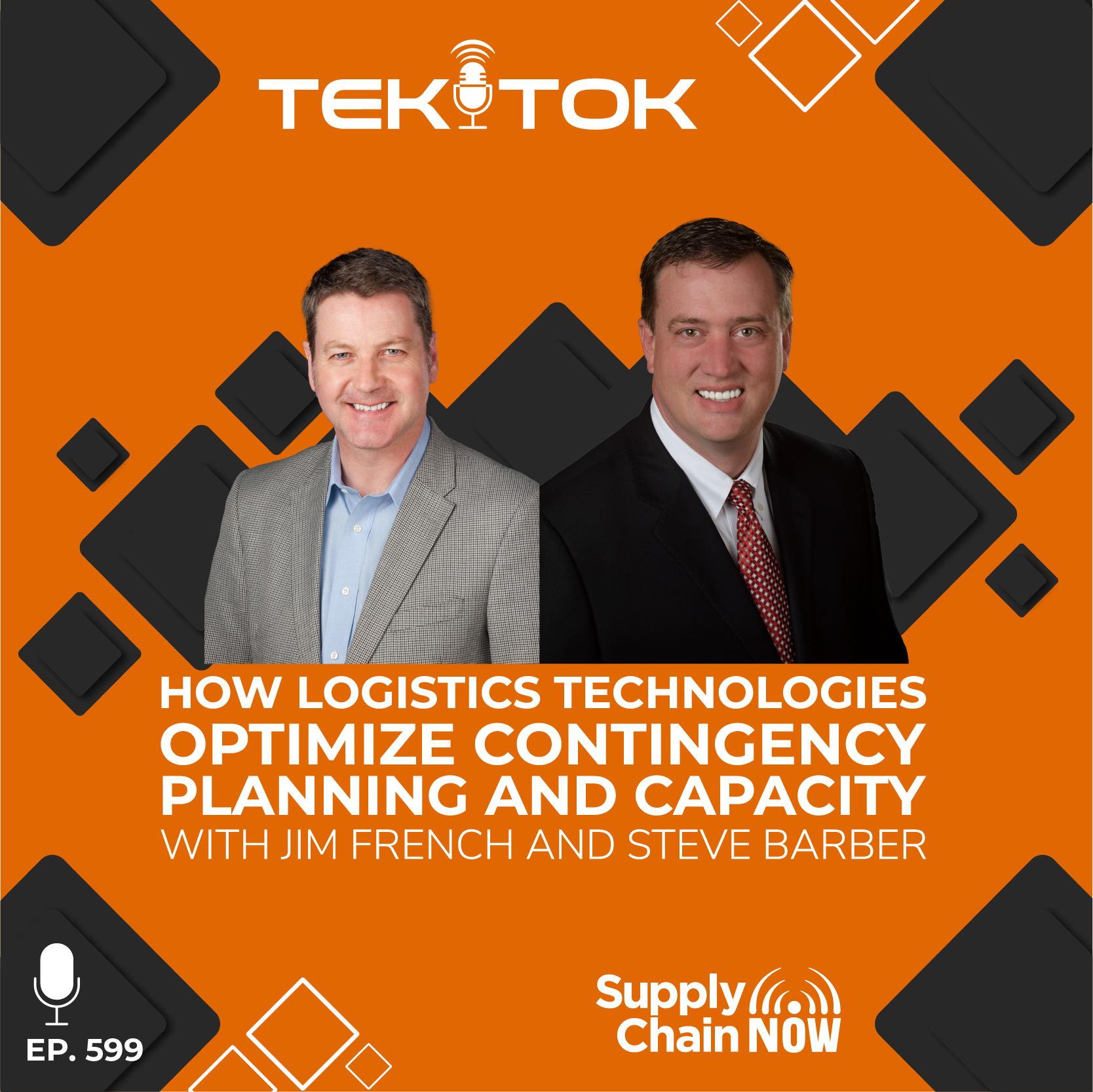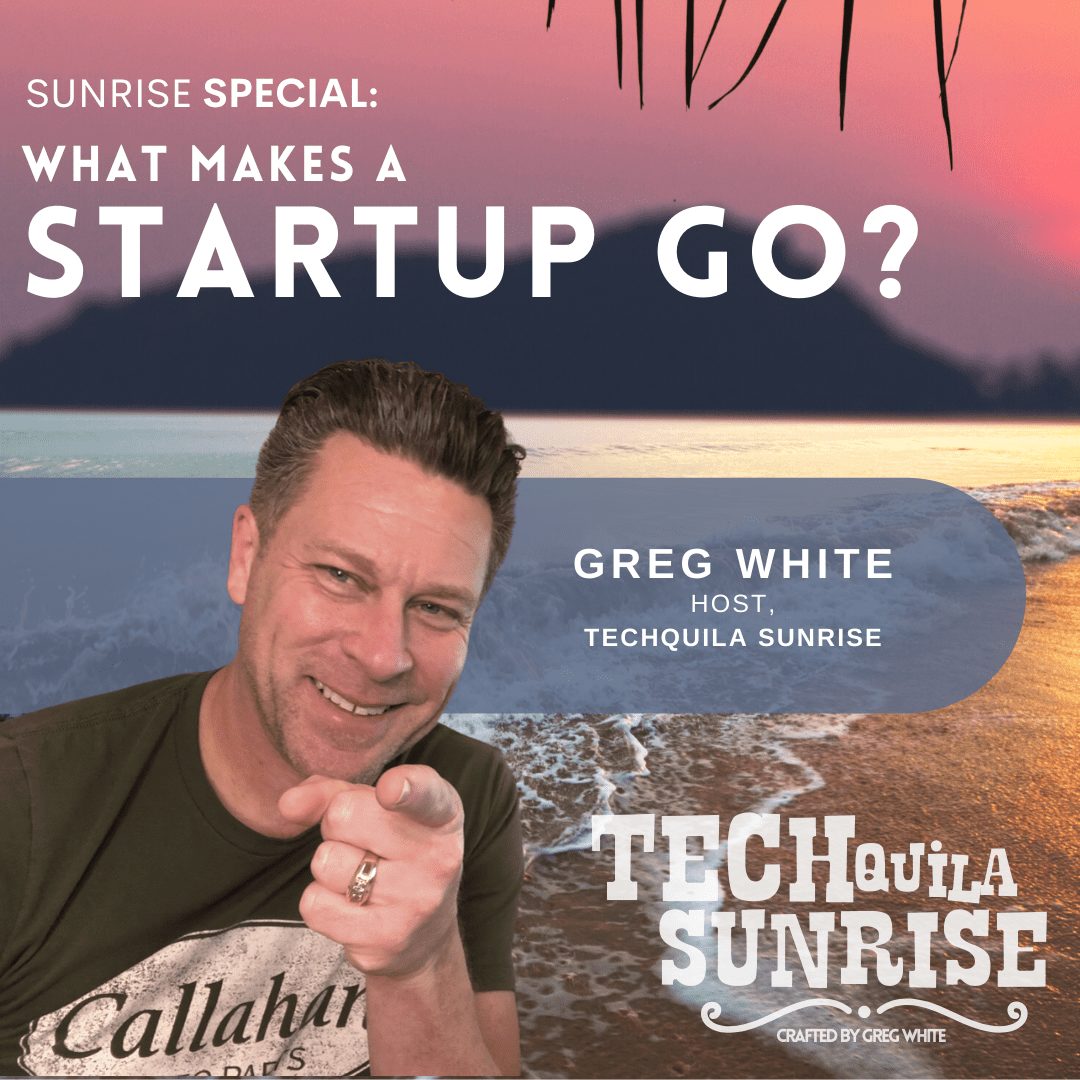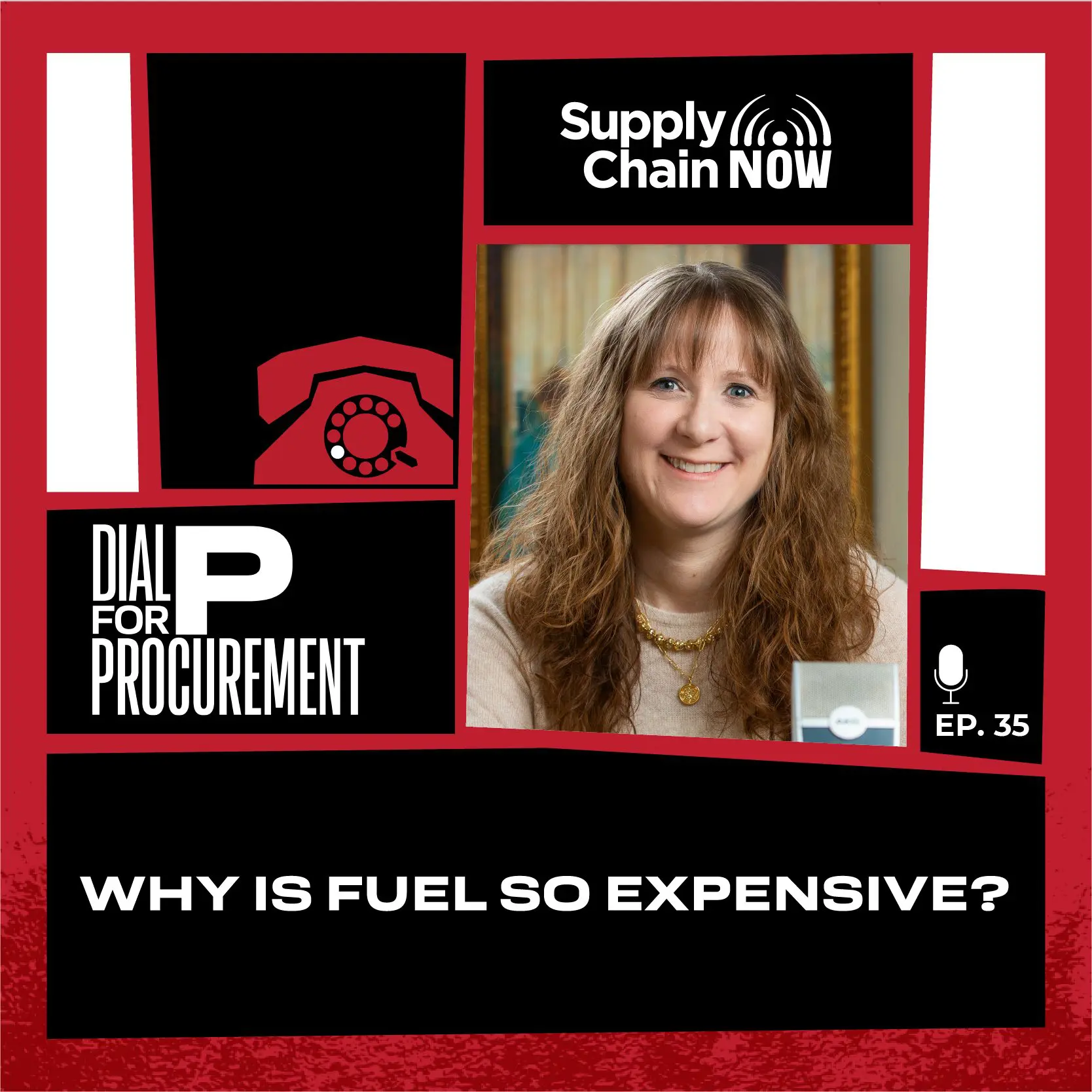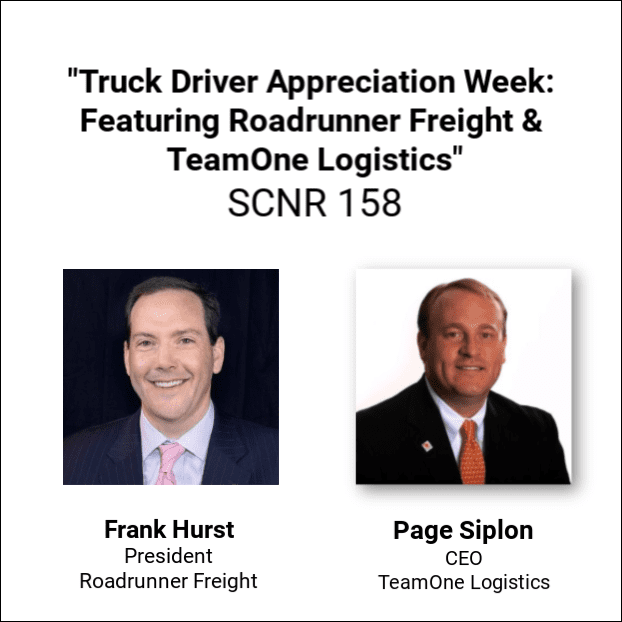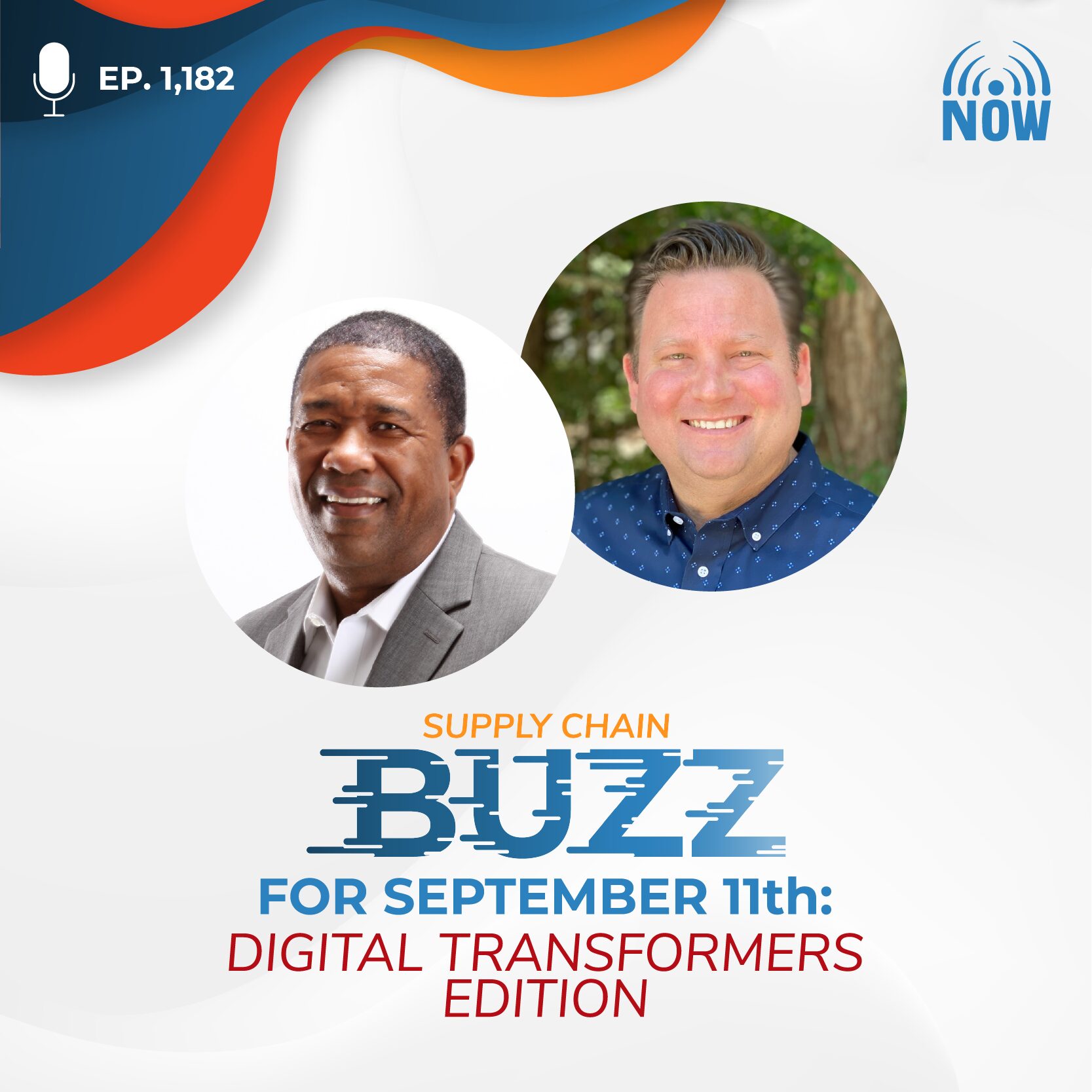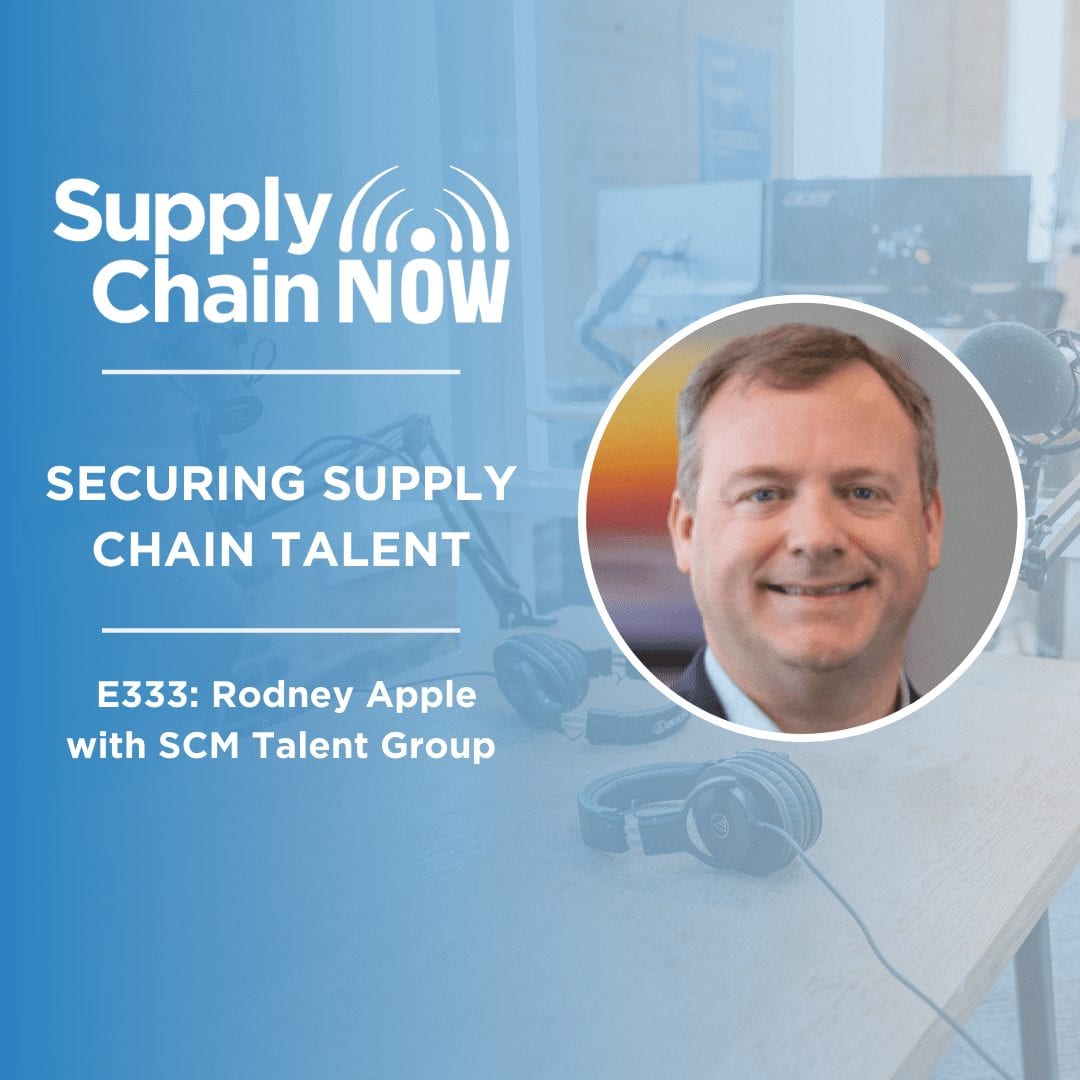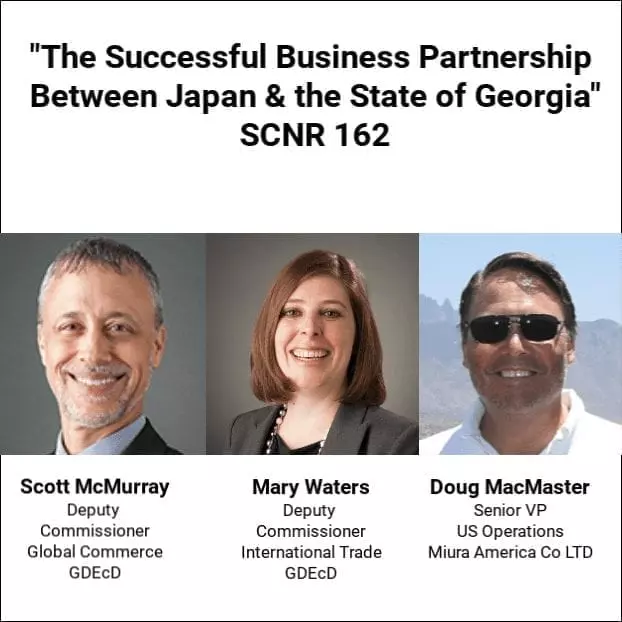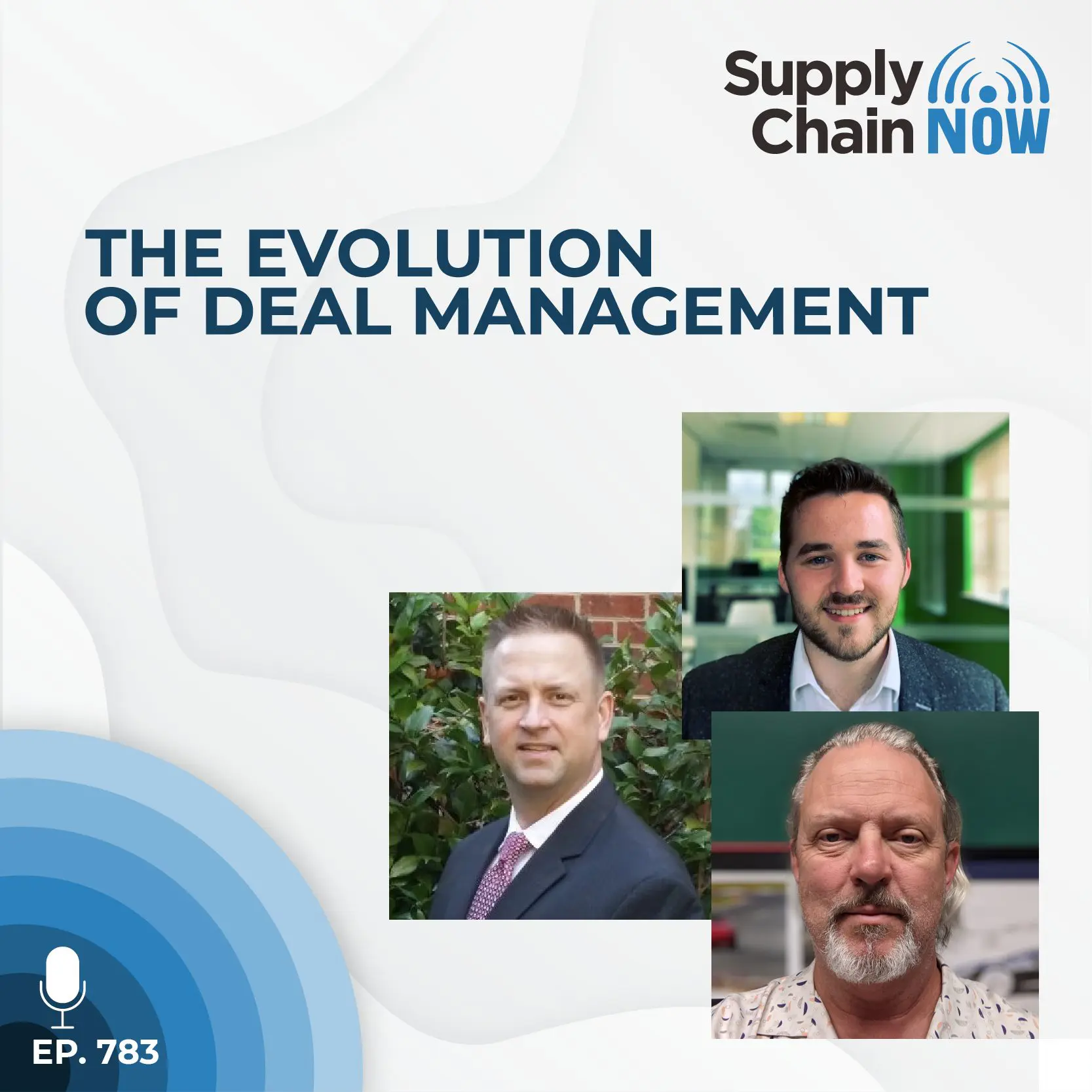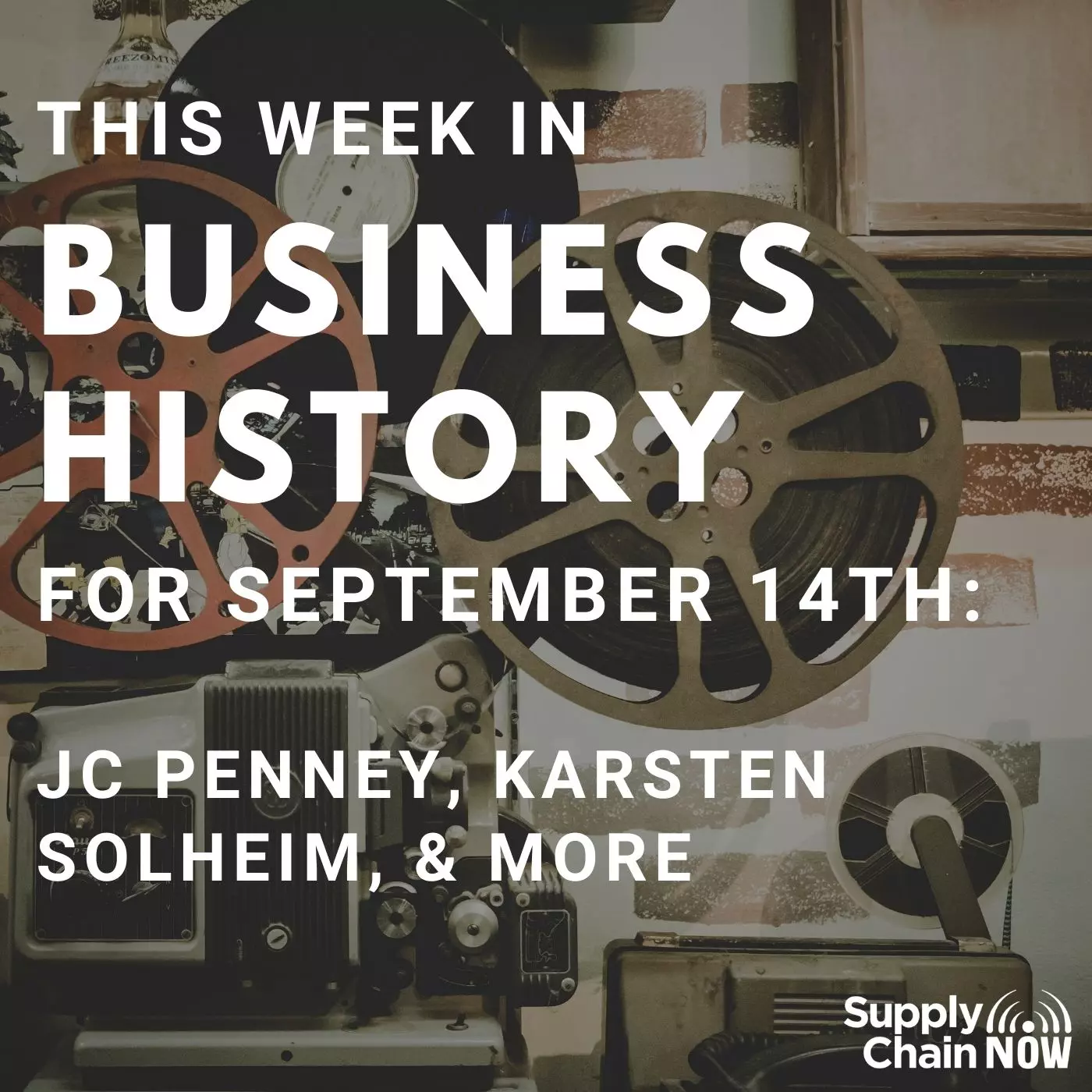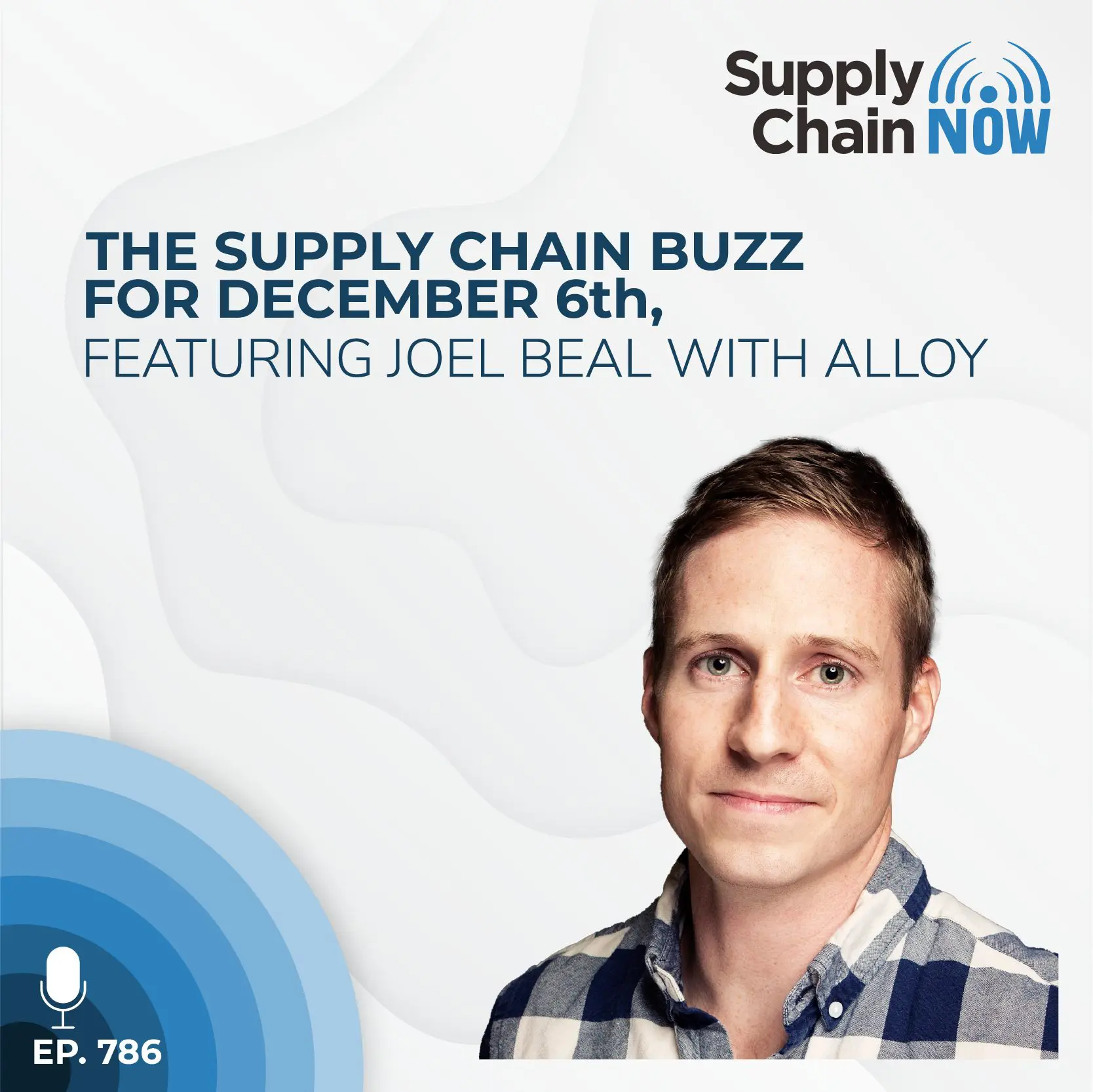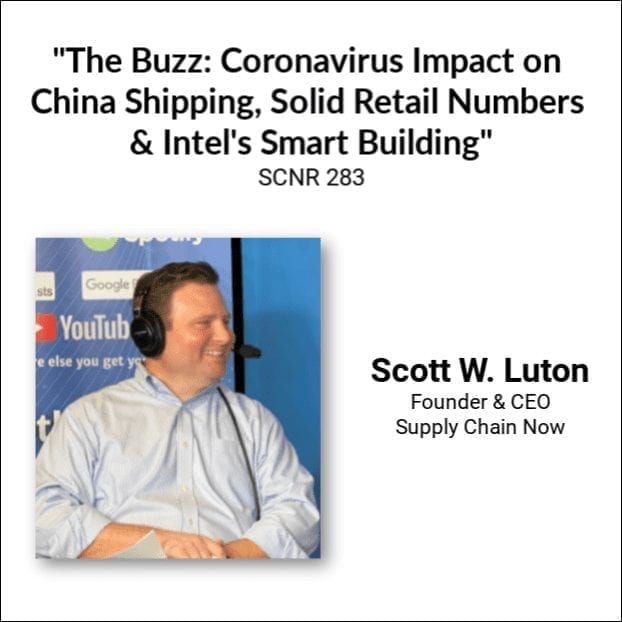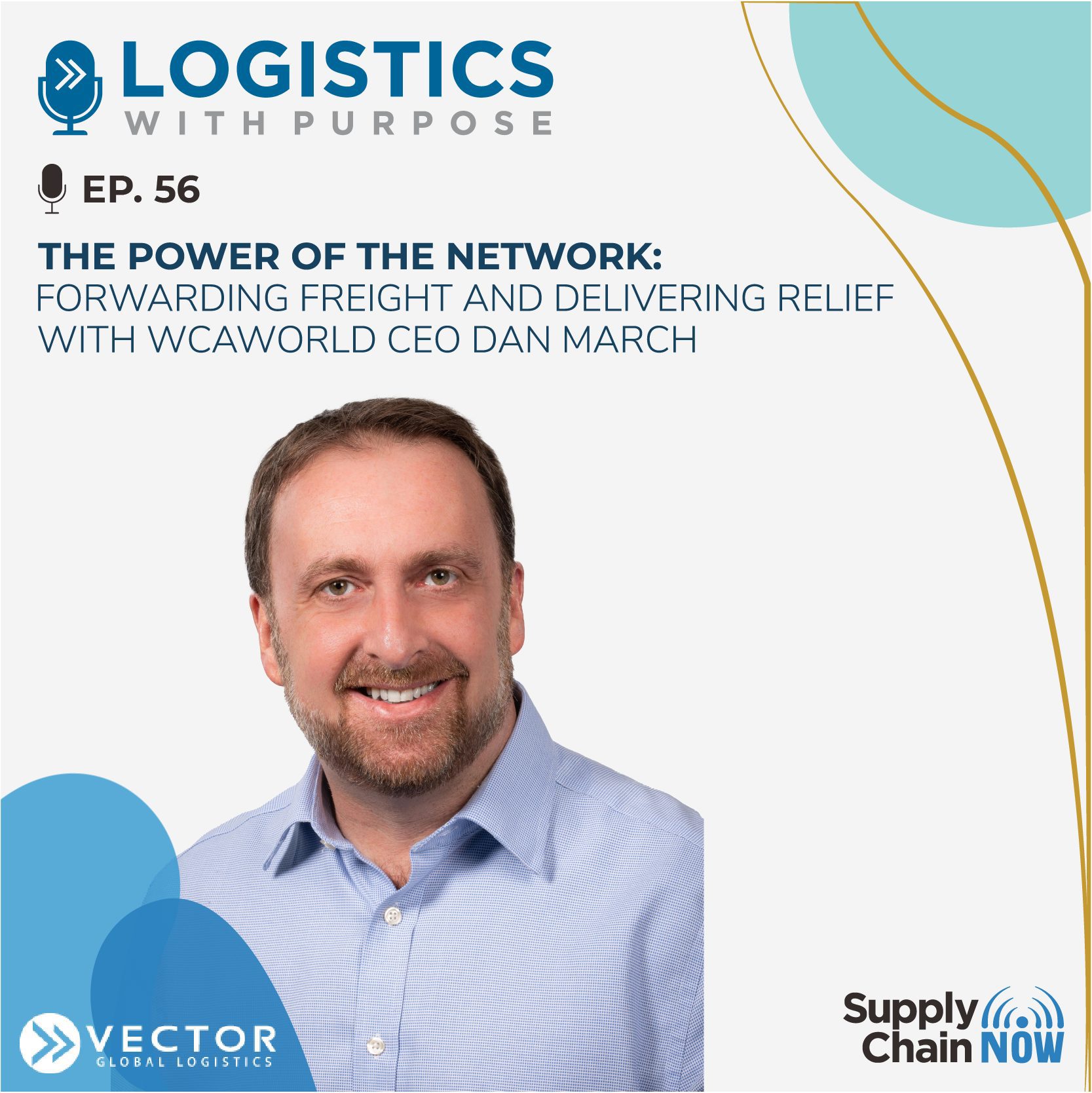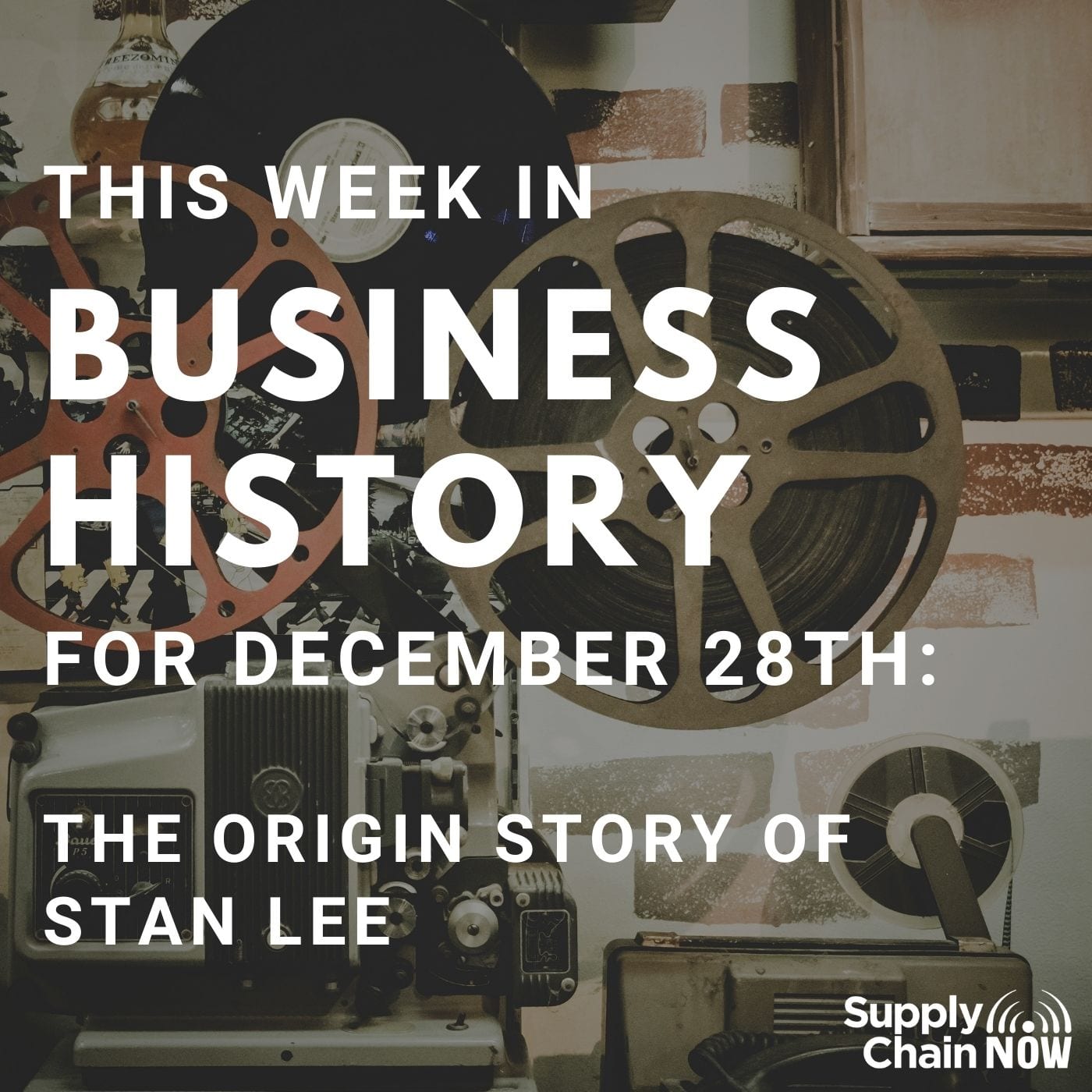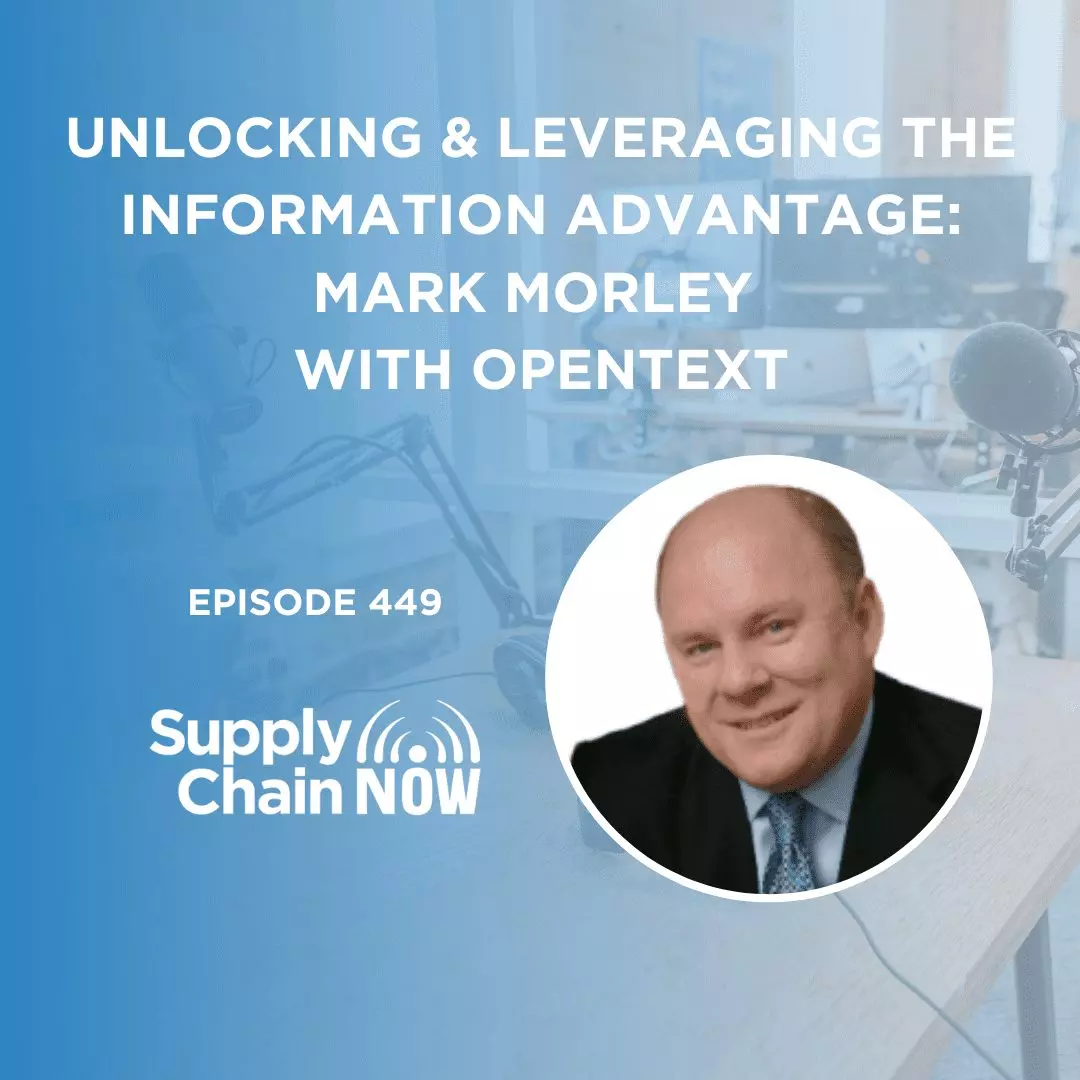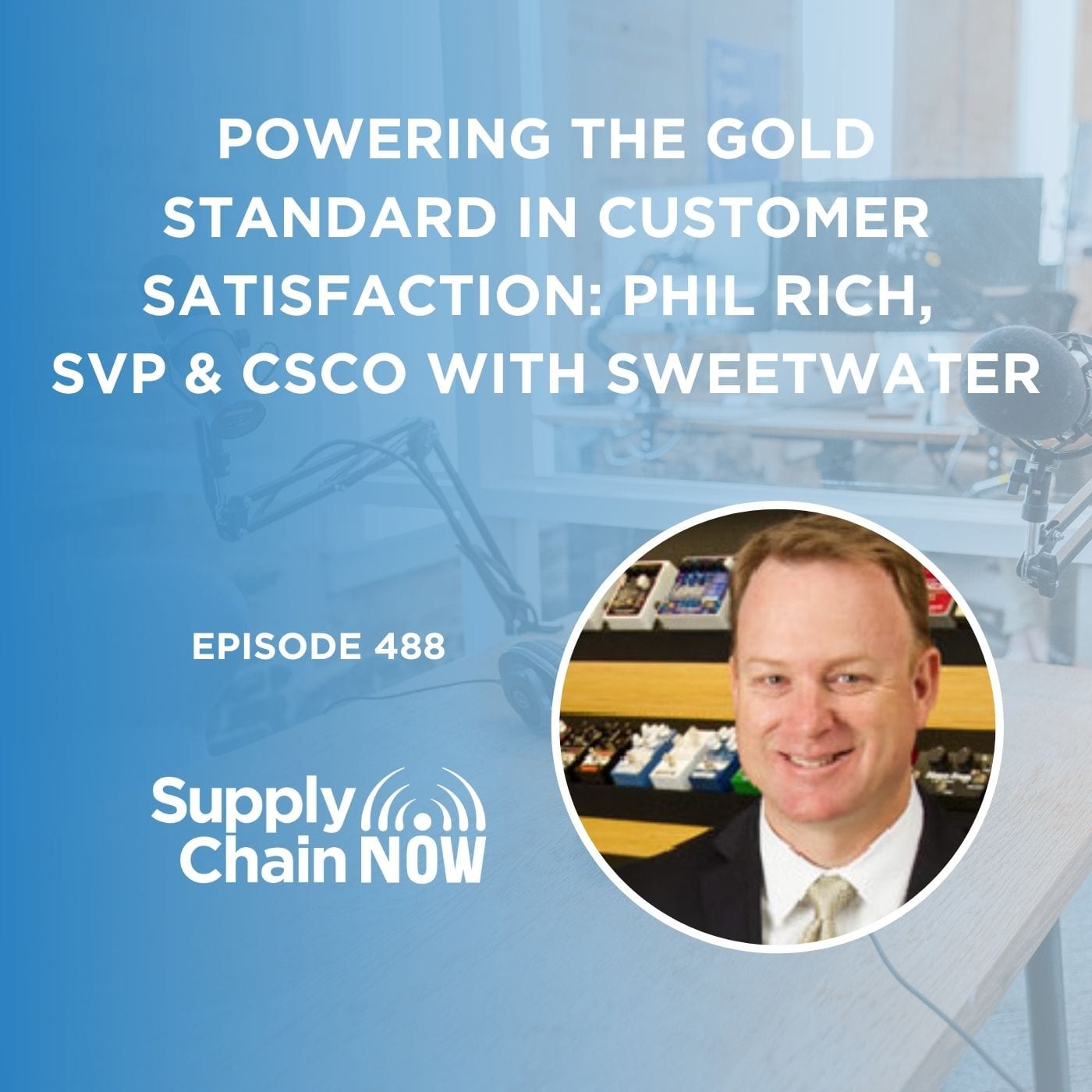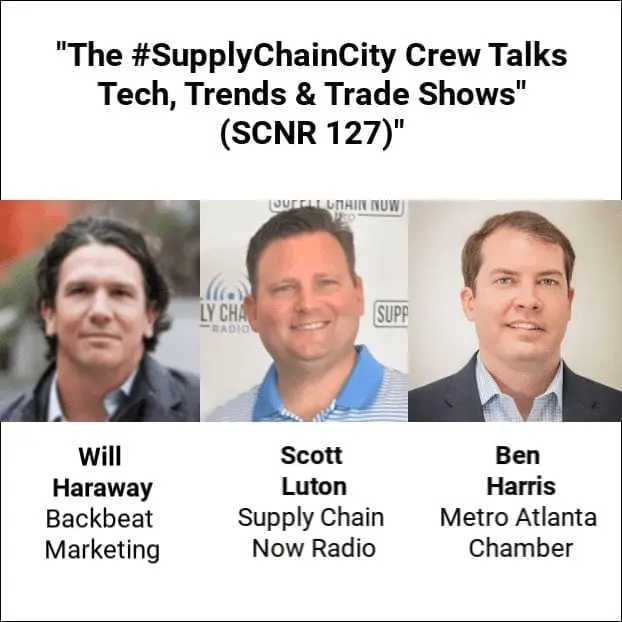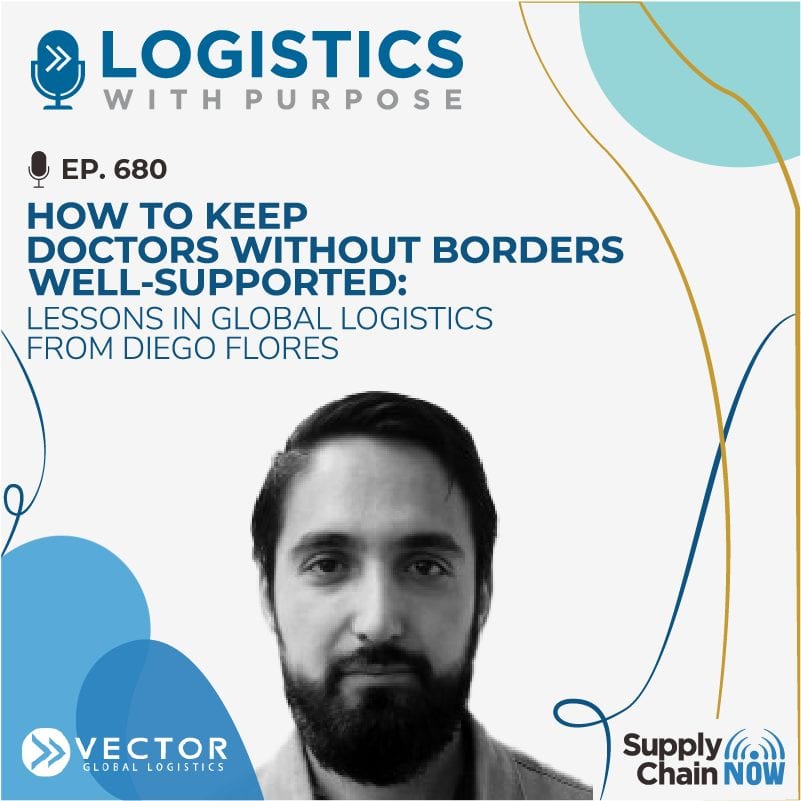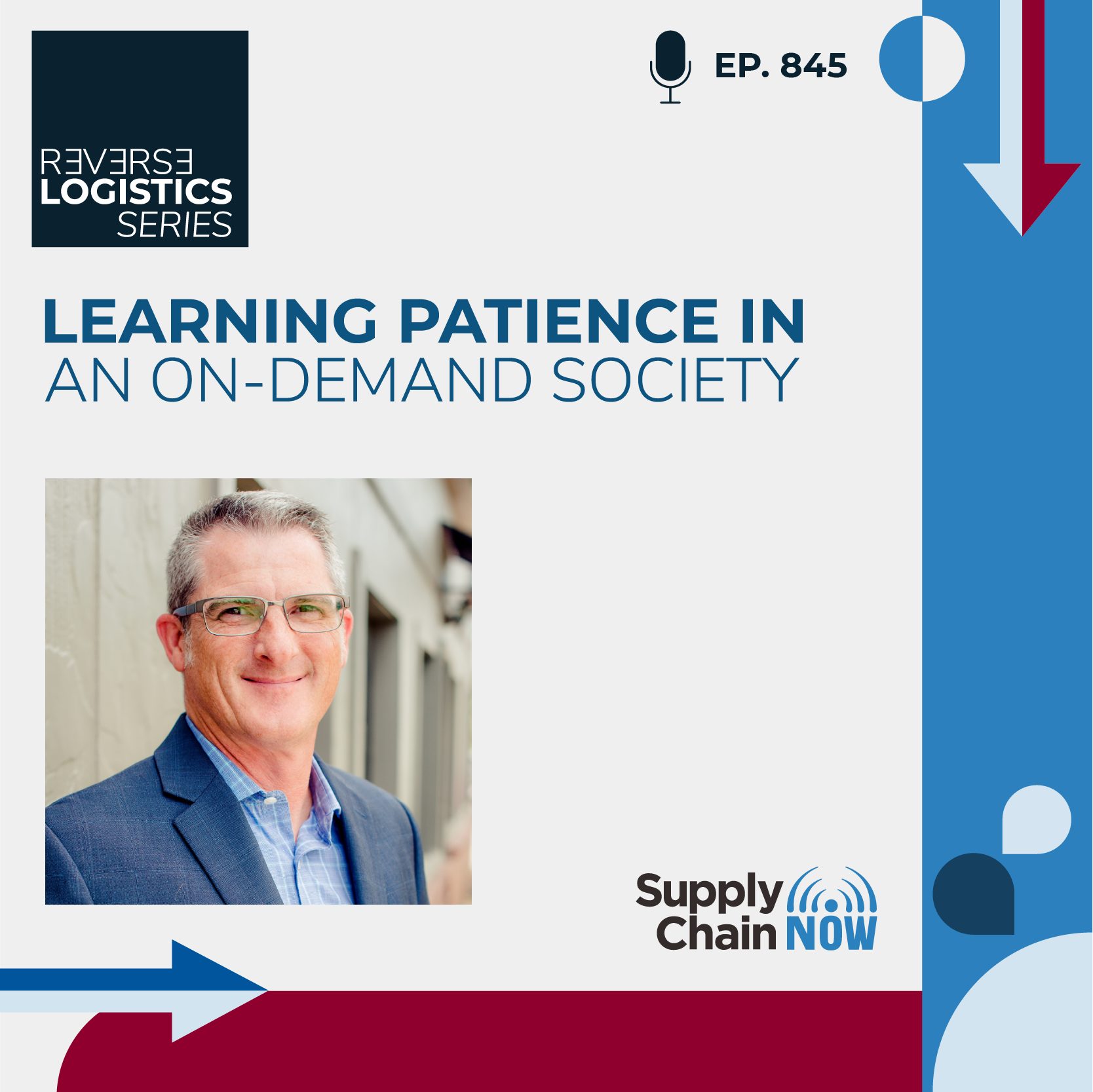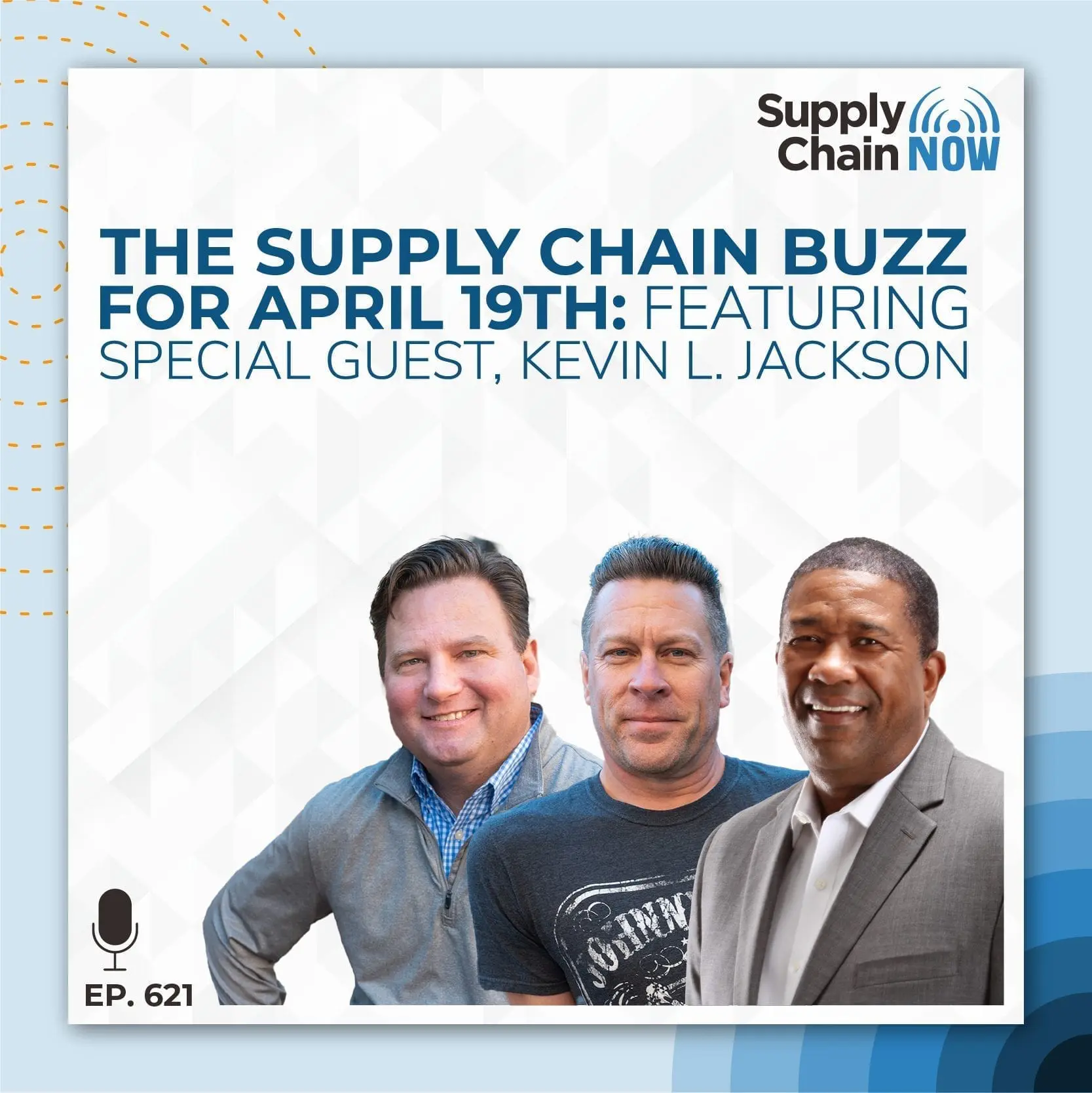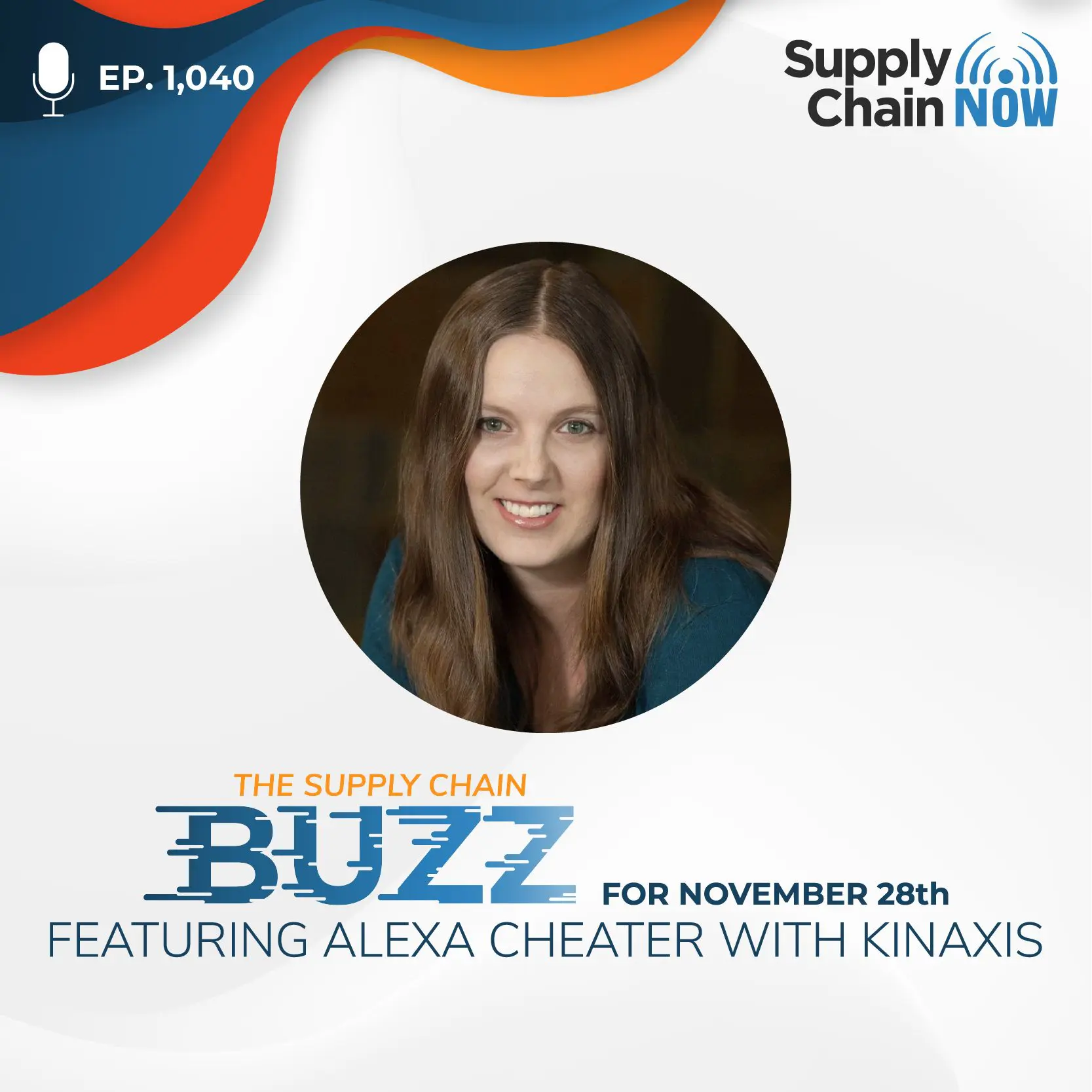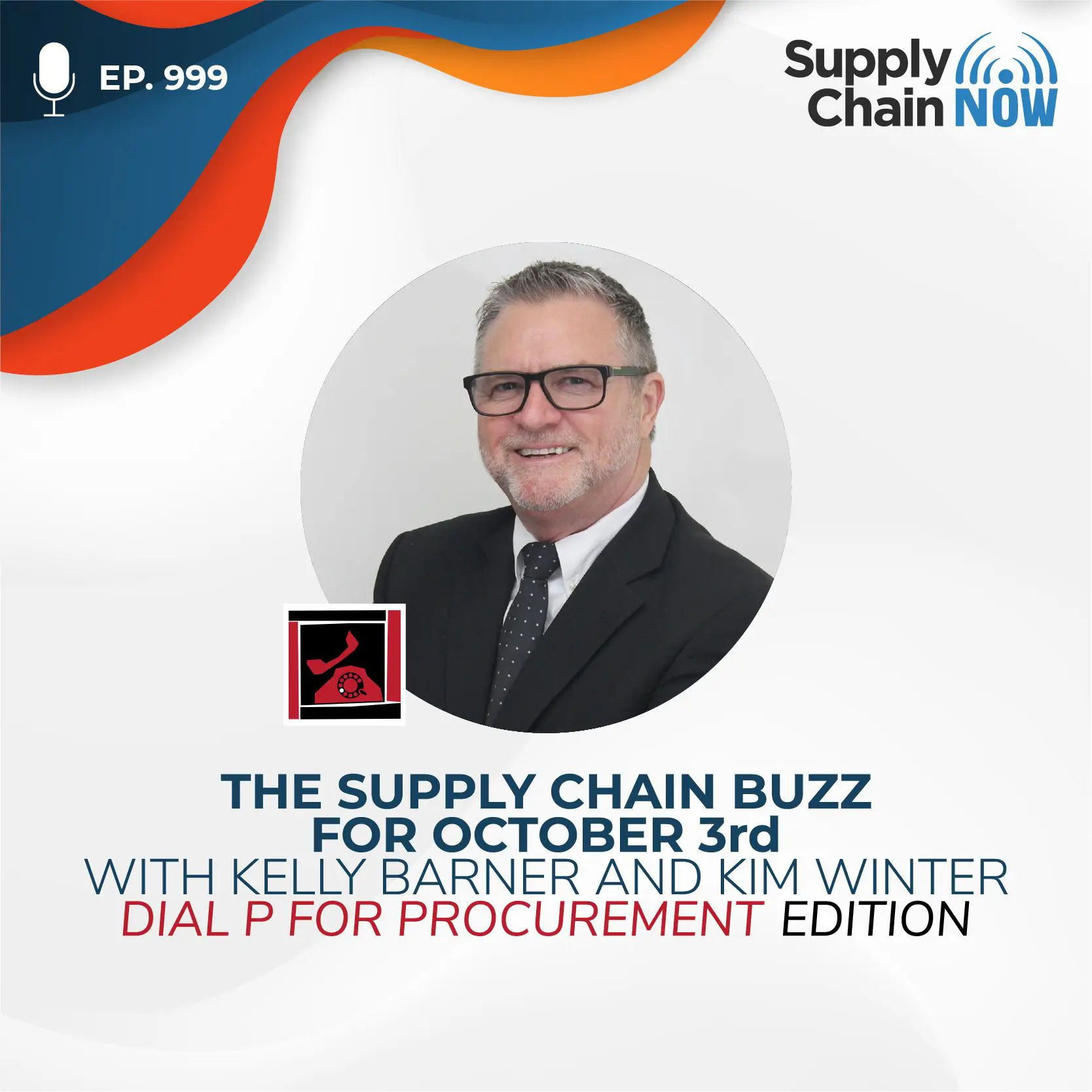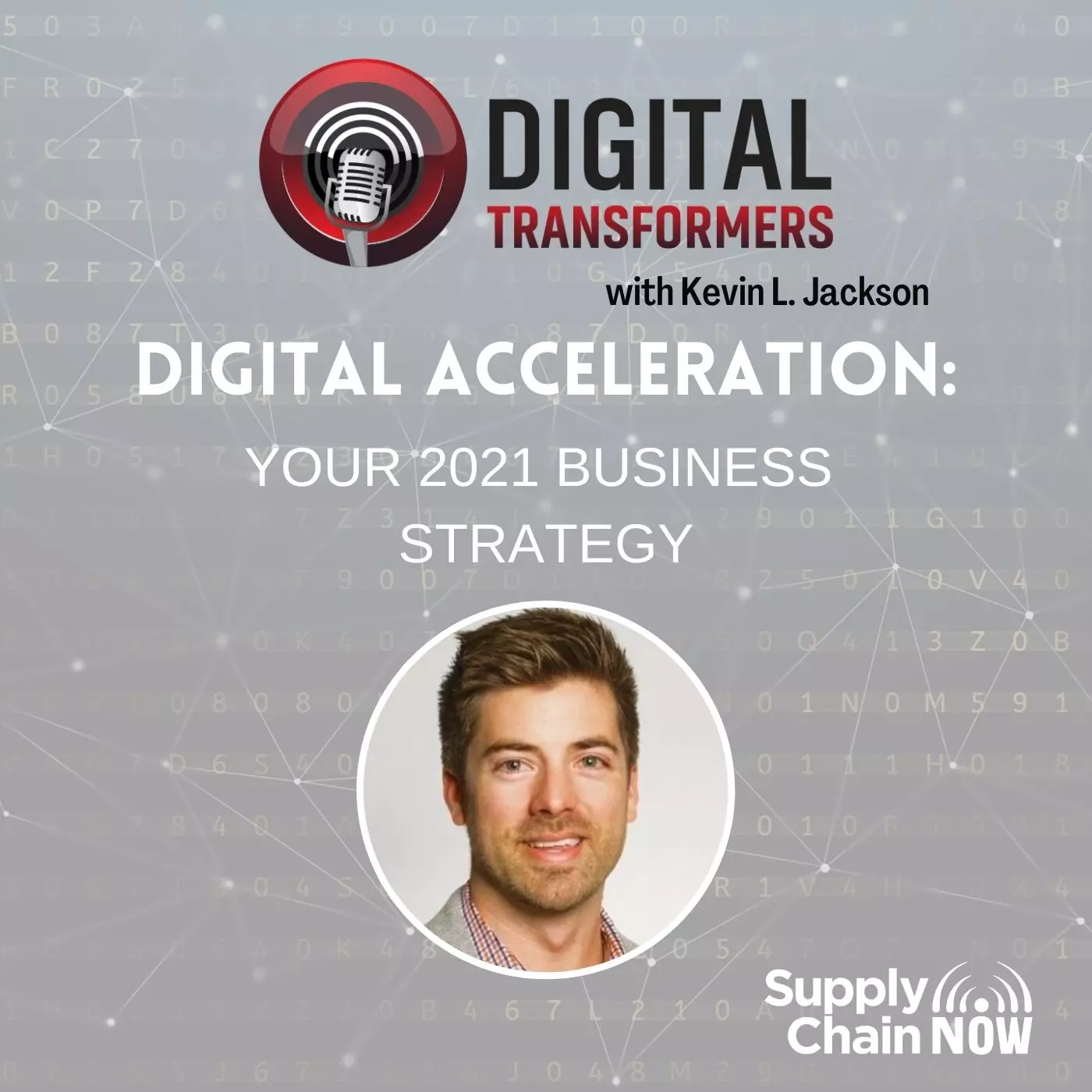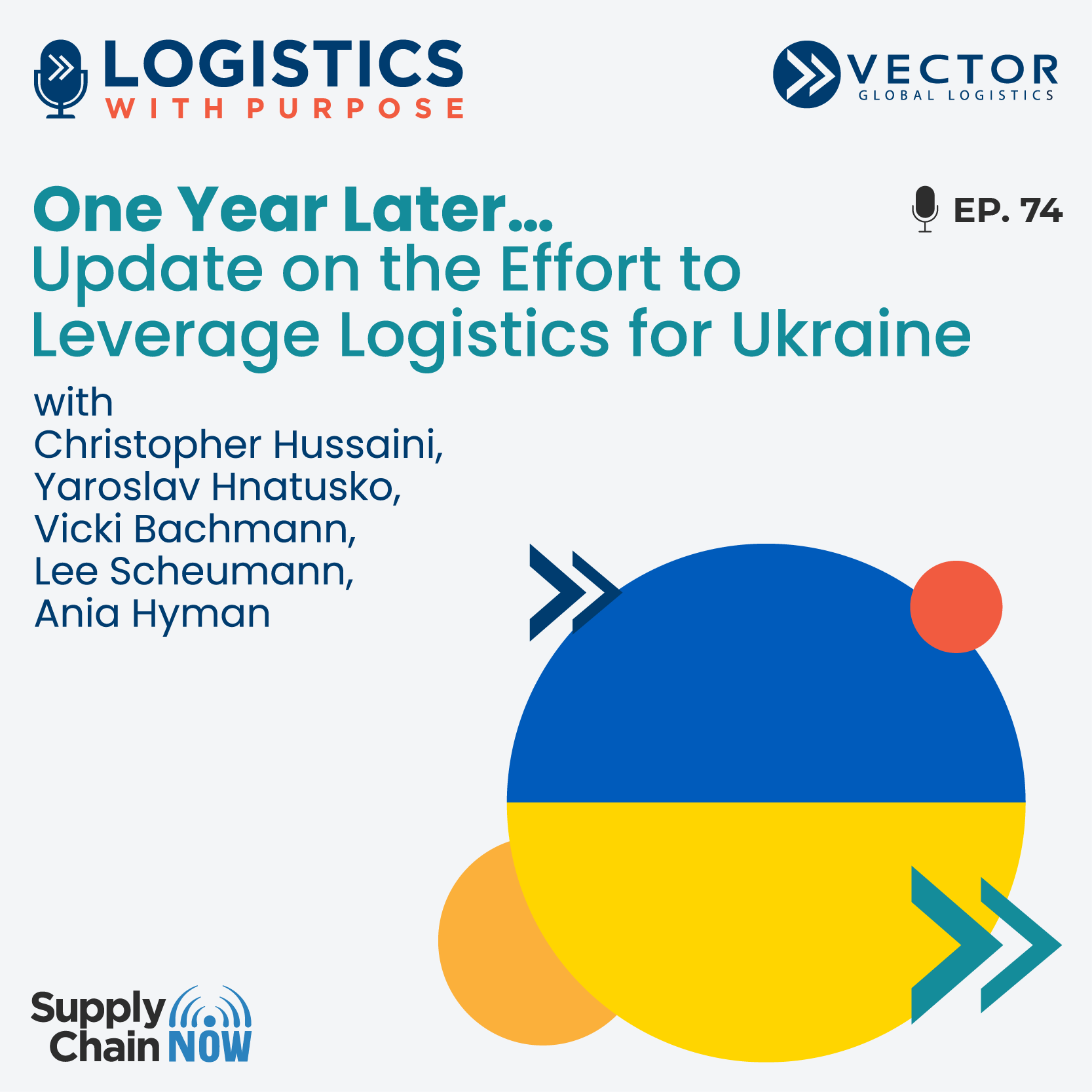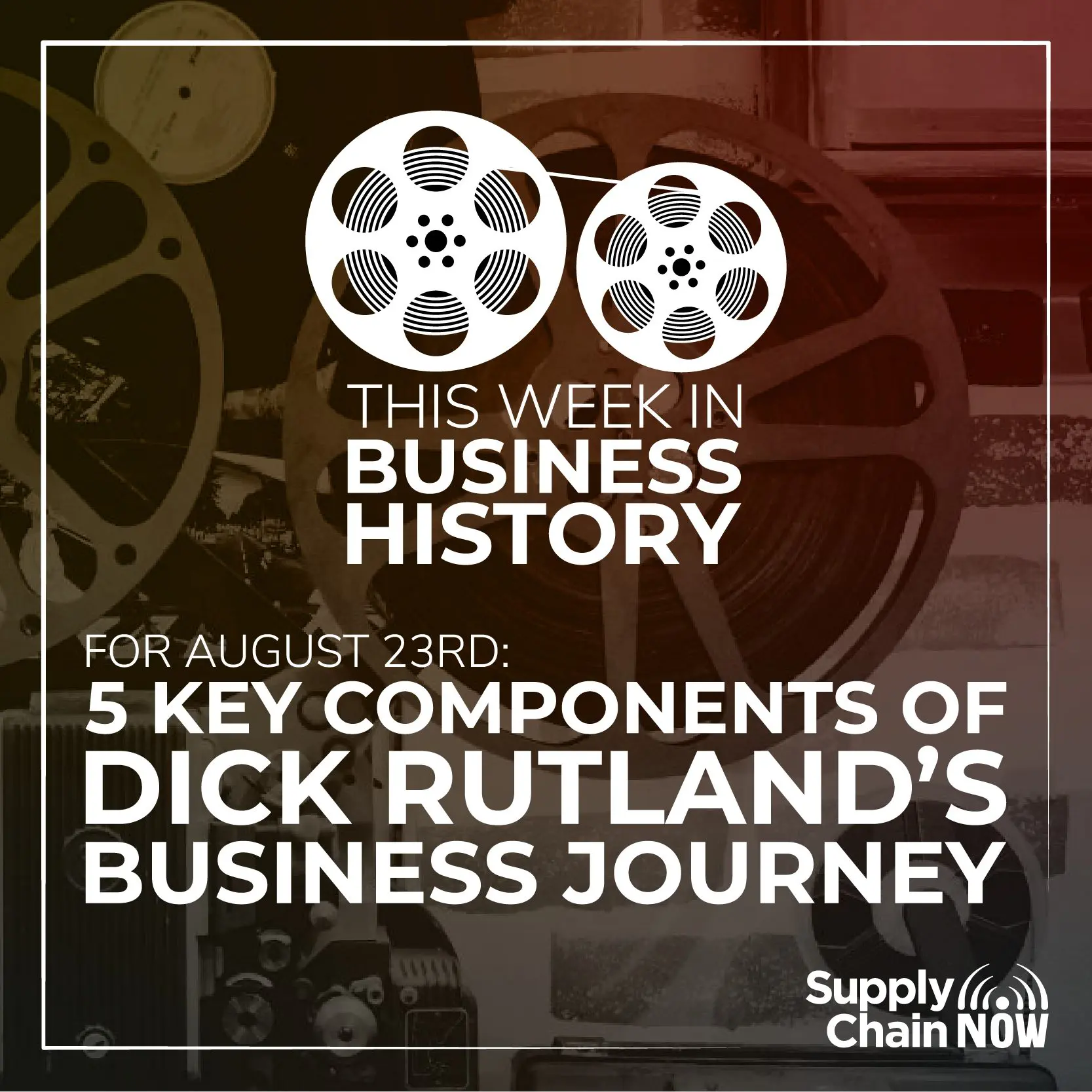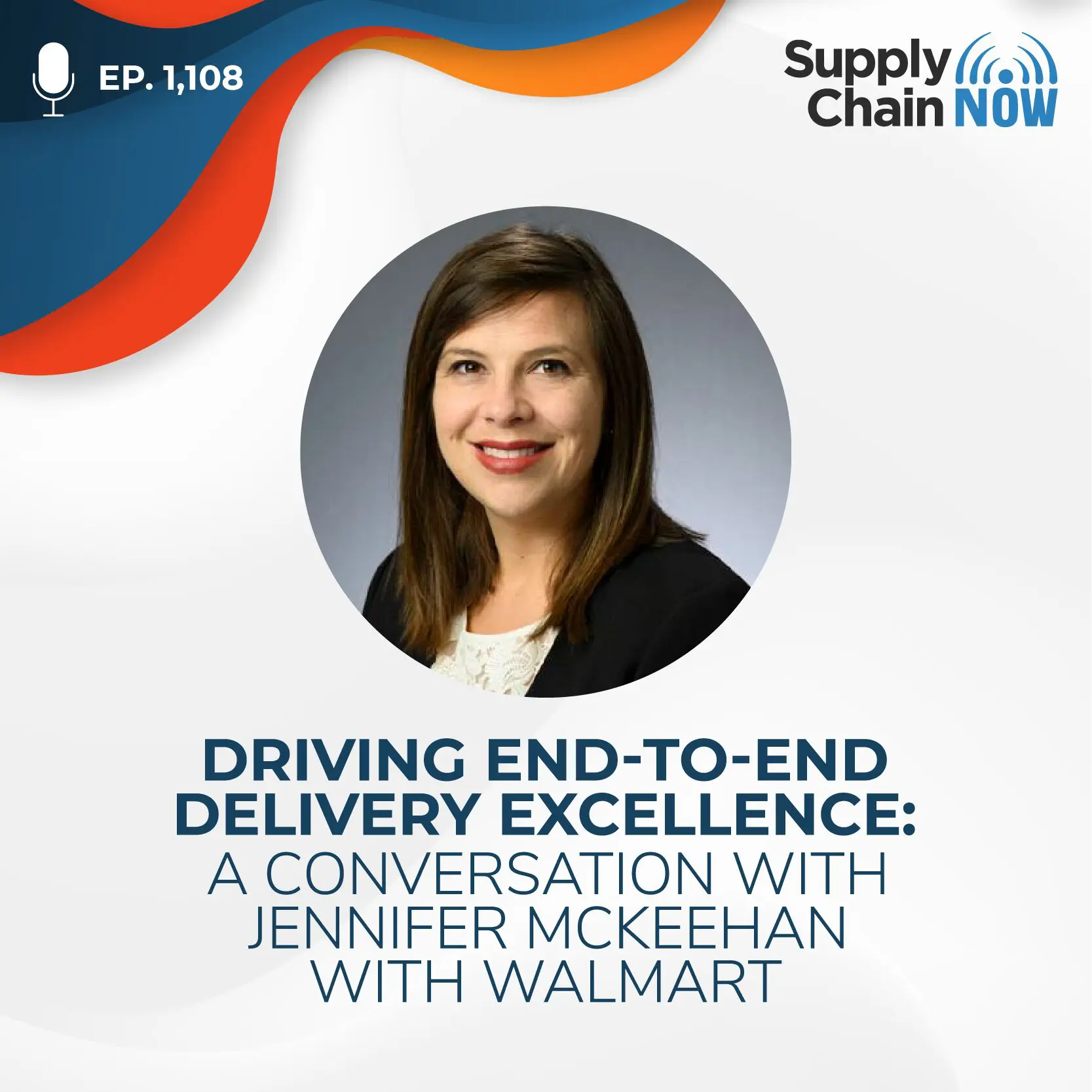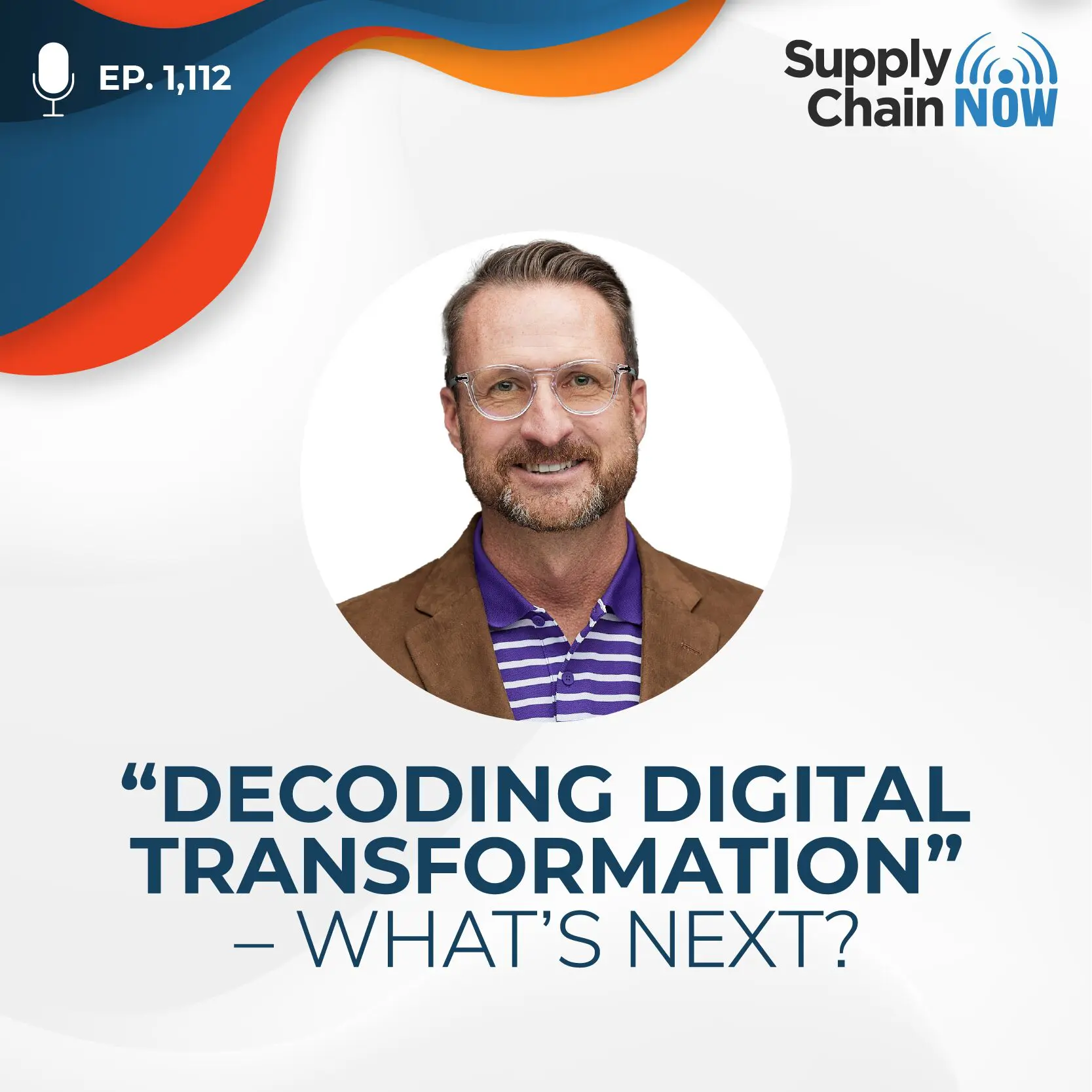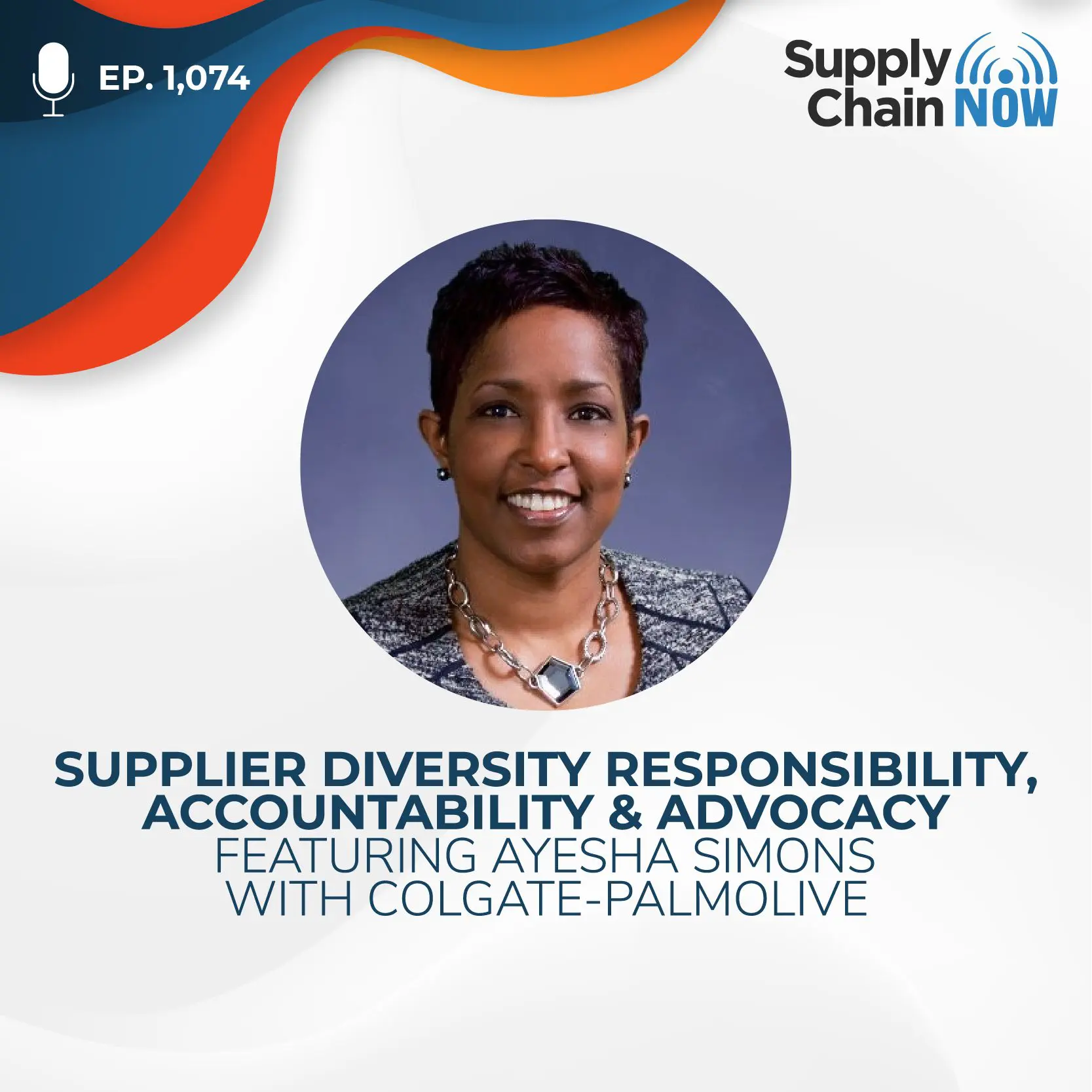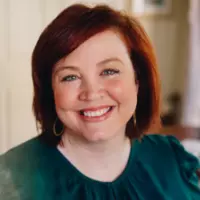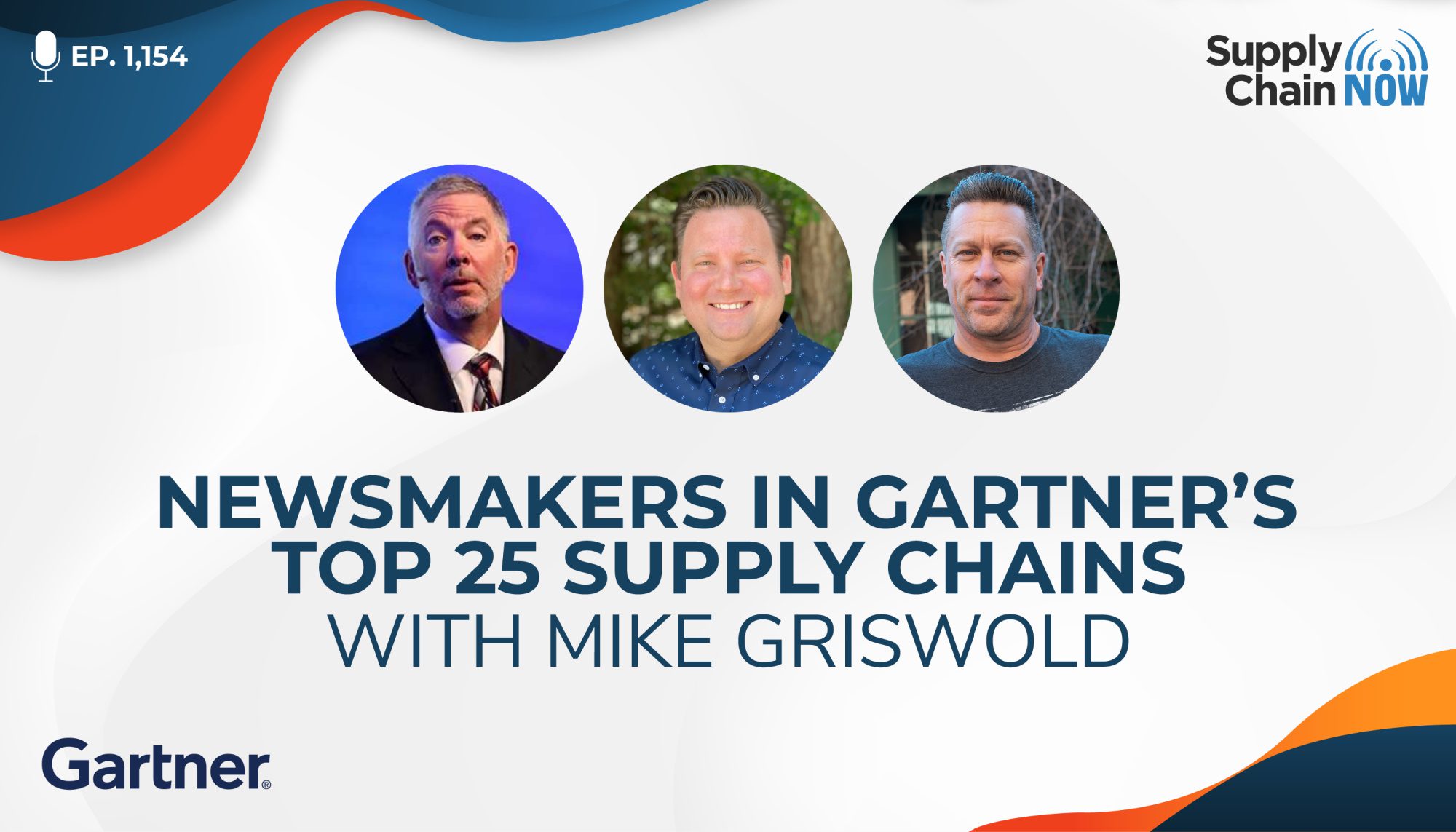
One of the trends from our Supply Chain Top 25 research is this evolution towards the ability to not only make real-time decisions, but also how to turn those decisions into real-time execution using data and analytics.
- Mike Griswold, Vice President of Research, Gartner
Episode Summary
Gartner’s Top 25 Supply Chain ranking was started 19 years ago to celebrate the best supply chains in the world and to raise awareness about the impact a well-run supply chain can have on the overall health and competitiveness of a business. Those companies make news all year long based on their leading practices.
Mike Griswold is the Vice President of Research at Gartner, specializing in retail with a particular focus on forecasting and replenishment. He is responsible for Gartner’s annual Top 25 Supply Chain ranking and joins Supply Chain Now on a monthly basis to discuss the latest in retail supply chains from an analyst’s perspective.
In this episode, Mike discusses recent news stories featuring companies from this year’s top 25 supply chains ranking with co-hosts Scott Luton and Greg White:
• How Schneider Electric is supporting its current suppliers by investing in better relationships, contracts, and communication while also doubling down on sourcing
• Steps being taken by McDonald’s in France to reduce waste in their supply chain in real time with the help of RFID technology
• How Colgate-Palmolive is leading the way to a new age of supply chain analytics by investing in talent as well as technology
Episode Transcript
Intro/Outro (00:03):
Welcome to Supply Chain. Now the voice of global supply chain Supply chain now focuses on the best in the business for our worldwide audience, the people, the technologies, the best practices, and today’s critical issues, the challenges and opportunities. Stay tuned to hear from Those Making Global Business happen right here on supply chain now.
Scott Luton (00:32):
Hey, good morning, good afternoon, good evening, wherever you are, Scott Luton and Greg White with you here on Supply Chain. Now welcome to today’s live stream, Gregory, how you doing?
Greg White (00:42):
I’m doing very well, Scott. I’m very pleased to be here and I hope that you are also doing well and that everyone in the audience is also doing well. <laugh> well. Well, well,
Scott Luton (00:53):
What a grand warm welcoming from Greg White here
Greg White (00:58):
Today. I tried Robotic. I could not do it. Sorry, <laugh>.
Scott Luton (01:02):
Well, great to have you. This is one of our favorite shows each month. Mm-hmm. <affirmative> going on probably, what, three years now on today’s show. Greg, as you know, we are continuing our popular series Supply Chain today and tomorrow with Mike Griswold, with Gartner, uh, and today, Greg, today we get to share a few developments across global supply chain and get Mike to weigh in with his take. Should be a pretty fun show. Right?
Greg White (01:28):
I love that. I mean, he is talking, you know, we talk to a lot of the leaders in supply chain, but Mike gets paid to do it, so <laugh>, that’s great. He does it a lot. Uh, so yeah, I’m always looking forward to his perspective on these things.
Scott Luton (01:46):
I am too. I am too. So, before we get started, uh, as our audience has come to expect, uh, Mike’s gonna be joining us in just a second, but I do wanna share a couple of resources with everybody out there. You know, everybody’s fighting a good fight to advance their careers, to solve problems, to break through, to, to drive organizational performance, right, Greg? And
Greg White (02:07):
Yes, Scott. That’s exactly what they’re doing. <laugh>. That’s
Scott Luton (02:10):
Right. Every day. Hey, so check out. With that said, this is our weekly, uh, newsletter that we send out via LinkedIn and to your email inbox for that matter. And this past weekend, Greg, we focused on the deal that could not be refused the deal between u p s and teams Here. We got a couple of perspectives from across industry. Greg, I don’t, I’m not sure if you’ve weighed in yet, and if you can do so in, I don’t know, a minute or less, what would be your take on the U p S and Teamsters deal?
Greg White (02:39):
Well, Scott, I’d love to say, I hate to say I told you so, but I don’t hate to say I told you so. I told you so, <laugh>.
Scott Luton (02:47):
Well, folks, uh,
Greg White (02:48):
The most important thing about this news, Scott, is not that jobs were saved or that catastrophic supply chain disruption was averted. It is that we were right <laugh>, that the Teamsters caved like a cheap suit. Mm-hmm. Um, and Ryan, uh, it’s not Ryan O’Neill, whatever his name is, Sean O’Neill is as usual full of bluster. Mm-hmm. An empty suit. So <laugh>,
Scott Luton (03:16):
So folks for always keeping it real perspective and p o v like that, check out. With that said, uh, and dive in. And then folks, make sure you let us know your take on the deal. You can put that in the comments of the newsletter. We’d welcome that. Speaking of Freight, Greg, tomorrow we have got an outstanding live stream backed by Property Demand. Bobby Holland with US Bank, we’ve got Heather Hilt. Yeah. Ford. And we’re gonna dive into the Q two Freight payment index. Uh, that’s always put out reliably and on time. Our friends at US Bank. Your favorite part about this.
Greg White (03:50):
Yep. Yeah. <laugh>, all of that
Scott Luton (03:53):
On time in full. You’re your, what’s your favorite part about these, these quarterly conversations? Greg?
Greg White (03:58):
Trying to get Bobby to say something funny. No, I mean, my favorite part of it is, you know, using it right? To try and identify the trends that we’re seeing because so often they’re unpredictable. Mm. And the shift in the marketplace has been dramatic. And then what to do with that knowledge that, that figuring out of what to do with that knowledge. Uh, you know, every time we have a practitioner on who shares what they do with the Freight payment index, it’s fascinating to watch their take on it and how that impacts their business or their decision making is, you know, it’s critical for all of our viewers and listeners. Yep. Uh, so they know what to do with it. So subscribe to that thing.
Scott Luton (04:42):
That’s right. Check that out. Uh, we’ve dropped links to both of those resources in the chat. One click away from leaning into that. And hey, the, the, uh, US Bank Freight Payment Index, it is free to get those, uh, those insights. Um, and it’s worth a read. Uh, and one other thing Greg’s saying that, um, that I wanna, uh, spike the football is the way we structure that show, Greg, as you know, we bring Bobby and we millions and millions of data points they decide and we marry that perspective with an executive practitioner with boots on the ground out in the domestic freight market. So it’s really an interesting conversation between the data side and the practitioner side. So y’all join us for that live conversation tomorrow. Okay. Greg, we have got, uh, John Peterson back in the house, Anthony from Nigeria via LinkedIn in the house. Welcome everybody. We want to hear you throughout the conversation ’cause we’ve got a special conversation teed up today. So, Greg, with no further ado, I’m gonna welcome in. Our dear friend Mike Griswold, vice President Analyst with Gartner. Hey. Hey, Mike. How you doing today?
Mike Griswold (05:44):
Hey, I’m doing well. Well, well, well, well, I guess <laugh> if I follow up, Greg. Yeah, it’s interesting, Greg, you’re, you know, if, I don’t know that I’d be poking the teamsters, I mean, we still haven’t found Jimmy, Jimmy Hoffa. Mm. Yeah. And so if you disappear, we’ll know where to look.
Greg White (06:00):
Yeah, no kidding. To
Mike Griswold (06:01):
Look at. And you might want someone to start your car for you for the next few days,
Greg White (06:04):
<laugh>. Yeah. Just in case. Well, I, I always keep mine in the garage. I never park on the street, so, okay.
Mike Griswold (06:10):
There you go. There you go.
Greg White (06:11):
I got people, I got people. So, good
Scott Luton (06:14):
For you. Well, Mike, that is, that is a great piece of advice already. Just, it’s
Greg White (06:19):
Not bad advice. That’s no joke.
Scott Luton (06:20):
We just had you here. Alright, well, hey, uh, as always, Mike, we really enjoy, and more importantly, our audience really enjoys your monthly appearances here and you always, uh, dropping truckloads of knowledge on us. And so today we took a little, actually, we took an approach very similar to when you joined us on the buzz, uh, a few weeks back. ’cause that was so well received. And what we did is, uh, I kind of took this year’s recently released, uh, probably a couple months ago, the Gartner Supply Chain Top 25. Right. For 2023. And I found a couple of recent developments this year of the things they’re doing in supply chain. And what we thought we would do is, uh, wow, isn’t that pretty cool?
Greg White (07:00):
That’s cool research. Yeah.
Scott Luton (07:02):
Uh, we try, we try. So what we thought we would do is I’m gonna kind of share these news stories one by one, and then we’re gonna get Greg and Mike both to comment and give us their take on what folks should take away from those developments. How’s that sound? Sounds
Mike Griswold (07:16):
Like a plan.
Scott Luton (07:17):
Alright. Good, good, good. So, but before we get there, Greg and Mike, yes. You know where we gotta start? We gotta start with this fun warmup question. So Mike, you get a kick out of these. It’s, it’s National Wellness Month, so we gotta eat, eat healthy, I guess. Um, in Greece, Constantine, if you’re listening in Greece today, it’s the August Moon Festival. That’s cool. Okay. It’s Emancipation Day in, uh, Guiana. So much to celebrate and that’s just the tip of iceberg. But this form, this fun warmup question is for my dearly beloved son Ben, who loves his superheroes and his comic books because it’s also Spider-Man Day. Okay. And Spider-Man’s one of his favorites. I couldn’t find his, uh, he’s got a very imposing picture I took of him years ago where he had Spider-Man Halloween costume on. It’s one of my favorites. I gotta go back and find it, but I’m gonna use that as a backdrop to get you, Mike and Greg, what’s your favorite all time superhero or superhero film? So, Mike, let’s start there.
Mike Griswold (08:16):
Yeah, I’m, I’ll stick with Spider-Man. So I have, um, somewhere, I think it’s in my garage. I have a pretty extensive comic book collection pretty much focused on, on Spider-Man. And, and I can go back to the, my two favorite editions, spider-Man 1 21 and 1 22. Spoiler alert, the Death of Gwen Stacey, for those of you that watch the movies, that got it all wrong. Gwen Stacey is the first girlfriend, not Mary Jane Parker. So yeah, spider-Man, hands down. I can, I can talk Spider-Man fairly in depth if people wanna have a Spider-Man conversation,
Scott Luton (08:52):
Man. Now, Greg. Yeah. You know, we, we’ve known Mike for quite some time, especially you. I, I’m not sure if we’ve ever talked superheroes in comic books with Mike, so I’m learning a little bit something new here.
Greg White (09:02):
I had no idea, but I am super impressed. And can I just ask Mike, how many, how many Spider-Man comics are there? How far back is 1 21 and 1 22?
Mike Griswold (09:15):
Well, not to be facetious, it obviously started at one <laugh>, so, um, yeah,
Greg White (09:21):
<crosstalk>, what, like, what year would that have been?
Mike Griswold (09:24):
Oh my gosh. That’s a, so that’s a, a really good question, Greg. I’m going to guess I started collecting when I was probably 15 or 16 years old. So let’s just, for round numbers say like 40 years. Wow. I’m being gen, I’m being generous to myself 40 years ago, let’s say.
Greg White (09:42):
Yeah. Wow. Yeah.
Scott Luton (09:43):
Yeah. So, all right. So, uh, and we’ll see if we can’t get a good date from, uh, Catherine and Amanda, thanks to you both for what you do to help us with production, Greg. So, spider-Man, Mike’s drop the GLA Air, how about you?
Greg White (09:56):
I don’t know anything about comics, <laugh>, but I would have to say unquestionably my favorite superhero, if that’s what you want to call him, is Iron Man, because he’s a billionaire tech guy, super cool, smart Alec in the opening scene of his movie, he’s drinking Jack Daniels out of a glass in a Humvee <laugh> in Afghanistan or something like that.
Mike Griswold (10:17):
So, yes.
Scott Luton (10:18):
Oh, iron Man, Luke
Mike Griswold (10:20):
Holy Yes. <laugh>,
Scott Luton (10:22):
Yes. Iron Man, Greg White, interchangeable, perhaps. We’ll se we’ll see. All right. And just to add on, I’m a big Superman, Superman fan. Me and Ben regularly argue about Superman versus Batman. He’s a big Batman fan. So,
Greg White (10:35):
So doesn’t Superman go way, way back, like
Mike Griswold (10:38):
Yes.
Greg White (10:39):
The early nine, early 20th
Scott Luton (10:42):
Or something like that? Yeah, yeah. All right. So we’re getting some research in here. Uh, looks like Spider-Man debuted, if I’m reading this right, in August, 1962. And Superman looks like debuted in 1938, if I’ve got that right. So a little bit, a few factoids there for any of our, uh, fellow superhero, uh, fans out there in, uh, our listing audience. Uh,
Greg White (11:04):
The Smarts, how many, how many issues are in a year? Or, or does it vary? I mean, are they,
Scott Luton (11:10):
I don’t know. I don’t, I know nothing about comic books and just a little bit about superheroes. So whatever Ben trains me, because as my mom, Leah Lutin is back with us, whatever Ben loves, I love, she says, ’cause he knows them best, and he does. He’s my paid consultant for all things comic books, <laugh> and superheroes. Um, alright, so moving right along. And Richard, hey, great to have you here today via LinkedIn. We’ll, we may comment work in the yellow freight, uh, situation later in today’s show. That’s not one of the the stories we were gonna lead with, but we’ll see if we can’t get some, uh, some comments there. As it continues to unfold, uh, you know, 30,000 folks losing their jobs, uh, as, um, it’s, they’ve shut down operations and are close to, uh, declaring bankruptcy. It’s a terrible situation there. But great to have you here with us, Richard.
Scott Luton (11:55):
Um, okay, so Greg and Mike, the first story I’m gonna, uh, I wanna start with today as we get into the supply chain that’s going on with folks in the sup, the Gartner Supply Chain, top 25 for 2023. Schneider Electric, by the way, came in number one, Mike and Greg for 2023. So I wanna talk about what Schneider Electric is doing when it comes to supporting its suppliers. Now, this was reported by Chief Executive. So to level set a little bit, Schneider Electric is a French company that makes industrial electrical equipment. It has 128,000 employees, 200 sites globally, and some 20,000 suppliers. So Kenneth, it’s either Engle or Ingel, probably Engle, I would imagine. Kenneth Engle is a senior VP of Global Supply Chain at Schneider, and he said that in the post covid era, suppliers just couldn’t scale like they needed them to scale in order to pursue all the wealth of growth opportunities that were in the market. Snow. So, Schneider try to say that seven times fast, right?
Greg White (12:57):
Mm-hmm. <affirmative>. So Schneider’s,
Scott Luton (12:59):
<laugh>. So Schneider built a team of about a hundred team members to essentially analyze its supply base, determined critical components and key suppliers. And then they went to work driving, uh, looking to drive better relationships, better contracts, better support, communication, you name it, with current suppliers, while also multiplying its sourcing efforts. So now that we’ve kind of, in a nutshell mm-hmm. <affirmative>, that’s what the story’s about. Mike, I want you to weigh in on what Schneider’s Electric is doing with their supply base and, and what sticks out to you.
Mike Griswold (13:32):
Yeah, I think there’s, uh, very, very well summarized there around that. ’cause it’s a, it’s a pretty kind of very meaty article in terms of what, what Schneider’s doing. I, I would sum it up maybe in with two observations. The first is around, and thanks for referencing the, the supply chain top 25 for our time together today. One of the observations is one of our macro trends. We talked about this idea of ecosystems and recognizing that organizations need to think more broadly around the people within their ecosystem, including their suppliers. Hmm. And starting to recognize the value in building relationships and not thinking about things just as, you know, what’s my next transaction? Mm-hmm. If you think about the, the, my second observation is, is really if you read the article, what Schneider is doing is what is, what we would encourage everyone to think about is this idea of supplier segmentation.
Mike Griswold (14:35):
Really understanding how you want to interact with your suppliers and recognize that not every supplier is gonna be that strategic supplier. You are gonna have transactional suppliers, and it’s important that you still treat those transactional suppliers in a way that I is respectful and helpful for them to grow their business. One of the things that happened during the pandemic is people quickly realized that their whole production could hinge on one component made by a very small supplier. And I think it’s that segmentation and understanding, and if you read the article, it talks about Schneider Electric looking at their bill of materials and understanding who are the critical suppliers to deliver critical components. Mm-hmm. <affirmative>, it’s those types of exercises that I think companies need to go through to really understand their supply base. And, and what we’re seeing in leading companies is it’s more than just spend mm-hmm.
Mike Griswold (15:42):
<affirmative>, it’s around importance to our bill of materials. And what we’re finding is, if you were looking at it, maybe just from a spend perspective, you could classify a supplier as someone that, that maybe is transactional, but if you look at the importance of the component, they actually need to become, even though you may not spend a lot with them, they need to be become a strategic partner. So this idea of partnership in the true sense of the word, if you read further, further down the, the note Schneider is like, Hey, if, if our suppliers are are willing to commit, we’re willing to commit and invest in them. It’s those types of relationships that I think are really important and why Schneider continues to have the success that they have.
Scott Luton (16:25):
Hmm. Well said. Mike. Uh, Greg, I’m looking forward to your perspective on this opening, uh, story here.
Greg White (16:31):
Yeah. This is, uh, why Schneider’s one of the best supply chains in the entire world, and why they will continue to outstrip the competition because they are, they are at a point where their competitors are years behind and many, many years behind, and they continue to innovate, not rest on their laurels. So they will always be ahead. Right. They’re thinking of things that other companies can’t even get to yet. And this is a great example of that, and I love the recognition that the success of your organization can come from outside your four walls, from your smallest suppliers. Right. To quote somebody in one of the brilliant many in our, in our usual audience, when Ford could not ship F one fifties because they didn’t have the blue oval, the question and answer session was held by a single person who said, how many parts does it take to build an F one 50? And the answer is, all of them <laugh>.
Greg White (17:33):
So Schneider recognizing that and, and recognizing that both they need to support and enable and communicate more effectively with their suppliers. And this is code words for find new suppliers. Multiplying its sourcing efforts means probably Right. Finding new suppliers as alternative sources for these difficult or difficult to source, or in unreliably produced items, which means finding new source or being, becoming their own source, creating those, uh, components or parts for themselves. Yes. Um, which is not uncommon and is genius, you know, uh, it’s, uh, it’s good that some of these companies are coming around to this as retailers, Mike, I mean, this feels like deja vu all over again. Right? Right. But this is news to industrial and to manufacturing companies because again, the world has changed. There is no place to hide. You can’t blame it on your end distributor, retailer, or even customer. And these manufacturing companies have had to modernize and increase the effectiveness of their supply chain, lest they also suffer the brand damage that retailers have traditionally borne the brunt of when products run outta stock. Right? Mm-hmm. <affirmative>. So, um, it’s good that they’re coming around to this. Again, I will encourage companies that want to be like Schneider to Schneider. Not, not to just look at Schneider, but also to look into retail where these kind of practices have been in play for literally decades. Yes.
Mike Griswold (19:10):
Yeah. I, I think, you know, we’re, we’re gonna talk about McDonald’s and we’re gonna talk about Colgate, and there’s going to be certainly two kind of technology themes in both of those. If you read this article about Schneider, there, there’s little to no mention of technology. Mm-hmm. This is around people, this is around a mindset. Mm-hmm. And this is around process. Yes. So, to, to Greg’s point, which was a really good one. Right. Oftentimes, kind of regardless of industry, we wanna jump to some type of technology to help us do this mm-hmm. <affirmative>. And yes, underneath all that Schneider is doing, there is some technological underpinnings. But if you, if you get at the heart of that, of that article, it’s about the mindset of their supply chain leaders. It’s about this idea that we have to have partnerships, that we have to have mutually beneficial relationships, that we’re gonna invest in people that are investing themselves. None of that has anything to do with technology. Yep.
Scott Luton (20:07):
Yeah. Uh, I wanna add two comments there. Uh, uh, and echo, you know, Greg, you said it’s like deja vu. You know, these aren’t new groundbreaking ideas. You know, when I was in manufacturing, Honda would send reps in to help us try to figure out, uh, issues in our operation. Ingersoll Rand was really good about that. The difference is you’ve got companies like Schneider Electric that are willing to invest all those things that Mikey just shared. ’cause it isn’t, you’re right. The only technology I saw mentioned was this portal. Everything else was about relationships, peeling layers of onion back, really getting to know mm-hmm. <affirmative> your critical suppliers, and then getting to know their operations and what’s holding them back. The difference, as Greg mentioned, is you got companies willing to make that investment, and you got other companies that treat a lot of their relationships with their suppliers, highly transactional.
Scott Luton (20:56):
And those are the companies, as Greg suggested, Mike, you’re implying too, that won’t hit the top of the Gartner top 25 rankings, and more importantly, won’t have the success that clearly Schneider Electric, uh, is reaching. So, alright, Mike, Greg, man, y’all keep bringing it, man. You are welcome. Truckload of good stuff. Thank you. Thank you very much. <laugh>. This is an enlightening conversation already. And folks, hey, we want to hear from you. Let us know as you read through these stories, or as you hear Greg and Mike’s take on this stuff, let us know what you’re, what you’re thinking. We’d love to, to hear your, uh, perspective and expertise as well. Okay. Is everybody ready to get hungry? Look at these delicious, delicious <laugh> delicious french fries here. See, I can’t even talk when I see these, uh, these french fries. So moving right along to the maker of the most delicious french fries in the known universe, McDonald’s, which is number 20 in the Gartner Top 25 supply chain.
Scott Luton (21:48):
Our incredibly knowledgeable audience may know that France passed legislation that went into law in January of this year that prohibited fast food chains amongst other things, uh, from using throwaway boxes or, or single use plasticware. Hmm. According to our friends at chain store age, McDonald’s has partnered with a company known as Checkpoint to implement a project in more than 1200 McDonald’s restaurants in France. Thus far. It’s aim it’s pretty simple to help McDonald’s reduce waste by leveraging R F I D to provide real time visibility of its reusable tableware and container stock optimize replenishment, reduce shrink. Because you know, a lot of folks, I know y’all may have done this too, you, you throw my kids, throw away more of our silverware in our trash can than anyone on this planet. Well, so this R F I D will help help eliminate that shrink by customers putting in reusable stuff into the trash bin, so on and so forth. So, not talking about the french fries, and as I mentioned Greg and Mike in the pre-show, this is very intuitive. You know, this is very intuitive at, you know, McDonald’s working with the new wrinkles and, and the ecosystem there in, in France. But gimme your take. Why is this important and what’s cool about this to you, Mike?
Mike Griswold (23:03):
Well, I think with a lot of, of the, the efforts that are happening around sustainability, I, I think North American companies in particular need to keep an eye on what’s happening in Europe. Uh, that those tend to be early indicators, whether it’s legislation like France passed, whether it’s things around different plastics and all kinds of things like that. Europe is, I don’t, I don’t have a necessarily, uh, ahead, I’ll say Europe tends to do these things first. So we in North America, I think do need to keep an eye on some of those things and ask ourselves the question, if something like this were to, to make its way across the pond to, to hear how, how would we, as as supply chain start to deal with that? Mm-hmm. <affirmative>, when I read this article, I was thinking, and I know several months ago we did, uh, we did an episode together around movies.
Mike Griswold (23:58):
But I was thinking of, of World War Z and the fact that Israel had put together this group of people whose only mission was to think outside the box on all different types of things that could happen. And they said, well, what if there was a zombie apocalypse? Maybe we need a wall around our cities <laugh>. So if you, if you watch the movie, they actually had a wall around the city. So, not that I’m asking us to think about the zombie apocalypse, but, and, and try and for anyone out there, I’m not equating, you know, banning single use things with the zombie apocalypse <laugh>. Please don’t say that. All I’m saying is we need to be thinking, have the ability to think differently around some of these things that we may be faced with. I’ve always felt, particularly in retail, R F I D was one of those things early in its lifecycle where it was a problem running around trying to find a solution.
Mike Griswold (24:49):
We really struggled to identify use cases. To me, th this is a perfect match of a use case and a technology. I think they, they, if you read through through the article, they’ve made significant technological advances in R F I D so things can now be washed. They obviously, if it’s, if it’s a, a reusable french fry holder, it needs to be cleaned, right? Usually at a high temperature, there’s gonna be some liquid involved, I would think. ’cause yeah, I don’t know that we’re gonna, you know, use radiation to clean these things, <laugh>. So I just think this is a great example of someone saying, Hey, we’ve got this ability to track stuff with R F I D, we’ve now got this legislation, you know, let’s, let’s marry these two ideas. McDonald’s does a great job of doing things. I mean, we, we think of, of, of McDonald’s as kind of a, a centralized entity. But in fact they’re like, you know, 20,000 independent owner operators, right. Run kind of at a, at a geographical level. And they’re really good at taking these things, say in France and figuring out how can we scale this to other geographies. So to me, fascinating article and I think a, a great marrying of technology with a use case.
Scott Luton (26:05):
Well said, Mike and Greg and, and who knows, hey, we might be around the corner where we’re cleaning stuff, the radiation instead of water given, uh, supply and demand. But Greg, your takeaway from this article here.
Greg White (26:15):
Yeah, well, I, I’ve seen it firsthand because they’re doing the same thing in Switzerland, and I think it’s really fascinating what you can use paper for, which can be recycled and reused relatively easily rather than plastic. First of all, I was racking my brain thinking, when do you ever use utensils at McDonald’s? <laugh>? But breakfast of course, right? If you get, if you get the hotcakes and sausage or whatever else they serve on a plate, I suppose you do do that. And also, uh, the use of utensils is far more ubiquitous in, in Europe than it is in the states. They don’t eat with their hands like we do. I have seen some German cats disassemble barbecued ribs with a fork in knife like you would not believe, and they didn’t even get their fingers dirty. Wow. Um, so I mean, it’s, it’s a real thing.
Greg White (27:06):
And I think, you know, if we can use anything but plastics please anything but plastics, I follow, uh, the great ocean cleanup. This enormous bunch of ocean going and river going vehicles, um, that are trying to capture all of the plastics. Now, admittedly, something like 90% of the plastics are just dumped in the ocean by the waste companies of third world enterprise or of third world countries. But, you know, this eliminates that for some of the va most vast populations of, and most dense populations of the world. And I, I think it’s a great thing. And finally, yes, Mike, finally, yes. R F I D is both, um, ubiquitous enough and now cost effective enough because it’s past its peak right of, of r and d. You can just, it’s basically like a postage stamp you can put on just in, in bed or put on just about anything. Mm. I have not seen the result of, of the, you know, of the non reusable containers I have for like, plates and forks and knives and spoons. Mm-hmm. And it’s really interesting. And you’re right, a ton of it just goes right in the garbage. Mm-hmm. So I don’t know how you scan it or dig it out. <laugh>, I can’t imagine, can’t even begin to imagine how you would do that. But
Scott Luton (28:31):
Robots come out with laser eyes, <laugh>, and they threaten those folks that threw ’em away. But continuing a little joke here, uh, Greg and Mike and Greg, that a great comment about R F I D and, and kind of where that technology is, hopefully what’s right around the corner. I say hopefully with a tongue firmly planted in my cheek, we’ll put RFIDs on burgers and fries. So robots will keep me on a diet and once, once it detects a burger being brought a robot. But, you know, but, uh, <laugh> comes in and, and prevents me from breaking my diet. We’ll see, technology is interesting.
Greg White (29:06):
So McDonald’s is helping you. Yes. So as it turns out, I had to grab a burger really fast yesterday. Okay. And the McDonald’s hamburger, which was formerly 1.6 ounces of meat, is now yet smaller than that inclusive of the Bun <laugh>. Um, I mean, it, it was so noticeably smaller Mm. That I saw. I, I could see it instantaneously. I, no question, I haven’t looked up how much smaller, but I imagine it’s probably a couple, few tenths of an ounce or something like that. Smaller.
Scott Luton (29:37):
That’s a shame. That’s a shame. And, and Mike, I’m not sure I’m, I’m just kind of kidding. We don’t eat too much fast food here, but one of my favorite things, Greg, you, since you brought it up, is these sliders, some Arby’s, right? Ooh, they used to be, uh, oh man. They, it’s the, it’s the best thing. And the bun was really good and, and cheese and meat and stuff. And I, I got my bent, my son Ben, hooked on these things. And to your point, Greg, I popped in for the first time probably in three months to get a few, me and Ben did. And they changed the recipe and changed the formula and gotten ’em smaller and used a different, some different ingredients. So, hey, whatever helps you through these inflationary times, I guess. All right. So Greg and Mike, we’re moving right along.
Scott Luton (30:20):
This is gonna be this last story, and we’re gonna get, we’re gonna go work our way through one more story, and then we’re gonna get, y’all gotta stick around. We’re gonna get a eureka moment from Mike mm-hmm. <affirmative> from some of the conversations between the conversation. So that is always gold and golden stuff, uh, from Mike Griswold. So this next door, though, is pretty cool because, you know, supply chain analytics is, is growing by the hour, by the day, you name it. So, consumer goods technology here reports on efforts over at Colgate Palm Olive to advance into a new golden age of supply chain analytics amongst their initiatives, the companies working to democratize. I said that right, Greg? I always struggle with that word. Nice. Well done. Democratize an analytics across the enterprise. And here’s some of what they’re doing at a high level. One, making major investments into areas such as supply chain analytics, engineers, and that talent base there.
Scott Luton (31:12):
That’s quite a word. Um, creating an analytics engagement lead role to serve as a coach to the worldwide team, focused on educating, socializing, and facilitating analytics. Create a virtual team of handpicked the best of the best handpicked data analysts. 40 of them. Can you imagine what you can do with 40 incredibly, uh, high performing data analysts to spend 20% of their time to support this analytics movement? And, uh, that, wait, there’s more upskilling and training their entire team from the chief supply chain officer all the way to the front line, everywhere in between, uh, own supply chain analytics. Not just where we’ve been, but where we want to go. And what one final thing, what’s next? You might ask. Well, the company is making investments into better quote, decision intelligence in quote. So Greg, I’m gonna start with you this time. When you hear about these things that Colgate Palm Olive is doing, especially in changing the game with supply chain analytics, what stands out to you?
Greg White (32:15):
So I didn’t get to this article, but I do hope, and Mike, you can probably tell me that decision intelligence means not just intelligence from which humans make decision mm-hmm. <affirmative>, but intelligence, which informs technology to make those decisions that can, and in many cases should be made by technology. Scott, uh, um, <laugh> visibility is not enough. Analytics is not enough. Mm. That’s old school, right? Analytics is a new word for business intelligence. And business intelligence was a new word for reporting, and reporting is an old word, <laugh>. Um, and
Scott Luton (32:56):
<laugh>.
Greg White (32:57):
And, uh, you know, it’s time for us rather than just presenting the conditions, the, you know, the how have we hurt the company lately, analytics to people and having them vetch over that all day, or try to figure out how to solve a problem that occurred yesterday or week or a month ago. But instead to be more, one more preemptive and two more prescriptive to either recommend the action based on the analytics and based on what technology can or people can impart in terms of knowledge around the business, or just simply make the decision within the technology and be done with it. Mm-hmm. <affirmative>. So I think we are going that way a lot more. And again, I applaud these brands and manufacturers for coming along into the 20th century, you know, and starting to capitalize on these things and to dig so much deeper 40 data analysts. I wonder how long it is till ai, I’m looking at my watch <laugh>, um, because I think it will be that fast replaces all 40 of them, or nearly all of them because the capability exists. E e except in very, very, very precise scenarios for technology to do that. Now also, Mike, I don’t know the depth of Colgate, Paul Olive’s analytics capabilities. They could be talking about things that are way ahead of where AI can contribute as
Scott Luton (34:30):
Well. Hey, one thing for Mike gives us his take the 21st century, right, Greg? The
Greg White (34:36):
21st? No, I meant 20th century
Scott Luton (34:37):
20. Uh,
Greg White (34:38):
No, I meant welcome to the 20th century.
Scott Luton (34:40):
Oh, okay. All right. I got you. Now that, that one went over my head. I got you now. All right. So Mike, give us your, they’re
Greg White (34:46):
In the 21st century. Yes. <laugh>, but they’re still,
Scott Luton (34:49):
You know, I’m a little slow sometimes throwing <laugh>, by the way. Colgate Pala ranks number three on the top 25. Mike, give us your take.
Mike Griswold (34:57):
Yeah, I, I agree with, with everything Greg said. I mean, I, I think there’s, you know, when you think about kind of what, where Colgate is, they’re definitely one of those companies that has, you know, a very sharp eye on, on that intersection between people and technology, particularly around AI and machine learning. So that, that’s top of mind for them in terms of how do we harness that. I, I think when I look at, you know, one of the trends from our supply chain, top 25 research is this evolution towards the ability to not only make real-time decisions, kind of to your point, Greg, but also now how do we turn those decisions into real-time execution and using data and analytics and insights as well as technology to enable us to do, uh, and have more realtime execution. I think the second element in the story that really caught my attention is just how far down they’re pushing this analytics capability down into the organization.
Mike Griswold (36:02):
If you think about early in the journey around business intelligence, it seemed to be kind of held with a few people that were perceived to be really smart. Doesn’t mean they weren’t smart, but that was kind of the general perception, right? Right. There’s a handful of people that know how to do this. If you have a question come to us, we’ll put you in the queue and we’ll answer it when we can get to it. Right now, it’s, it’s, you know, you, you said it very well, Scott, now it’s getting pushed down to the masses where you’ve got, you know, people maybe even, let’s say, a demand planning level with the ability to run their own set of business intelligence to understand, you know, what do they maybe need to tweak around the demand signal. So yeah, I think we’re, we’re really pushing this capability down.
Mike Griswold (36:52):
We’re finding the skill embedded deeper in the organization. But to me, and where I think people are still gonna need to play a key role is, what’s the question that you want answered? Or what are the questions that you want answered? What are you trying to understand that you’re gonna apply, whether it’s AI or machine learning, or these 40 data scientists, right? What are you trying to understand about your business? What are you trying to respond to? Are you trying to create more resiliency mm-hmm. <affirmative>, those types of things. We, we, as people still need to provide guidance around, uh, I don’t know that that we’ll ever get to a point where people are, are gonna be out of the loop in terms of asking the questions. We may be outta the loop in terms of answering the question. Mm-hmm. Oh, question. But I think, I think we still, it’s still fundamentally, and, and I think one of the things that’s puts Colgate at the top of the list to your earlier observation, Greg, is they’re always asking kind of that next question. Yeah. Right. They’re pushing the envelope on, on what should we know? What can we know? And now what you read in the article is, how do we use all this technology to help us answer that? Hmm.
Greg White (38:08):
I think we’ll always have the situation where either because the data doesn’t inform enough, we’ll need human discernment Yeah. To do that. Or, or, because as you said, the question has never been asked before. Right. We still need to determine what the answer ought to be under certain conditions, but yeah, you’re right. More and more as we use humans to inform ai, then, you know, I think the benefit of AI is once we’ve informed it and it’s making the, the right decision per a human’s, you know, input, it will never forget, it will never make the decision emotionally, it will make it based on, you know, the, the, uh, influencing factors in the conditions surrounding. Hmm. So that’s the real benefit of it. And I think we have to recognize too, that AI is not our overlord yet.
Mike Griswold (39:05):
Right.
Greg White (39:06):
It is a child that still needs to be taught, as you’re talking about Mike, by humans, to have enough knowledge to be able to make those decisions. But it does learn 24 hours a day, seven days a week mm-hmm. <affirmative> so it learns even faster than your kids. Now think about that <laugh>,
Mike Griswold (39:24):
What, what, when I woke up this morning, Scott, I never envisioned I would have two World War Z references in our conversations today, <laugh>. But, but Greg, to your point, right, if, I mean, AI would never have told us to build a wall around our cities to protect us from the zombie apocalypse. Right? Right. It took people in a room kind of just coming up with different scenarios and how will we respond to them. So I, I think I agree with you completely. We, we are gonna continue to have a role in this, if for nothing else, to continue to inform the tools around the, around the validity of the decisions that they’re making for us.
Scott Luton (39:59):
Mm. Well, you keep bringing those World War Z uh, yeah,
Greg White (40:03):
Man,
Scott Luton (40:03):
Pearsons and thoughts.
Greg White (40:04):
I love that theme. Maybe we should have a movie theme and figure out how each of these discussions Mike apply, or how a movie applies to that, these discussions.
Scott Luton (40:16):
We will have that, uh, for sure. I wanna, uh, two quick points. Uh, Greg, you used the word discern. Discernment is one of our favorite words. It reminds me the way you said it, of, uh, the old eighties commercial where the guy’s walking up the stairs and they’re talking about how they earn money. And he’s, he goes, we make supply chain decisions the old fashioned way. <laugh>, we discern them a little play on that old, uh, eighties commercial. And then secondly, kidding, somewhat aside, mom, I know you’re here. I know you’re listening. Did you hear Mike Griswold said something I said was smart? Did you hear that Mom <laugh>? So, hey, right now,
Greg White (40:52):
It’s not. Your mom needs to hear it <laugh>. It’s your dad and your father-in-law.
Scott Luton (40:55):
That’s true. That is true. Hey, um, one last point about this. I’ll vouch for
Greg White (40:59):
You,
Scott Luton (41:00):
Greg. That’s how I pride how I praise too. Um, check out this graphic here, though. What this is, is from an old Colgate palm olive factory in Australia that has been repurposed as apartments and it still has the, uh, the company name on. I love repurposing these old buildings, rather because I got so much character rather than tearing ’em all down, I,
Mike Griswold (41:21):
I wonder if those apartments come with toothpaste, or do you, do you have life, apply your own,
Greg White (41:26):
You can make your own <laugh>. Yes,
Scott Luton (41:28):
That’s right. It’s, it’s still got supplies. Hang on, of course, your own
Greg White (41:32):
Toothpaste and your own dish soap <laugh>. Yeah. Just make it in your room.
Scott Luton (41:36):
Yeah, John adds here. I also think those that have held business intelligence close to the vest are concerned with the quality of information being shared too far down in organization. Not rational, but happens nonetheless. Good point, John. I, John,
Greg White (41:50):
What John has to say, man, make sure you keep showing up. Also, John, my wife, just let me know that she does not like Moxie Burger. So you and I are definitely, if I’m gonna keep going there, we’re gonna have to get together.
Scott Luton (42:03):
<laugh>. <laugh>. Awesome. Let’s do that. John. And I agree with you, Greg. He, he brings it, he brings it each and every show. Okay. So those are the, I appreciate y’all’s take Greg and Michael, and those three stories are so much more. But, uh, man to jam pack all that. And then these, this next question I wanna ask you, uh, all in an hour. Uh, that’s what I wanna do here. So Mike, uh, as Greg has, has mentioned, as we know, uh, for, for years now, you’re out there, you’re usually the smartest person in the room, perhaps, but you’re out there meeting with the smartest business leaders and organizations and supply chain teams, business teams really on that leading edge, that are doing, that are asking those questions like that World War Z. Hey, what if this happens? You know? So I want to ask, I wanna really dive into that for this, this, as we start to wrap. What is one eureka moment that you’ve gleaned from your conversations with business leaders over the last, uh, month or so, Mike?
Mike Griswold (42:54):
And this is going to be, you know, counterintuitive and it’ll be interesting to see the reactions of this kind of over time. There’s a piece of research that, that a person on my team is working on. It will culminate in a report, comes out in October, and, and we’ve, we’ve started to talk to some executives around this to really start to, to, to gauge how receptive are people to thinking about this idea differently. That’s the idea of turnover. So if we think about all the conversations that people are having now, it’s turnover is bad. How do I keep people from leaving? Retention has to be the number one priority, blah, blah, blah. What, what our research is telling us is we may need to start thinking about this a little bit differently and actually embracing turnover, because the fact of the matter is people are gonna leave mm-hmm.
Mike Griswold (43:42):
<affirmative>, despite your best efforts, people are gonna leave, and it may even be your best people. So things like, how do we shift our orientation from all this focus on things like onboarding to now this idea of offboarding, right? That it, that it may be isn’t bad if people wanna leave the organization. How do we think about enhancing things like boomerangs? Gartner is a great example of a company that embraces boomerangs, assuming you didn’t rob a bank on your way out. <laugh>, right? <laugh>, we do, we are a super welcoming back, um, organization because we know that people learn new experiences and they gain new skills in other places. So this idea of of of kind of embracing the fact that we’re gonna have turnover, how do you use that to your advantage in your organization? How do you use that to continue to cu cultivate?
Mike Griswold (44:39):
We talked with Schneider Electric about relationships. Just because someone leaves your organization doesn’t mean that relationship needs to end. Mm-hmm. And I think, you know, we, we, we at some point need to just accept that because of the pandemic, because of lots of other reasons, people are now feeling much more fluid in their careers and, and us trying to, to hold people in our organization that are, are ultimately probably gonna leave anyway. How do we, how do we start to embrace that? And, and that’s gonna be different. We are hearing it from executives. It’s like, how, how do I flip this on its head? So, you know, over the next couple of months, you know, this note will come out in, in October. It’s one of our big executive reports. Hmm. And it’ll be interesting to see how people, you know, react to that.
Scott Luton (45:29):
Greg, I’m, I’m looking forward to getting your take there on the notion, the central notion of Mike suggesting of embracing turnover. Your thoughts, Greg?
Greg White (45:37):
I think that’s a great revelation. I mean, we should just embrace it, frankly, to some extent. Enable it. Because you do get, if you have this boomerang culture where you welcome people back, you should ex allow them and encourage them to go get additional expertise and then come back to you. Right? I mean, maybe, maybe, uh, we should to some extent encourage it. I look, I think about this, have thought about this a lot. My father gets two pensions. I just discovered <laugh> one from a company that no longer exists, Sears, Roebuck and Company, uh, because he worked for Kmart. Mm. And one from Target. And that’s because in, you know, baby boomers and his, the silent generation, when they worked, they worked at a place for most of their career. Or, and you made me think about this Mike. Or they stormed out in a huff, or were thrown out on, right? Yes. On a kester, that’s a term that my great grandmother used to use. So
Scott Luton (46:42):
<laugh>, I was about to say that’s as old as reporting. Greg Kester. Yes. Kester, German,
Mike Griswold (46:47):
Catherine Will, Catherine will have to look that up.
Greg White (46:49):
<laugh>. Yeah. It’s German for hind end. I’ll just tell you that. Um, and it wasn’t as elegant or as annunciated as it is now. I mean, you know, now people say, I don’t wanna leave. I feel like I have to leave maybe because this is as far as I can go right now in this organization, or I’m not getting what I need from this organization right now. Or I don’t offer, I doubt anyone ever says this, but I don’t offer enough to this organization right now, and I need to go get career experience elsewhere. If you are at a mature enough stage where you can say that, then you will be welcome back. And also I think it shows a level of maturity to the, even to the company you’re leaving. So I, I think you do see a lot more of that friendly departure these days. Yeah. And for good reason. And it is, uh, by the way, well advised and strongly suggested to do, to leave things that way, <laugh>. Mm-hmm. Because you never know, just think about all the people that were ghosting during ghosting employers during the go-go days of, of employment run just after the pandemic. Right. A lot of those people have side hustles. Their side hustles became their front hustles. Hmm. Because people remember that.
Scott Luton (48:05):
Well said, AI
Greg White (48:06):
Remembers it even better than people <laugh>.
Scott Luton (48:08):
That’s right. AI misses nothing. All right. A lot of good stuff there, Greg. And Mike and Mike, you, you alluded in your response there to one of the next big things coming up at Gartner. What is that before we, we let you run?
Mike Griswold (48:21):
So there’s actually, so that executive report that I teed up that will come out in October, but there’s two events coming up for people. Greg certainly knows my, my appreciation for demand planning. So we launched this year, two planning summits, uh, end of October in London, uh, and in the end of November in Phoenix. This is for, this is, you know, a, a traditional Gartner event. So you get all the pump and circumstance of a Gartner event, but it’s much more specific. It is designed for people that do planning, people that, that run planning organizations, people that do planning as as their day job. So would encourage people to, to take a look at the Gartner website and, you know, just consider attending those. We, we launched our first planning summit in the fall of 2019 in Denver. We expected two 50, we got close to 600. Wow. And we were going to do more. Obviously the pandemic hit next <crosstalk>. Y’all
Scott Luton (49:19):
Got plan better, Mike.
Mike Griswold (49:20):
Yeah. Yes. <laugh>, yes. Kind of ironic that we, that we had more capacity at our planning summit than we planned for. Um, but, but now that, you know, the, the, the, the dust had settled on in-person events we’re relaunching, um, both of those summits. And it will be, uh, if, if you like, if you’ve had fun at a Gartner event, then you will definitely, and, and your, your, uh, your interests lie in planning. Those are two events that you won’t wanna miss.
Scott Luton (49:47):
Uh, I agree. And Greg, I bet you echo that as well.
Greg White (49:50):
I, you know, it made me think of something that, um, Mitch Holis, the, uh, chiefs announcer said at the end of the Super Bowl, you can, what is it? You can, uh, doubt the chiefs, you can dislike the Chiefs, you can disrespect the Chiefs, but you’re gonna have to deal with the Chiefs <laugh>. And at this summit, the disliked, the doubted and the di and the disrespected come together, right. To deal with one another in an environment where they are respected and liked and, uh, considered valuable. Love it. Um, because planning is a tough job, man. Yes. We, we had somebody on a show last week, can’t remember who it was, and I wouldn’t name ’em if I did <laugh>. It clearly had nothing but disdain for planning and people in the planning department. And yet it is a very, very important and difficult and underappreciated job, uh, because it’s sort of the platform, the foundation on which you have to start.
Scott Luton (50:51):
That’s right.
Mike Griswold (50:52):
So Greg, you just gotta stop talking to merchants. That’s, that’s what you have to do.
Greg White (50:56):
<laugh>. You, you know, the reason that I have so much empathy is I was both, I was both a planner and a merchant. And yeah, I used to actually be disrespectful to myself. <laugh>. I was so mean
Mike Griswold (51:07):
To me.
Scott Luton (51:09):
So we gotta love on our planners. I echo that completely, Greg. And, and they are the foundation as opposed to the sinking sand that we know we can’t build, uh, uh, a foundation or a house on some, there’s a hymn there somewhere. Anyway, Mike Griswold with Gartner. How can folks connect with you and your team?
Mike Griswold (51:28):
Uh, LinkedIn or send me an email, Mike dot griswold@gartner.com. Love to hear from folks.
Scott Luton (51:33):
It’s just that easy. Well, hey, it was, uh, really, I really enjoyed the last hour. Thank you so much. Mike Griswold and course Greg, but Mike Griswold for joining us. Uh, we look forward to next month. Hard to believe it’s already August. Yes. Uh, but we look forward to having you back in early September. So folks, sounds great. On behalf of the entire team, let me thank Mike Griswold, vice President and Elizabeth Garner, and we look forward to seeing you next month.
Mike Griswold (51:56):
Hey, thanks. Speak too. Take care. Thanks Mike.
Greg White (51:58):
Alrighty. Take care.
Scott Luton (52:00):
All right. So man, we covered a lot of ground an hour, just like we always do. Um,
Greg White (52:04):
I love this episode of all, I just love it. I mean, Mike gets to talk to so many people. I mean, he’s gotta be the only, he’s gotta be the only person in industry who talks to as many people in leadership roles shaping supply chain as we do, right? Yes. Probably more, probably Well, more
Scott Luton (52:25):
Well that, so
Greg White (52:26):
It, it, I just love getting that incredible expert perspective. Plus he has the framework and foundation of being a practitioner first, so he gets it, right.
Scott Luton (52:38):
So with all of that in mind, yeah. And you think through everything that he shared here today, uh, yeah. Both y’all. But, but he shared what was one of your favorite takeaways from what Mike Griswold shared here today? Yeah.
Greg White (52:51):
The walls around Israel. Um, and yet somehow the zombies still got in, which I don’t understand. So I don’t know if you’ve ever seen World War Z, but I haven’t <crosstalk> get in. Spoiler alert. <laugh>. So we’re gonna have to talk about that in the greener green room. Mike, stick around. Um, <laugh>. No, I think that, you know, the thing, and I think this was a good, this was a good choice of articles by you, Scott, that, you know, to pick the top performers and then to, um, identify how they continue to stay at the top of the list. I think it’s a great lesson because we, you know, every year we talk to Mike and we hear about the top 25, and we hear about cumulatively what they’ve done in kind of a high level strategic way. But if you look at ’em periodically, you can see some really tactical things that get pointed out that anyone could do.
Scott Luton (53:44):
That’s right.
Greg White (53:45):
They just have to make the commitment to their people, to their technology, to their processes, to internal improvement, to continue to improve the practice. So I think the combination of the hard work both of you did, and me just kind of jumping in to say a few words every once in a while, well,
Scott Luton (53:59):
You know,
Greg White (54:00):
It makes a really good segment.
Scott Luton (54:01):
I’m with you, I’m partial, but I’m with you. And, and, and, you know, I wanna pick up on something you shared there that what’s old is new. Again, we say that a lot, but that, that article from Schneider Lecture where we led with, and Mike had such a great call out there, was, it wasn’t all about the latest and greatest technology of driving the supplier experience. It was about the old fashioned stuff, the relationship building, getting out and, and learning to under seeking first to understand, right? Doing the research to identify your most critical suppliers, uh, and what those products are and, and what are their constraints to growing and scaling, right? Right. Along with you, uh, getting in the trenches with your suppliers. That is not, that’s not, uh, you know, AI or, or the latest breaking technology or, or, or proven practice or whatever.
Scott Luton (54:48):
But it can, it can still be a revelation for your business. And the movers and shakers that are finding the upper echelons of success are embracing those things that require hard work, uh, an investment of time, resources, bandwidth, energy, but because they pay off. Alright? And that is a good thing. And reporting and keyers are old things too, Greg. I love, I love those, those aspects of our conversation. So folks, thank you for joining along. Thanks for all the comments. I know we couldn’t get to all of them. Greg White, a pleasure to get you and Mike together again. The, the, the band is back together again. If we had a band, Greg, what, what world would, would you be lead singer or would you play a mute instrument? What would you be? I’m
Greg White (55:33):
A lousy in Instru. Uh, in instrumentalist. So I would have to be the lead singer. Yeah. Okay. Baseman is what that I was in a band in college and that’s what they called me.
Scott Luton (55:42):
Man. I, I wish I could, I would pay to see that. Those are some good days. We’re gonna have to get, get the band back. You would’ve
Greg White (55:48):
Been the only one who did actually <laugh>.
Scott Luton (55:51):
Well, Greg, always a pleasure and, and I’m with you. I love these, these monthly conversations we’ve been having for years now with Mike Griswold. Big thanks. Behind the scenes, Catherine and Amanda, I really appreciate all that y’all do to pull these shows together and make ’em happen. Big thanks to all the audience that showed up and showed, showed out as always. And folks, whatever you do, whatever you do, I thought this was a very practical conversation. I’m a big fan. We’re all big fans of being practical, but the real challenge starts now. ’cause you gotta take something that Greg and Mike shared here today and put it in the headlock and go out and do something with it, right? Make it easier. Make life easier on your planners or your team, what you know, everybody, right? Too much pressure out there. So with that said, Scott Luden, challenging all of y’all to do good, to give forward and to be the change. And we’ll see next time right back here at Supply Chain now. Thanks everybody.
Intro/Outro (56:45):
Thanks for being a part of our supply chain now, community. Check out all of our programming@supplychainnow.com and make sure you subscribe to Supply Chain now, anywhere you listen to podcasts. And follow us on Facebook, LinkedIn, Twitter, and Instagram. See you next time on Supply Chain Now.
Featured Guests
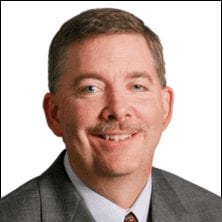
Mike Griswold serves as Vice President Analyst with Gartner’s Consumer Value Chain team, focusing on the retail supply chain. He is responsible for assisting supply leaders in understanding and implementing demand-driven supply chain principles that improve the performance of their supply chain. Mr. Griswold joined Gartner through the company’s acquisition of AMR. Previous roles include helping line-of-business users align corporate strategy with their supply chain process and technology initiatives. One recent study published by a team of Gartner analysts, including Mike Griswold is Retail Supply Chain Outlook 2019: Elevating the Consumer’s Shopping Experience. Mr. Griswold holds a BS in Business Management from Canisius College and an MBA from the Whittemore School of Business & Economics at the University of New Hampshire. Learn more about Gartner here: www.gartner.com
